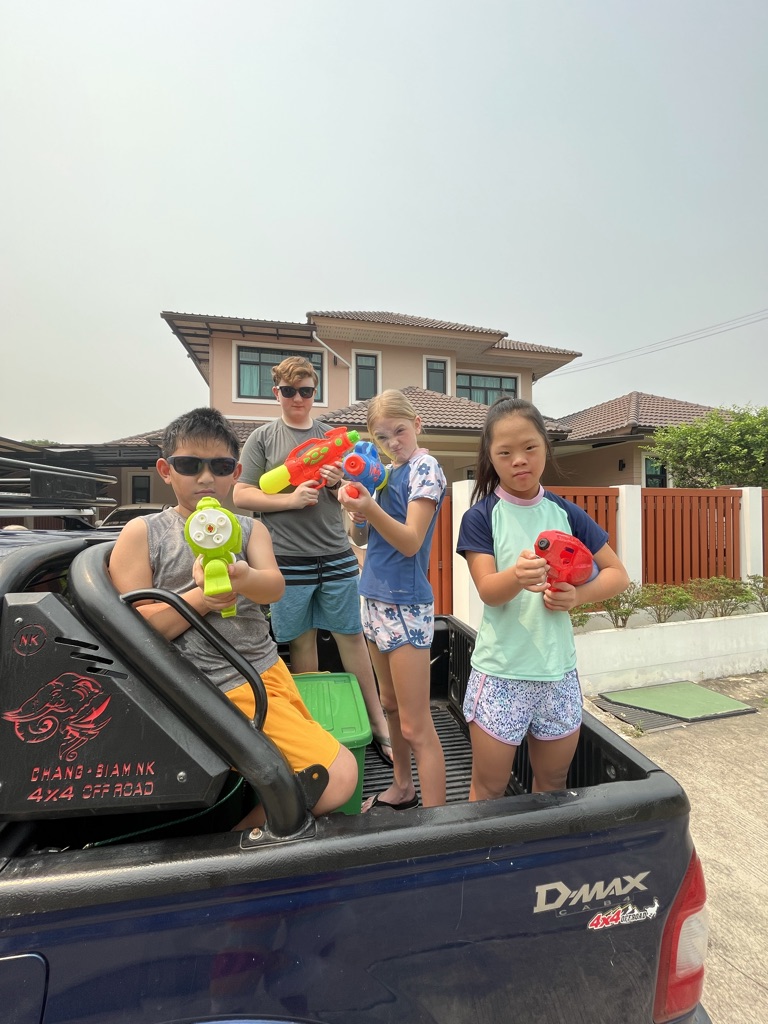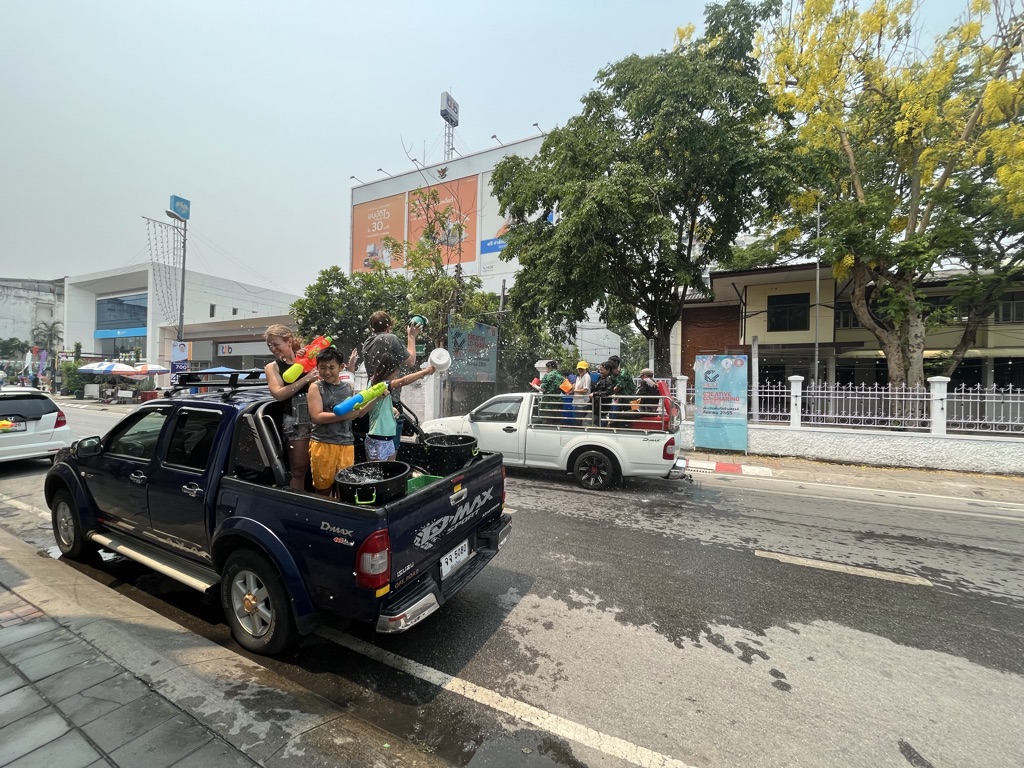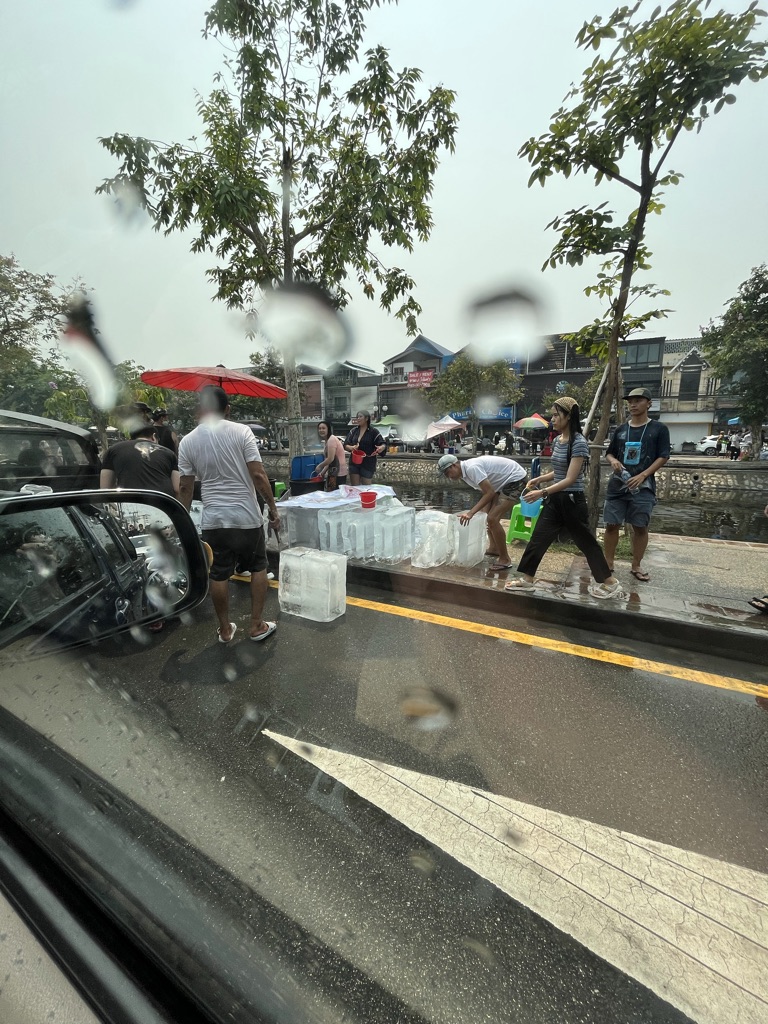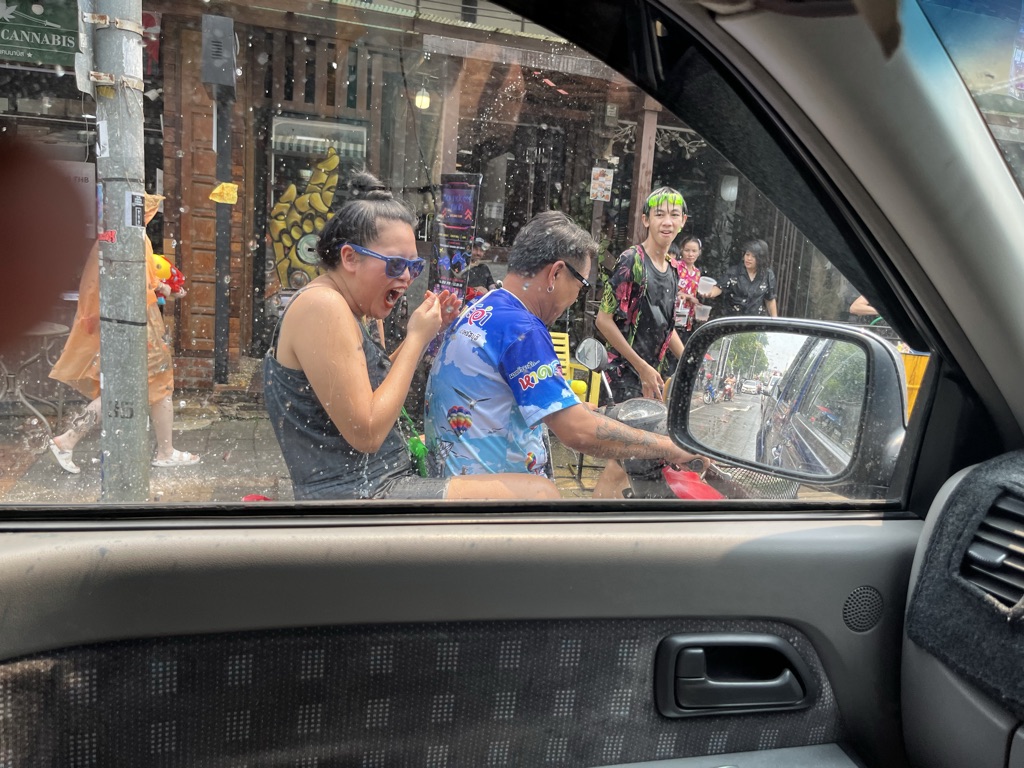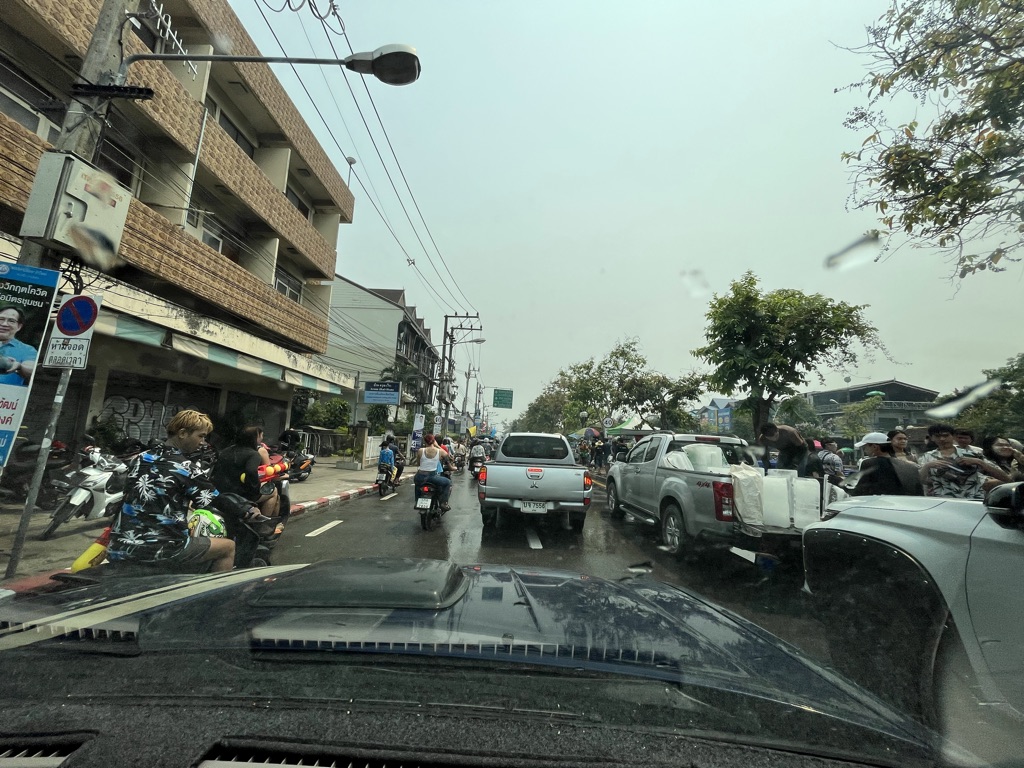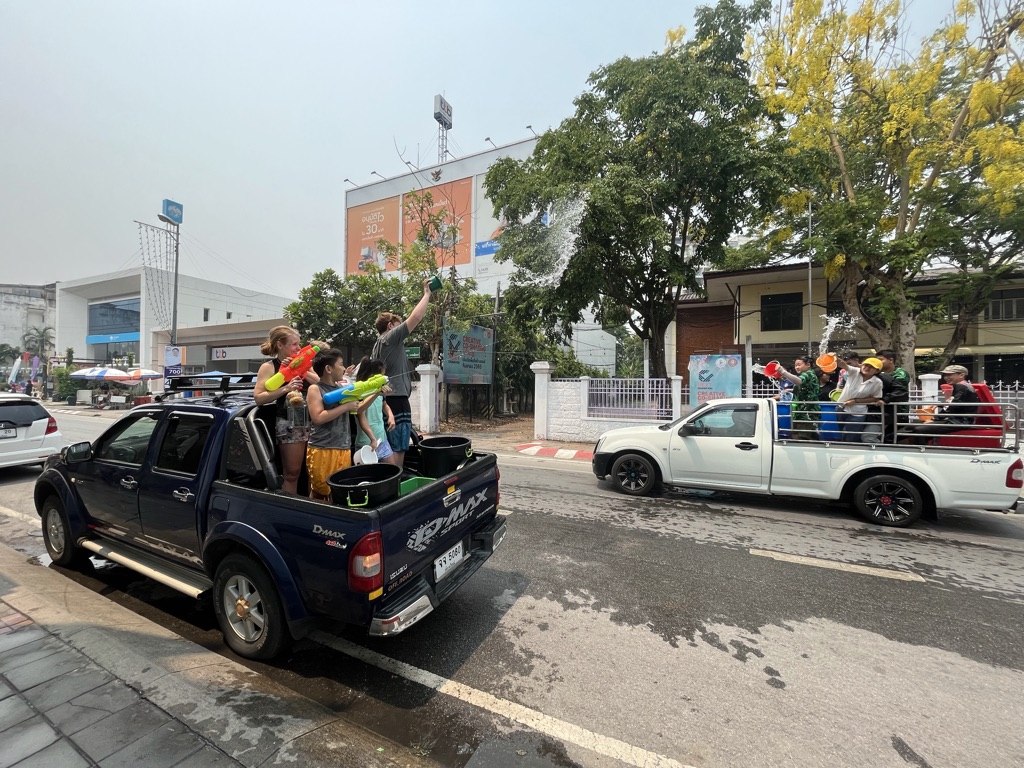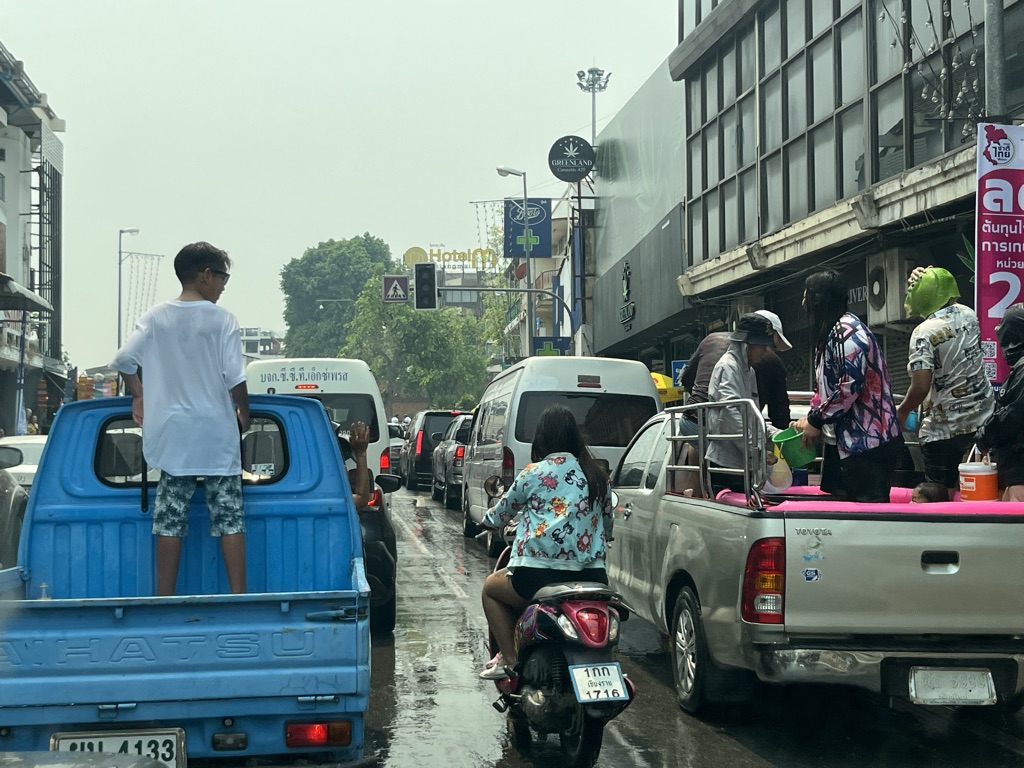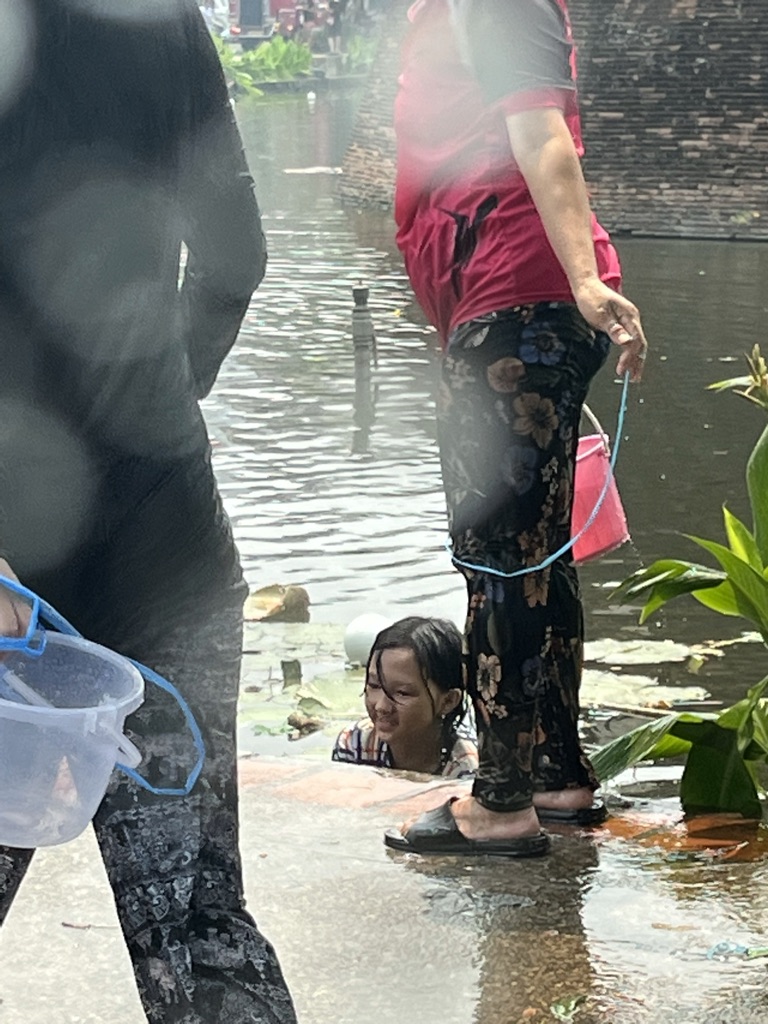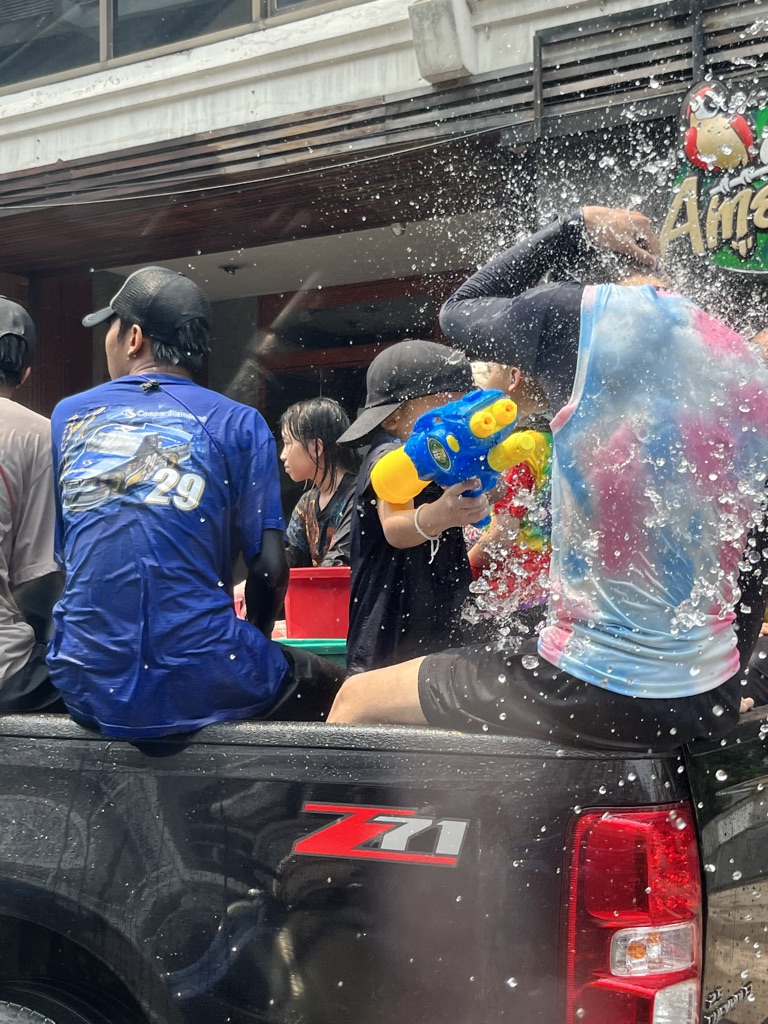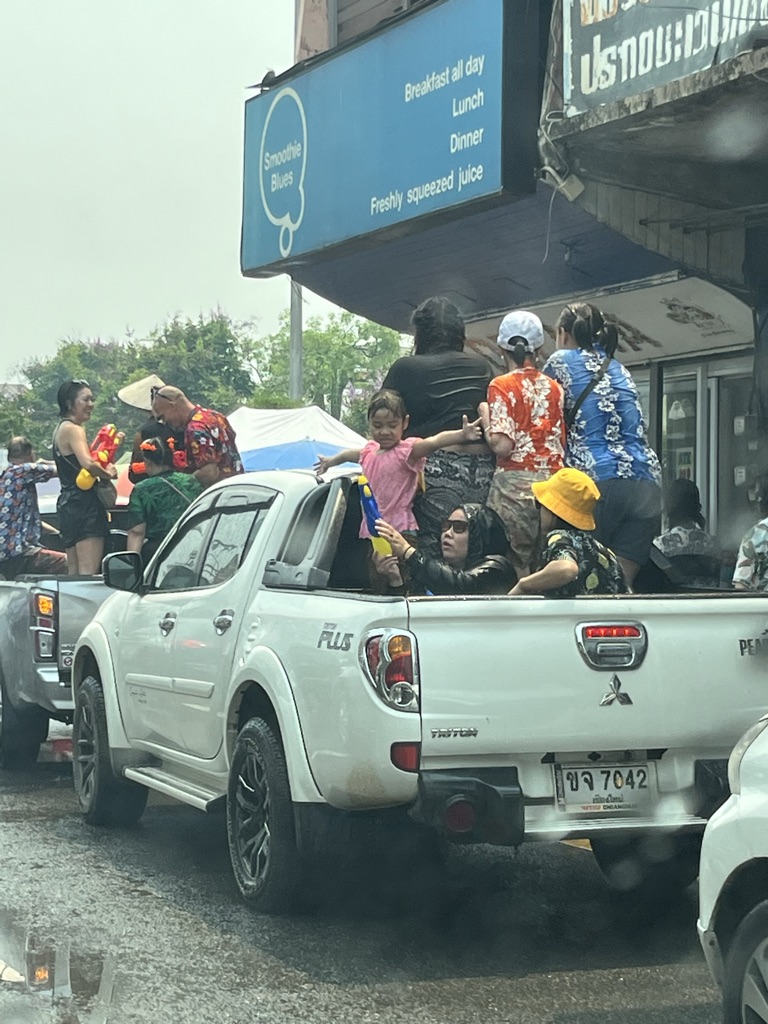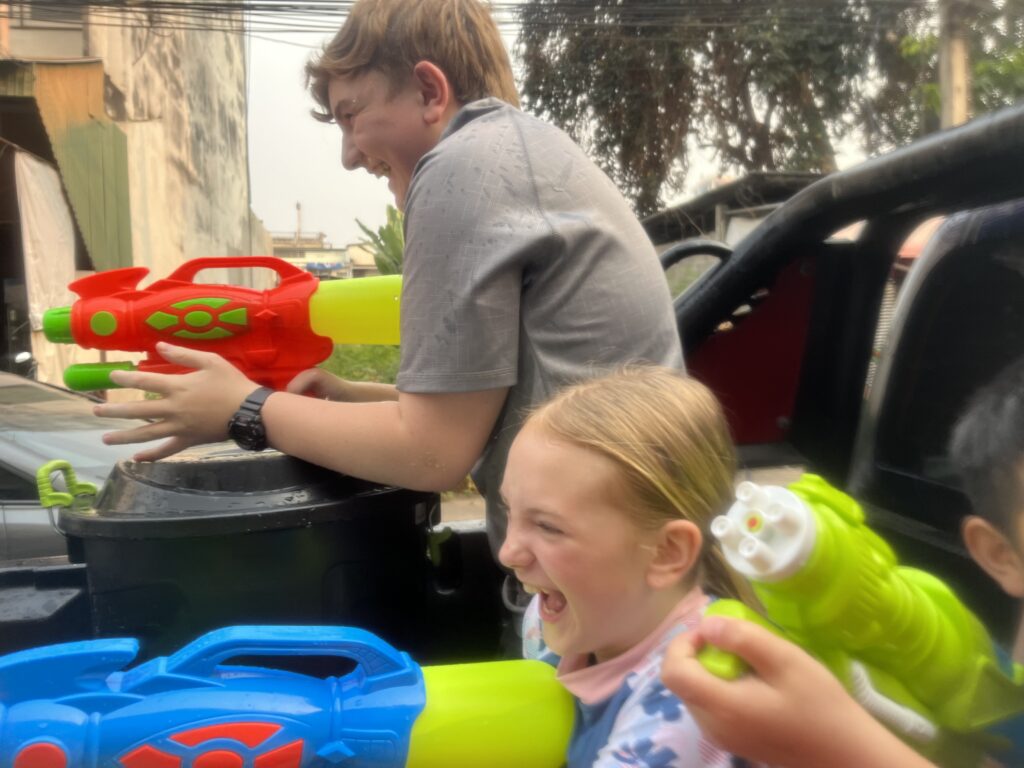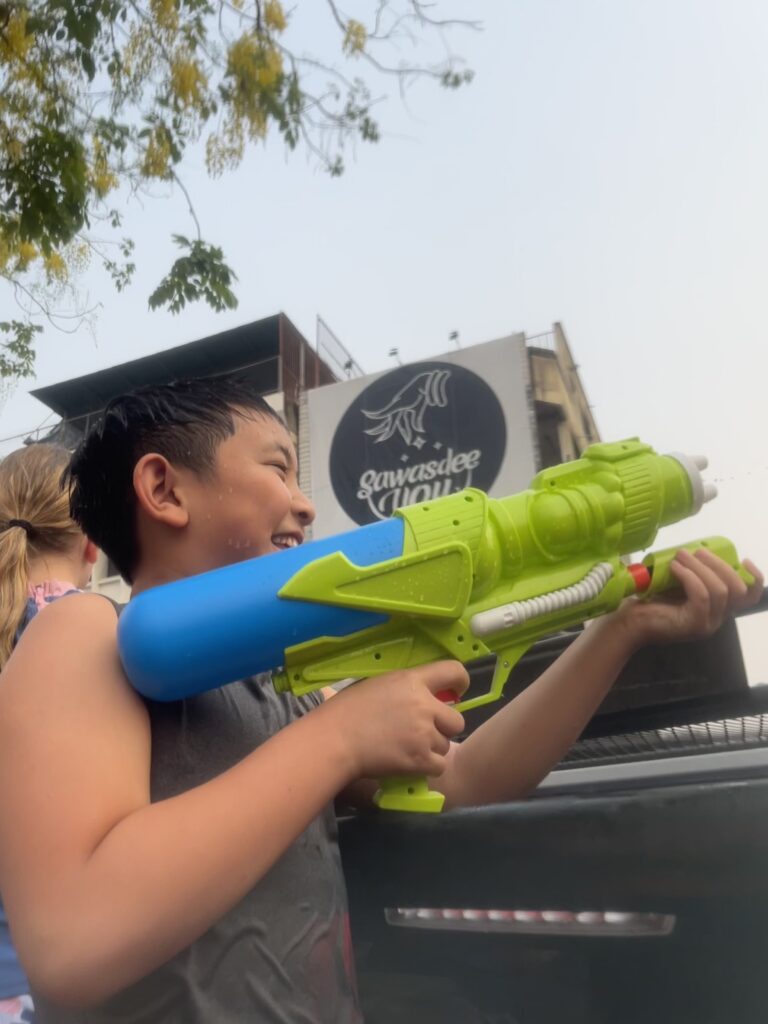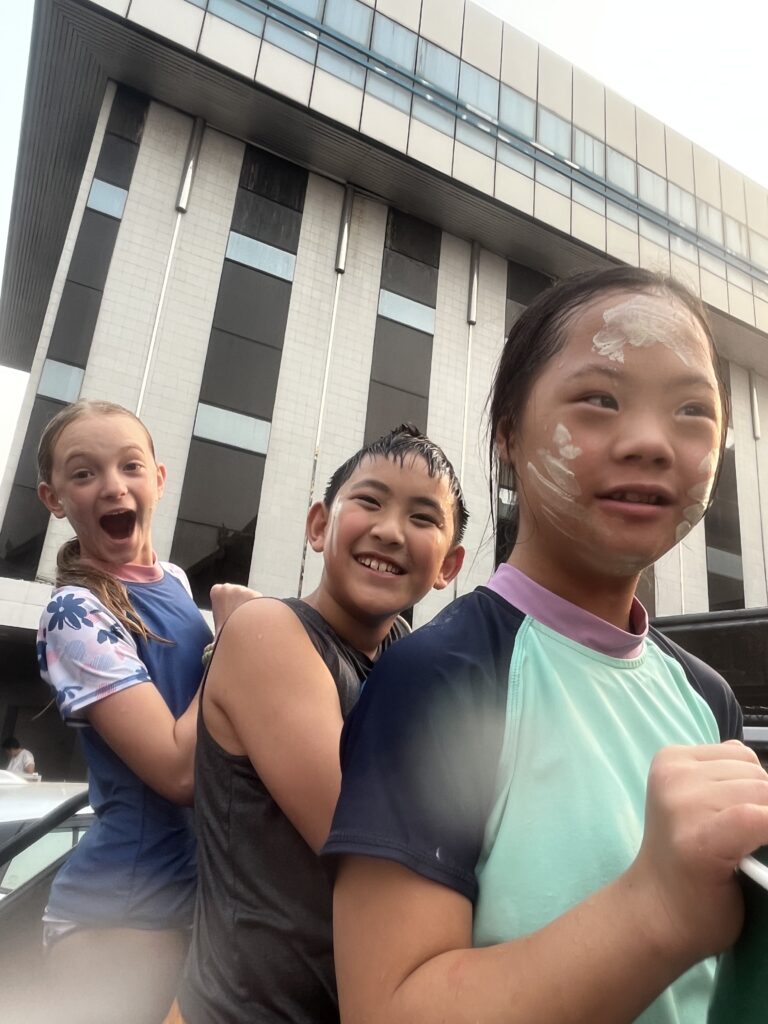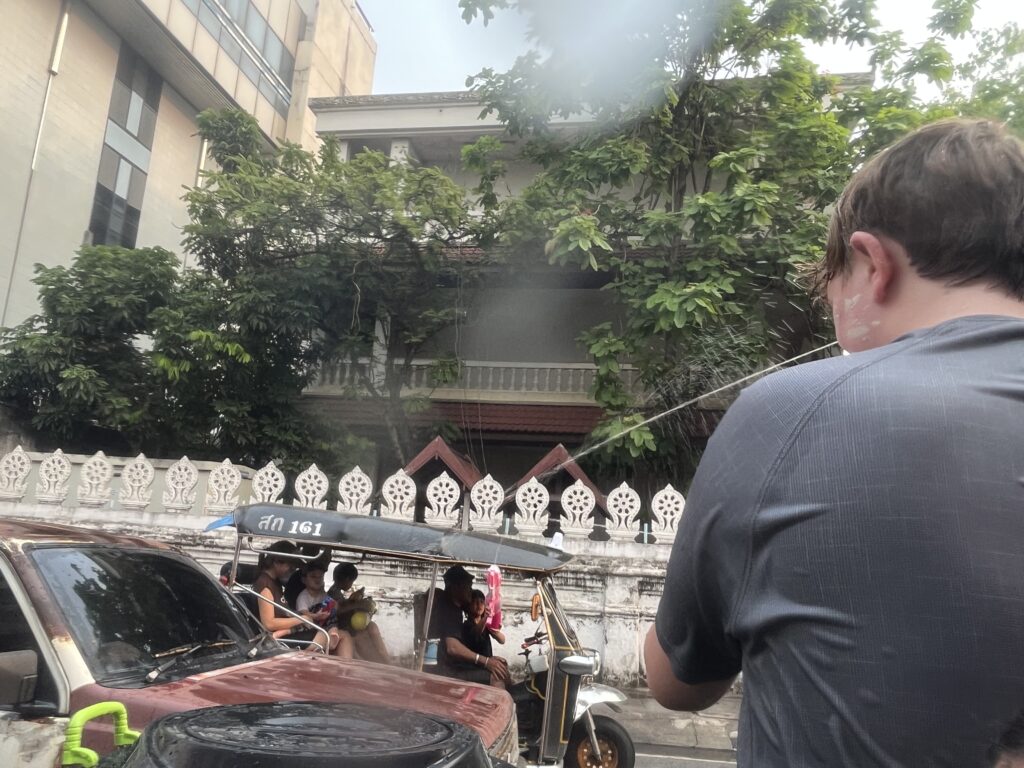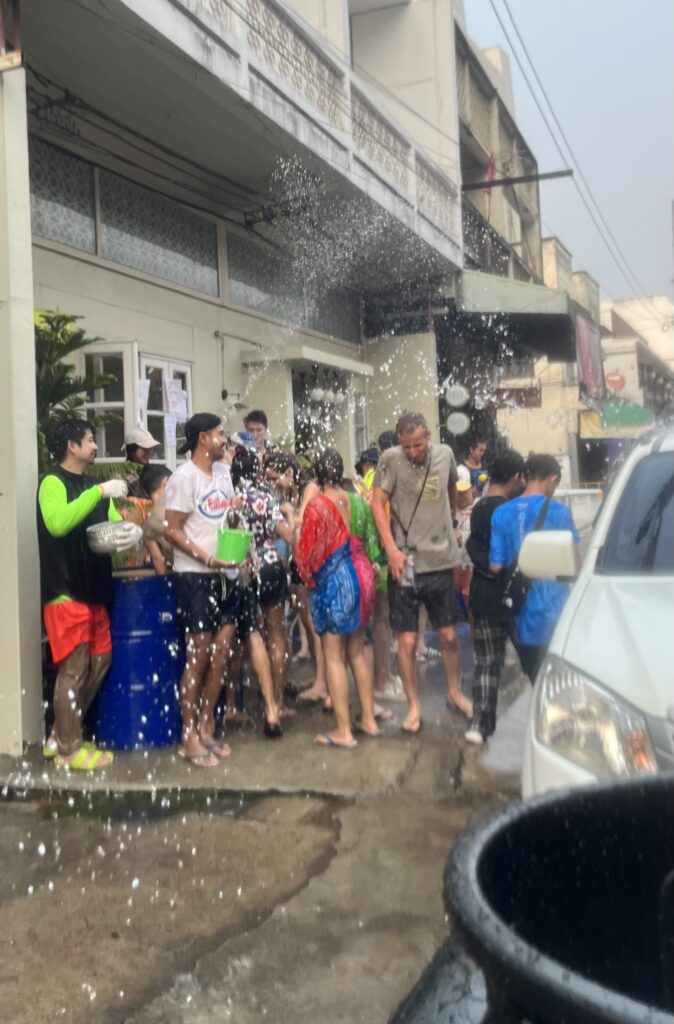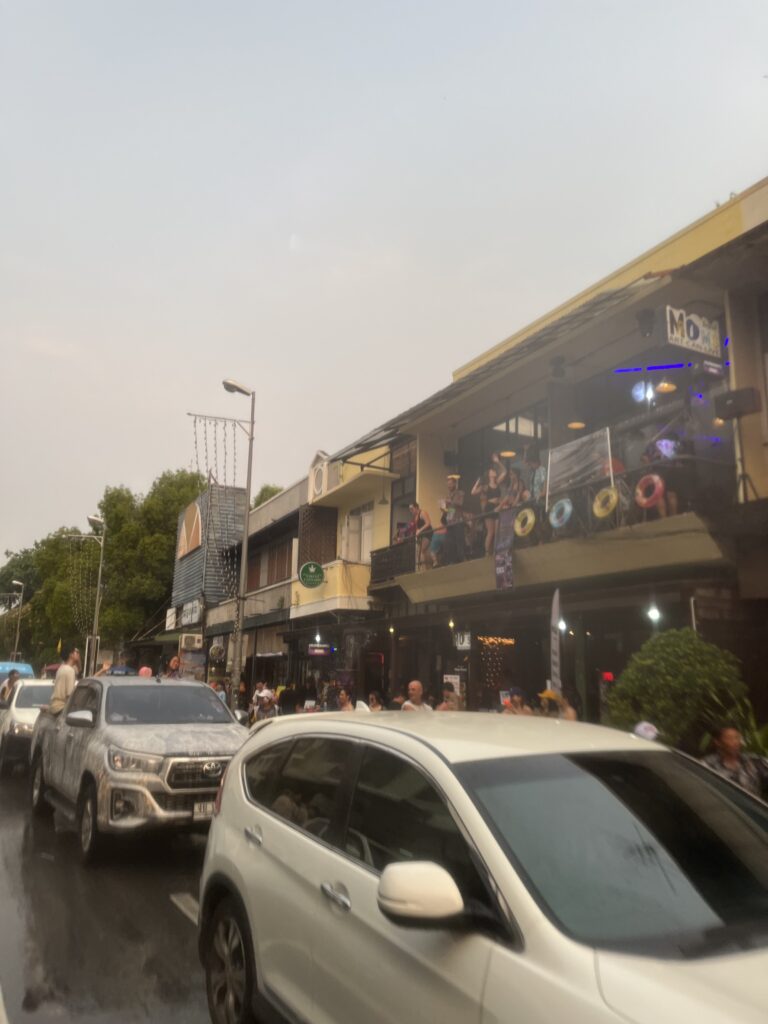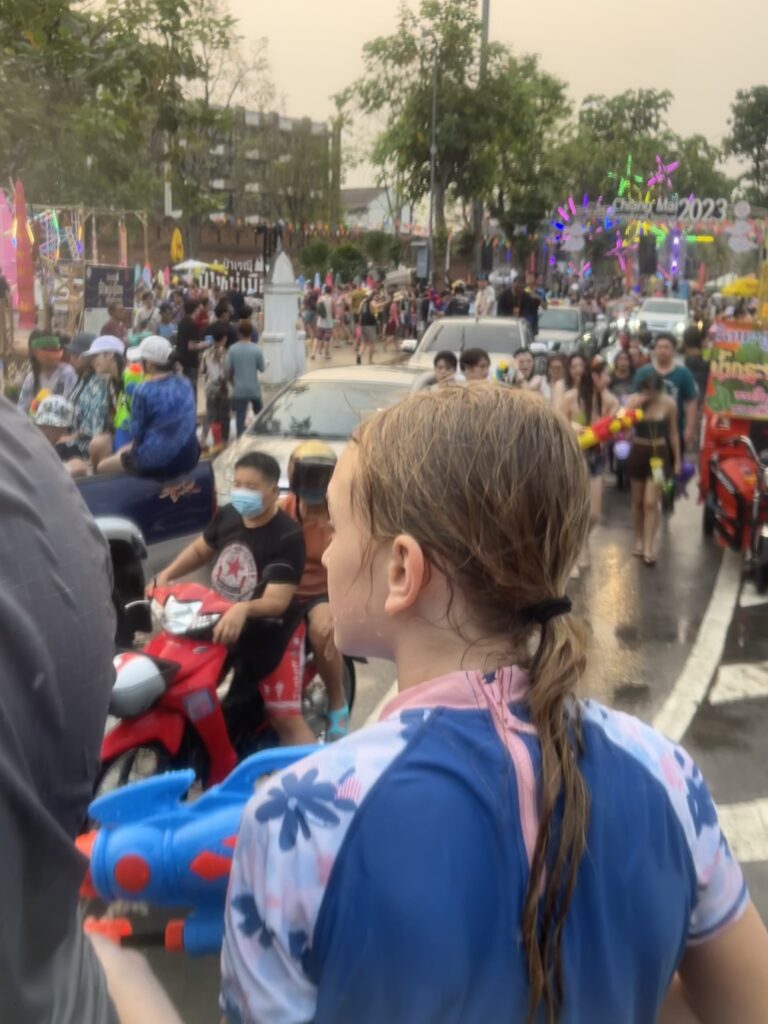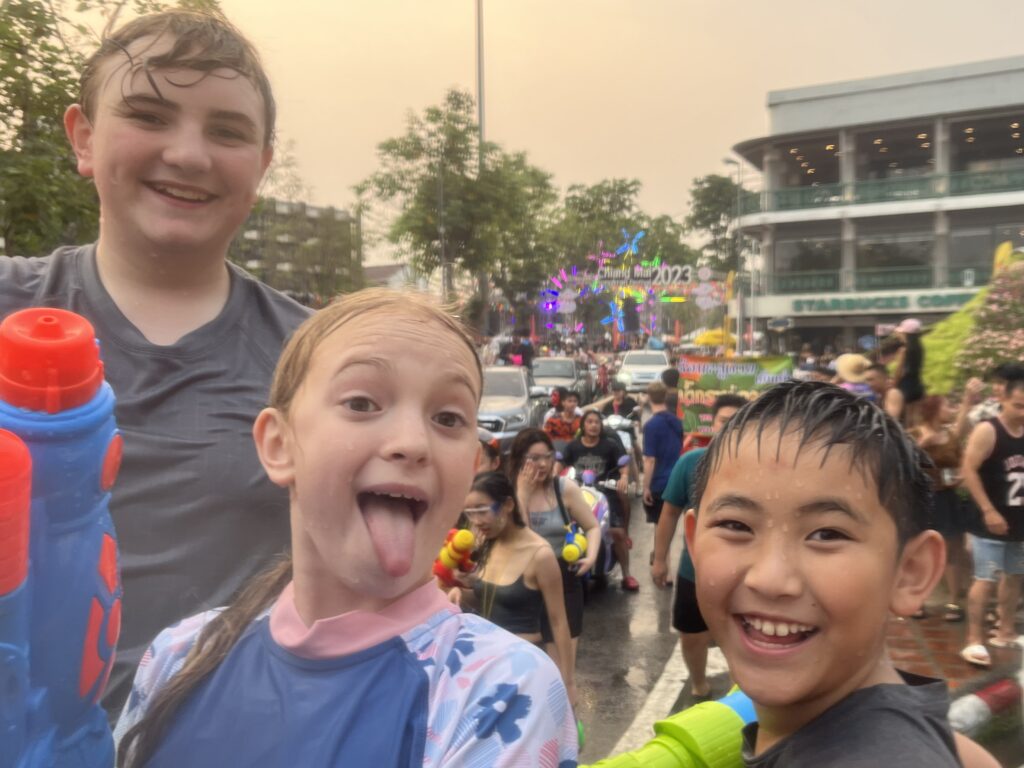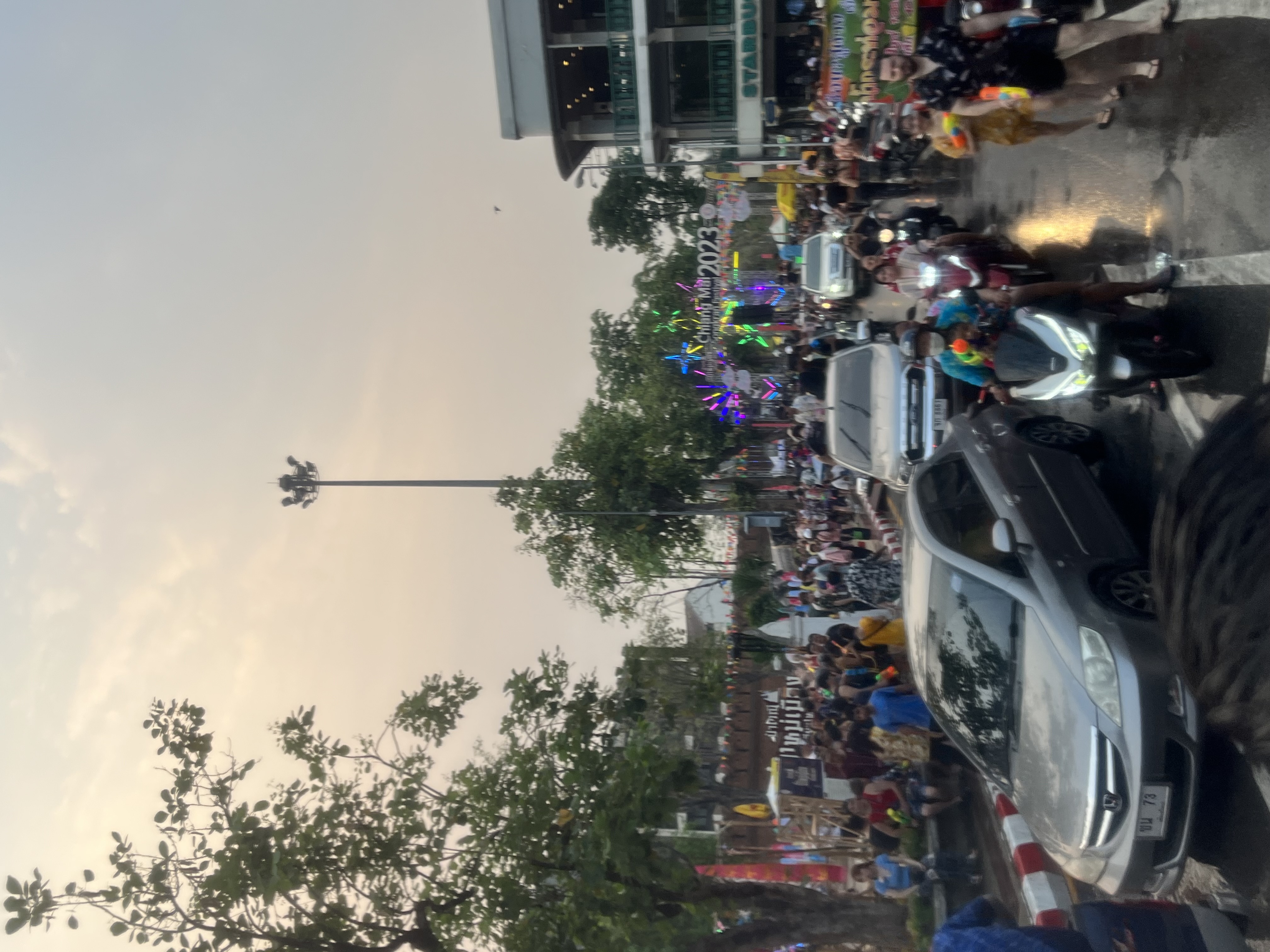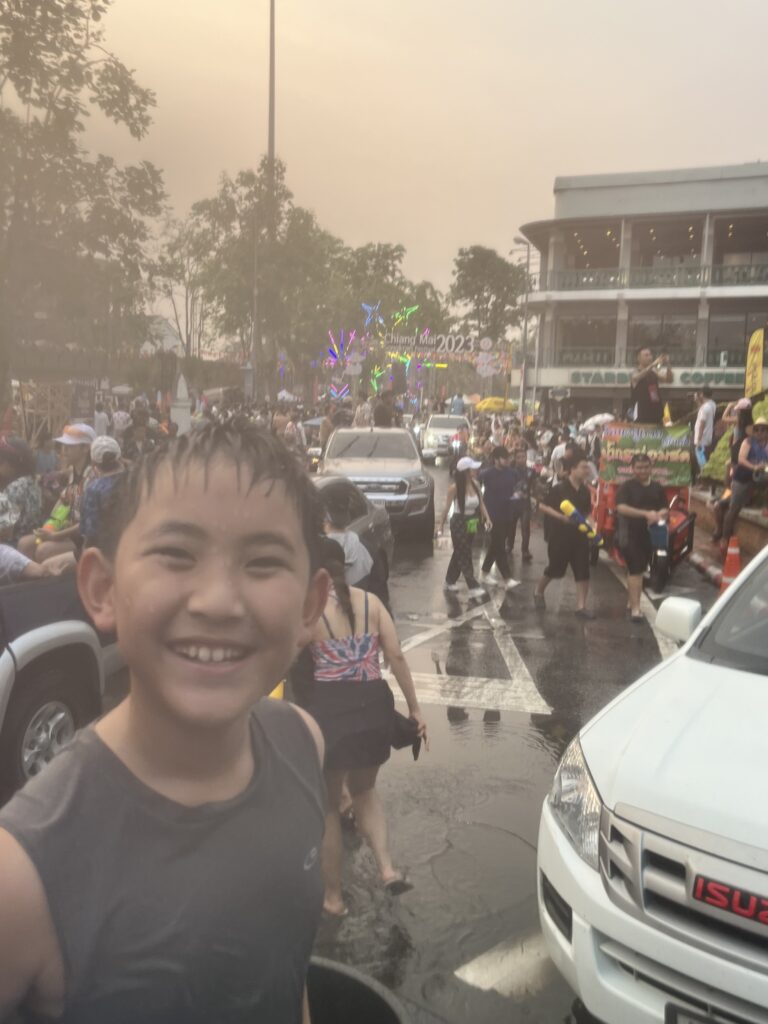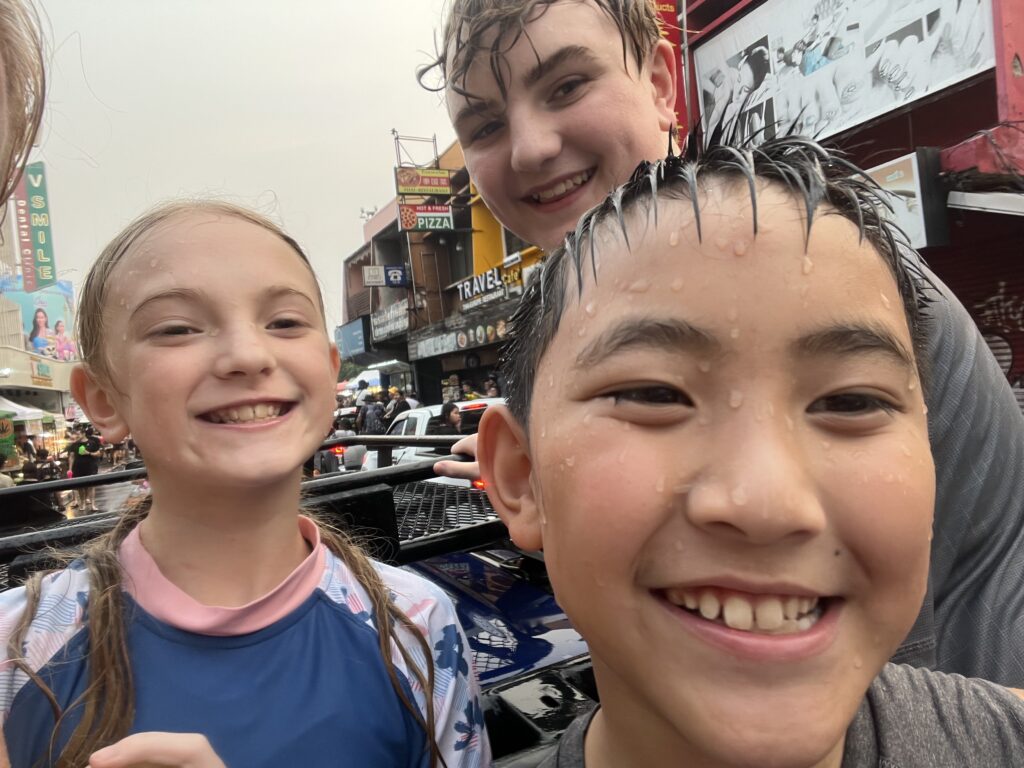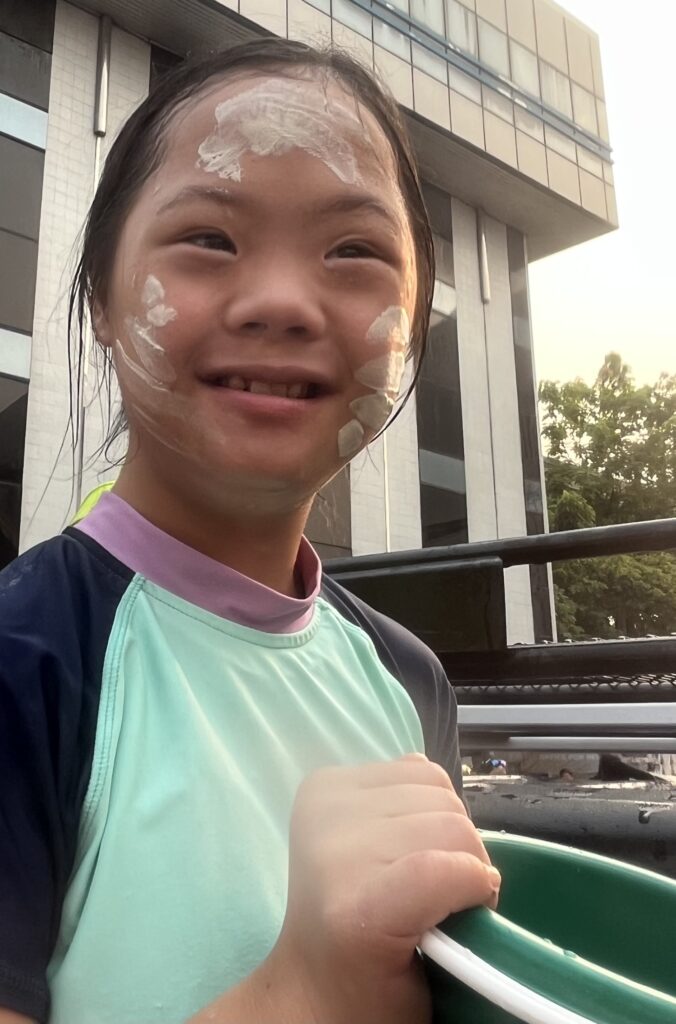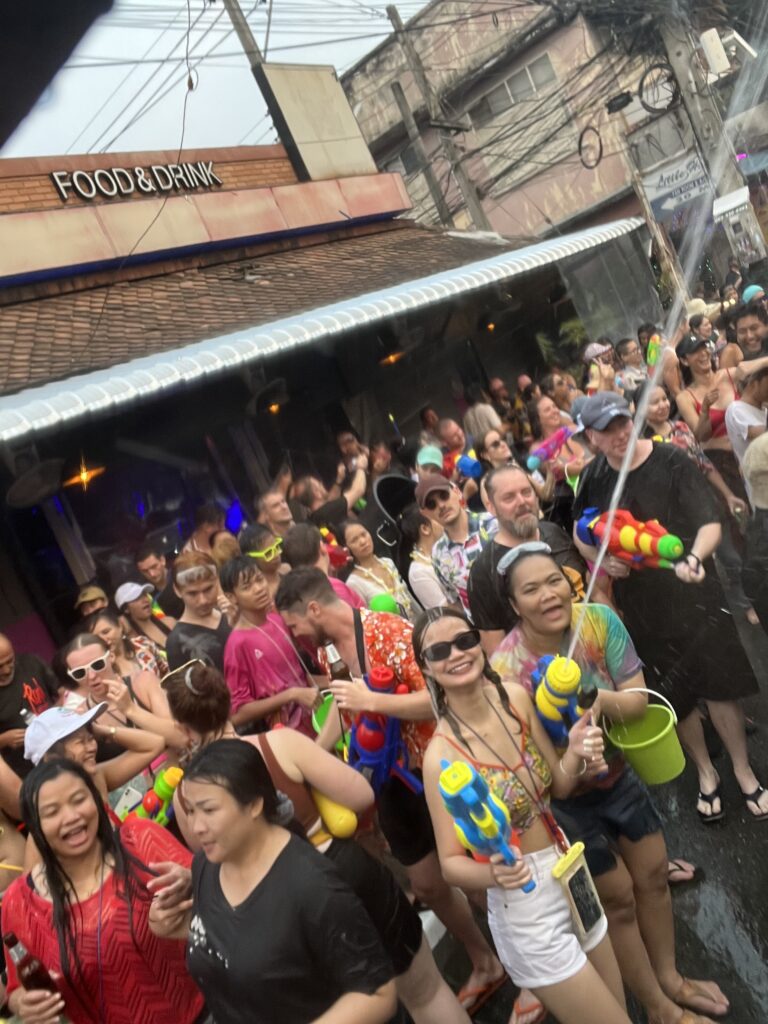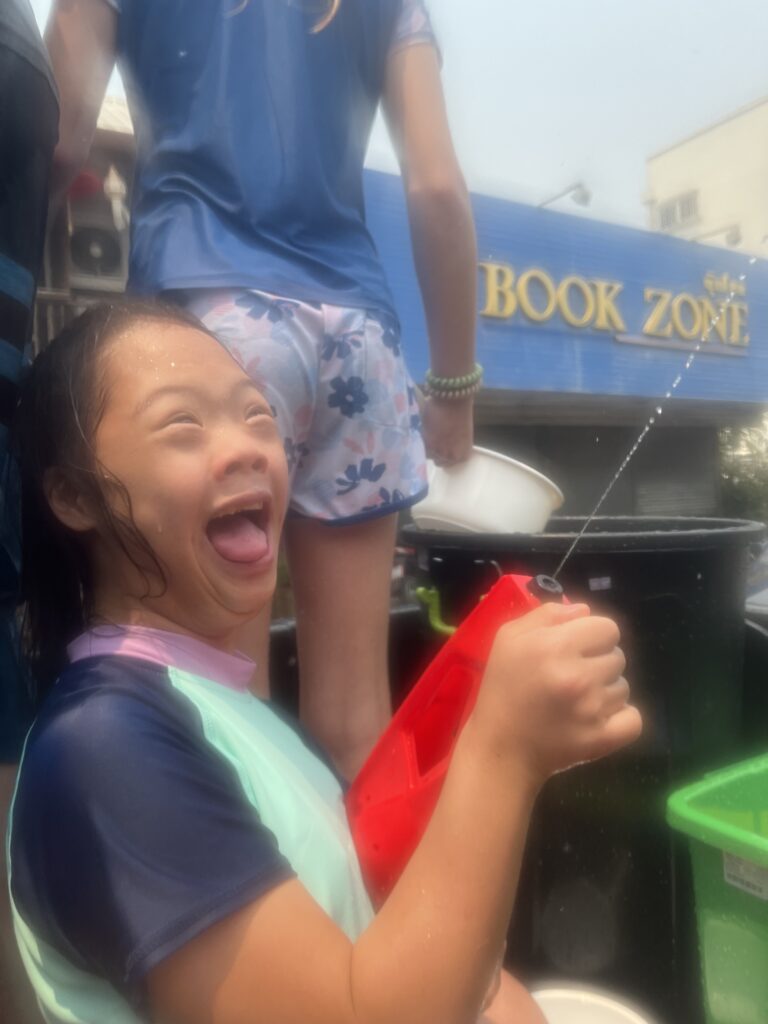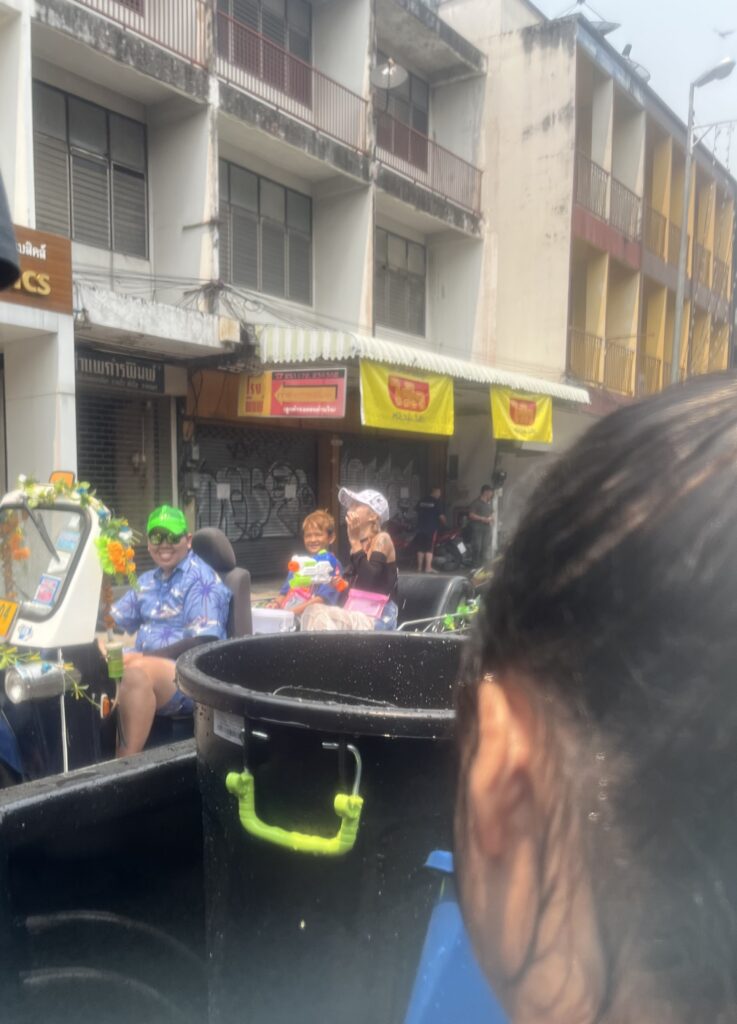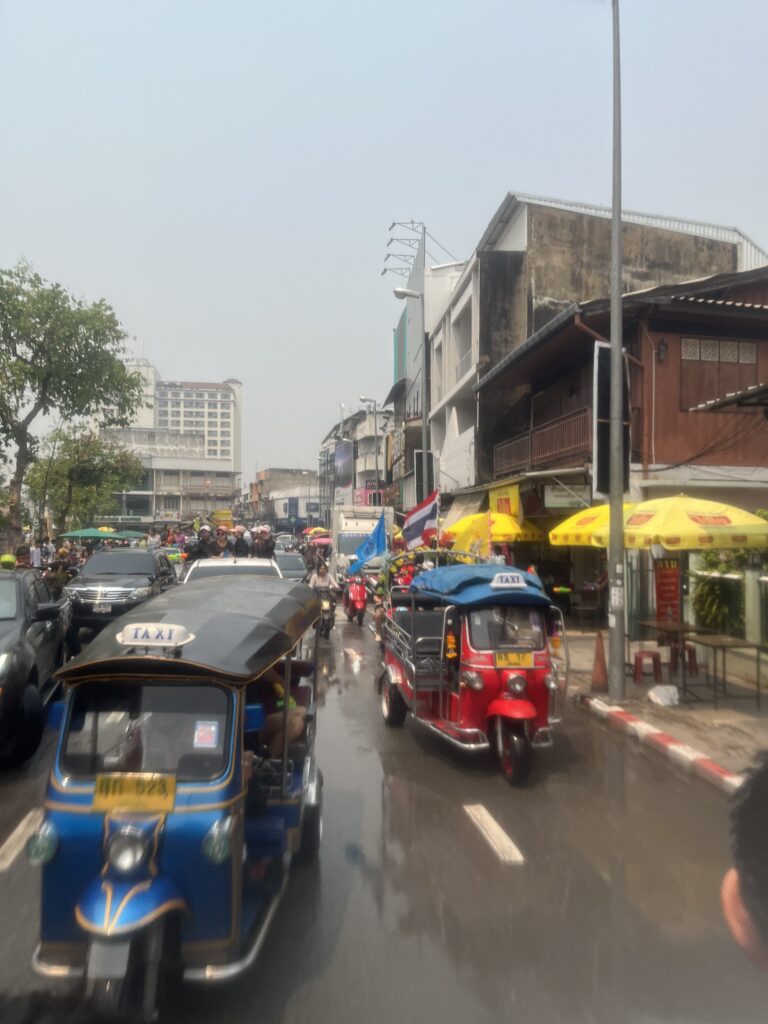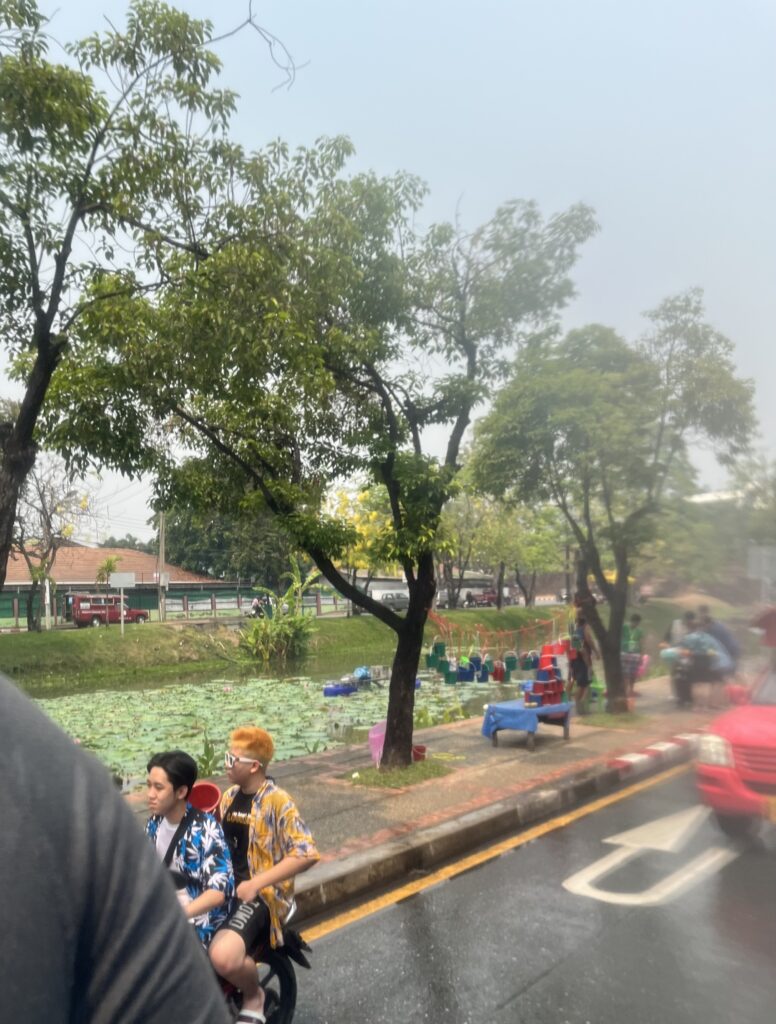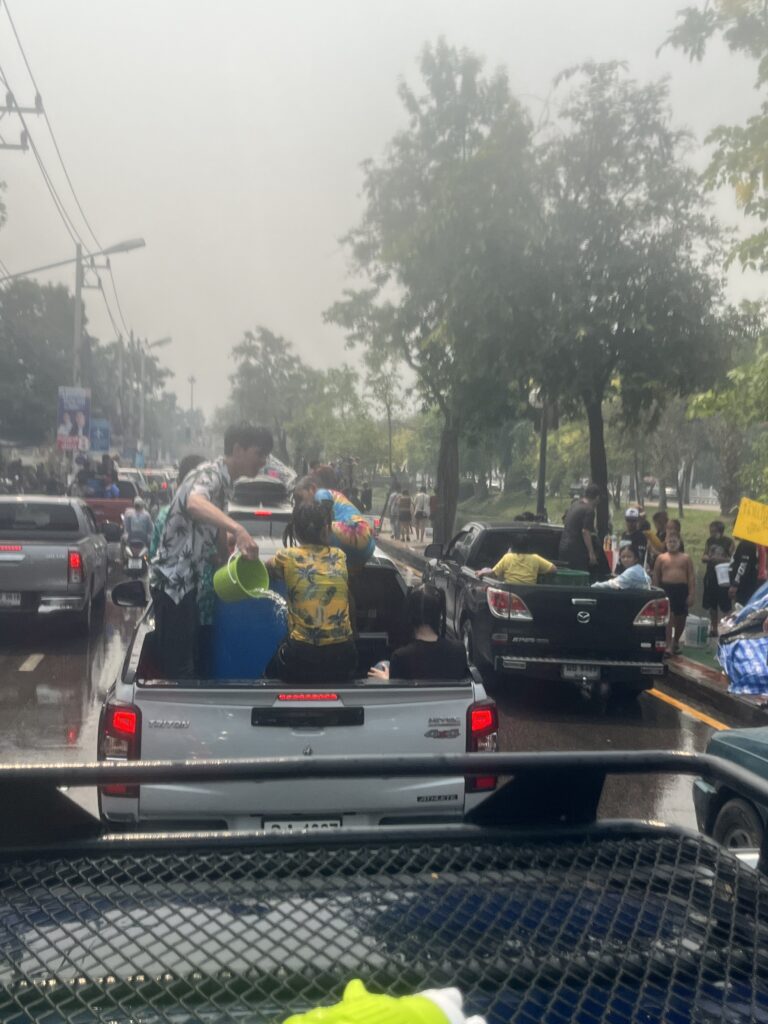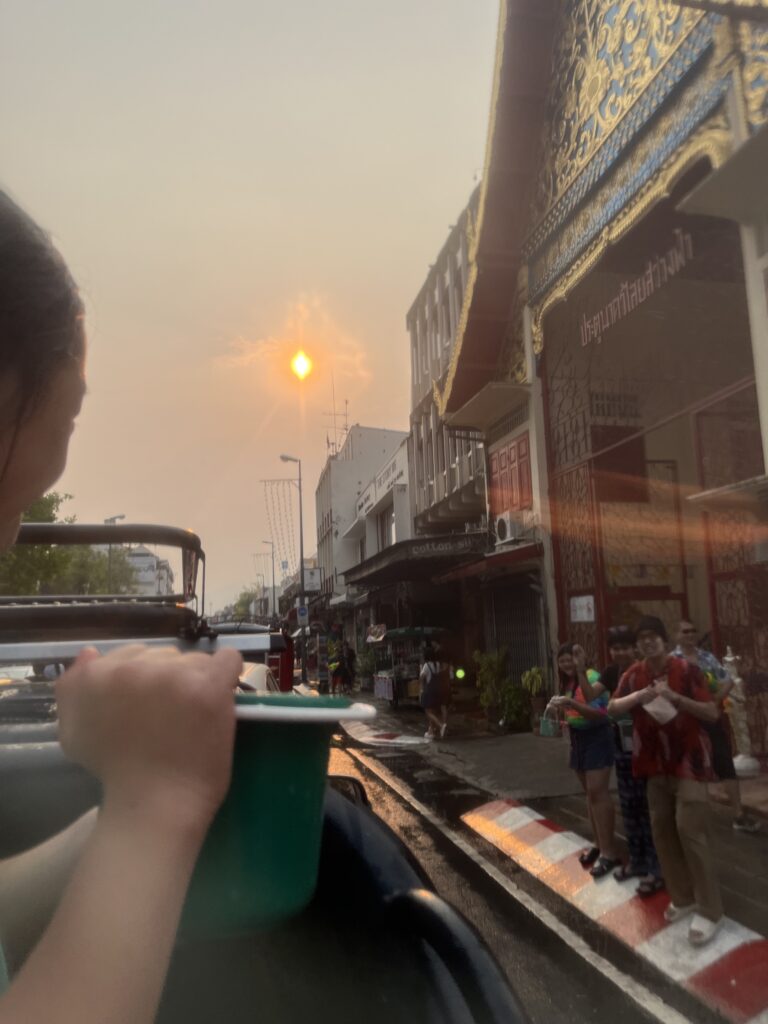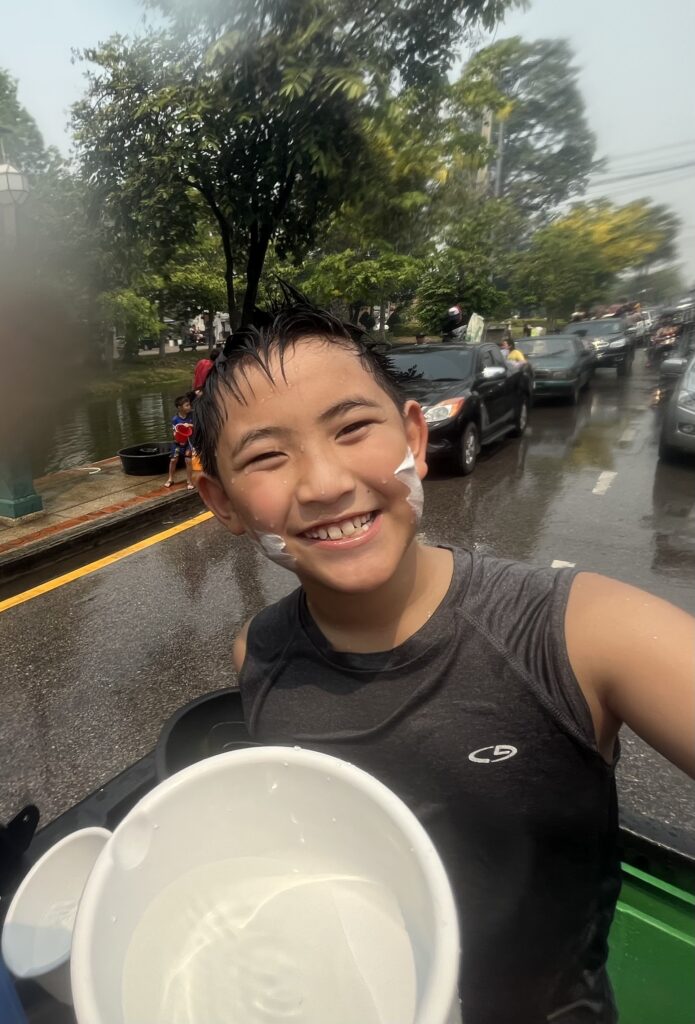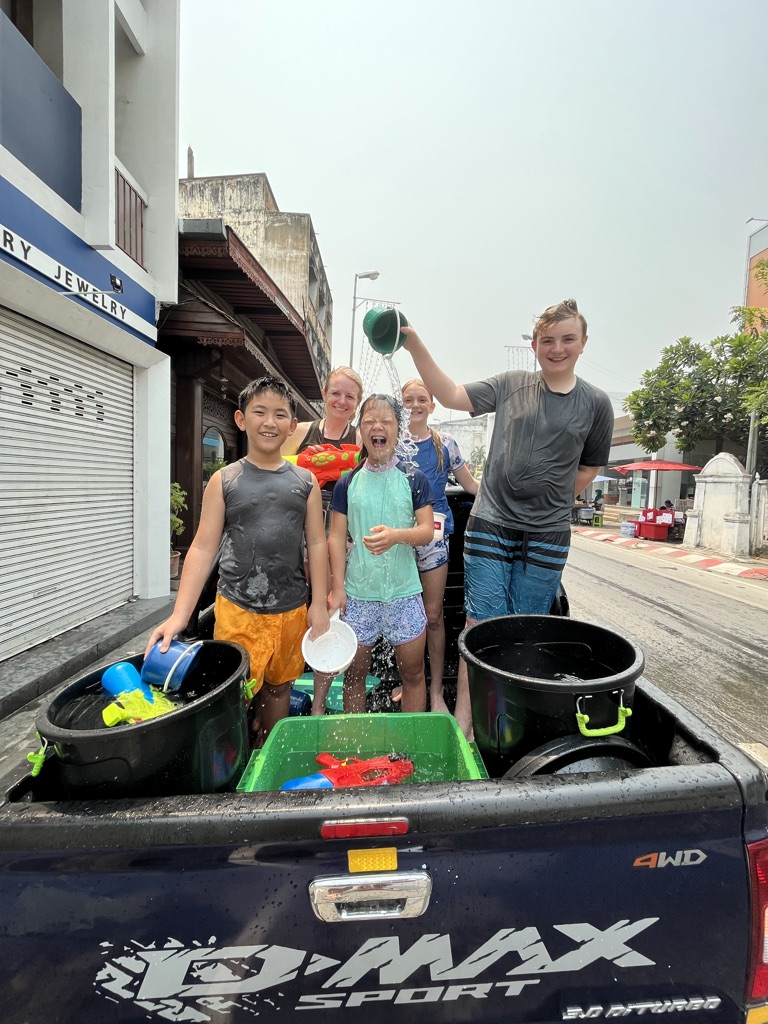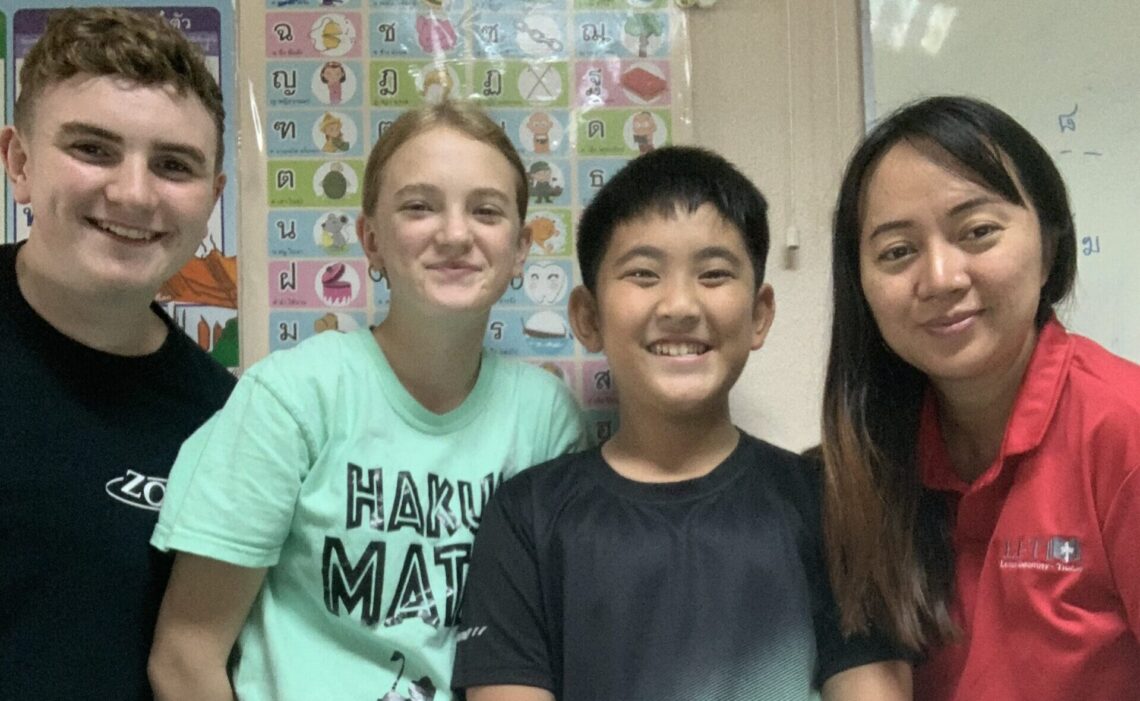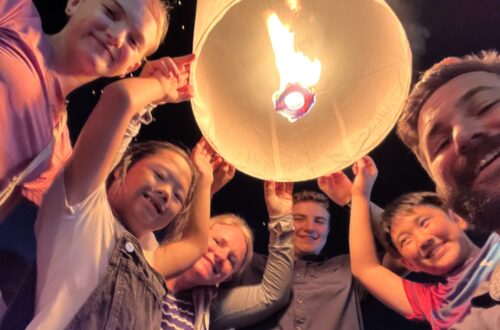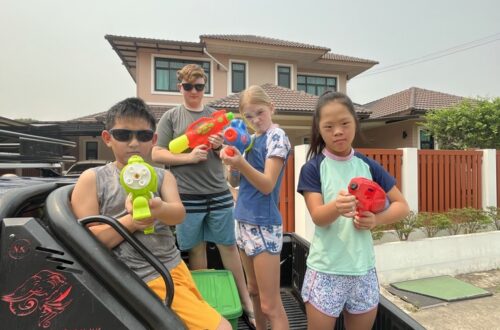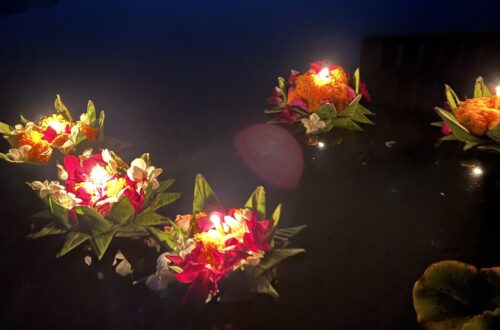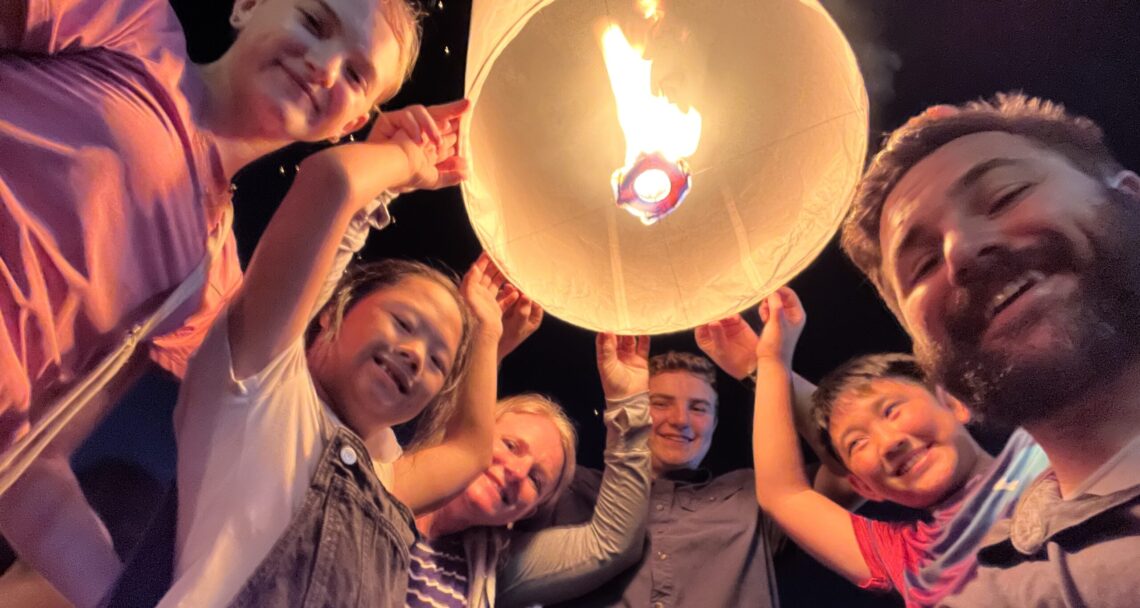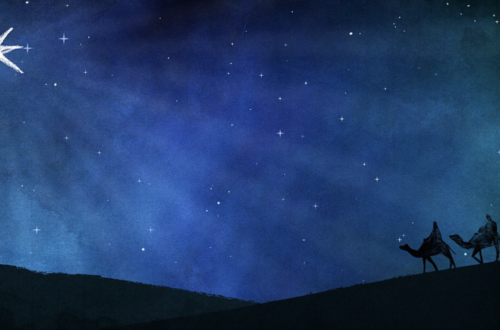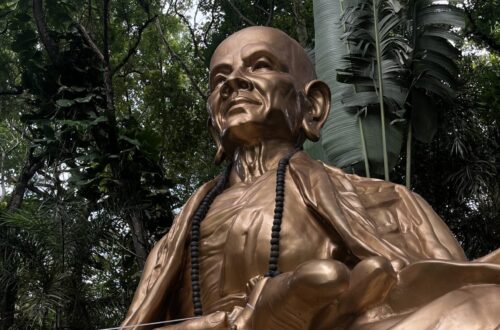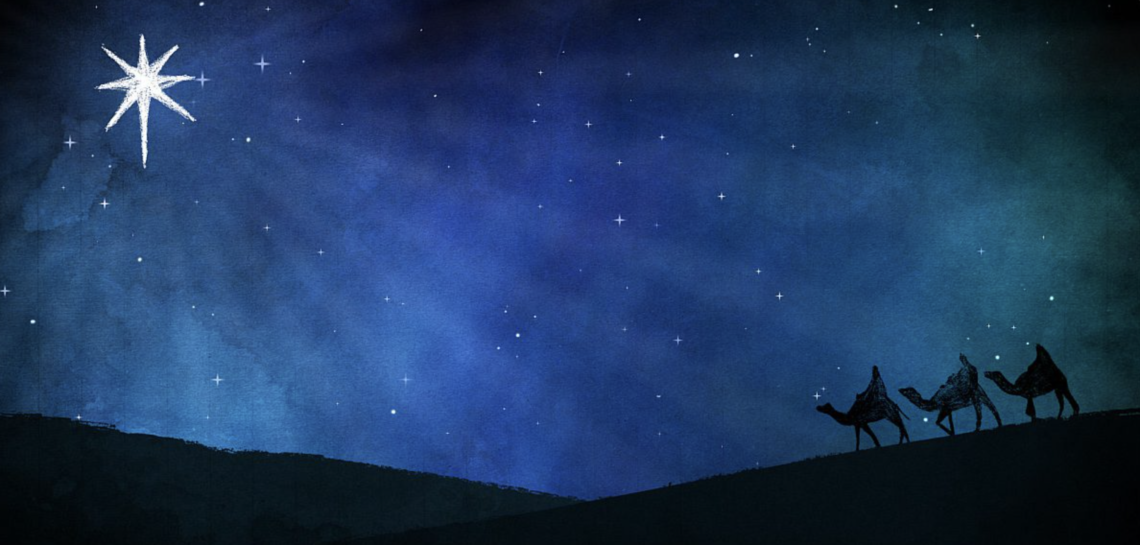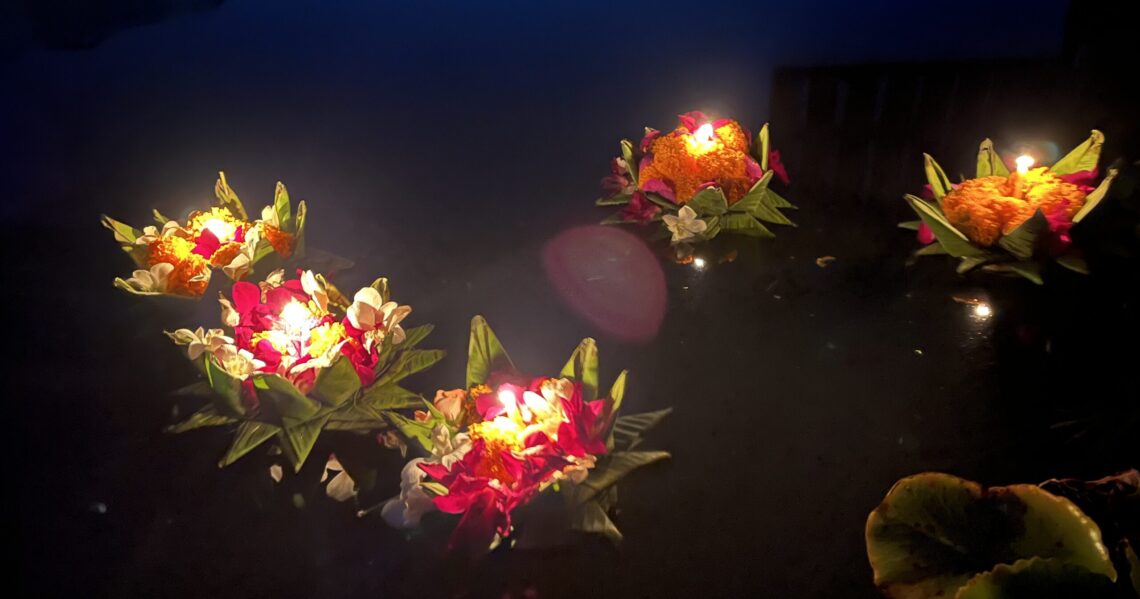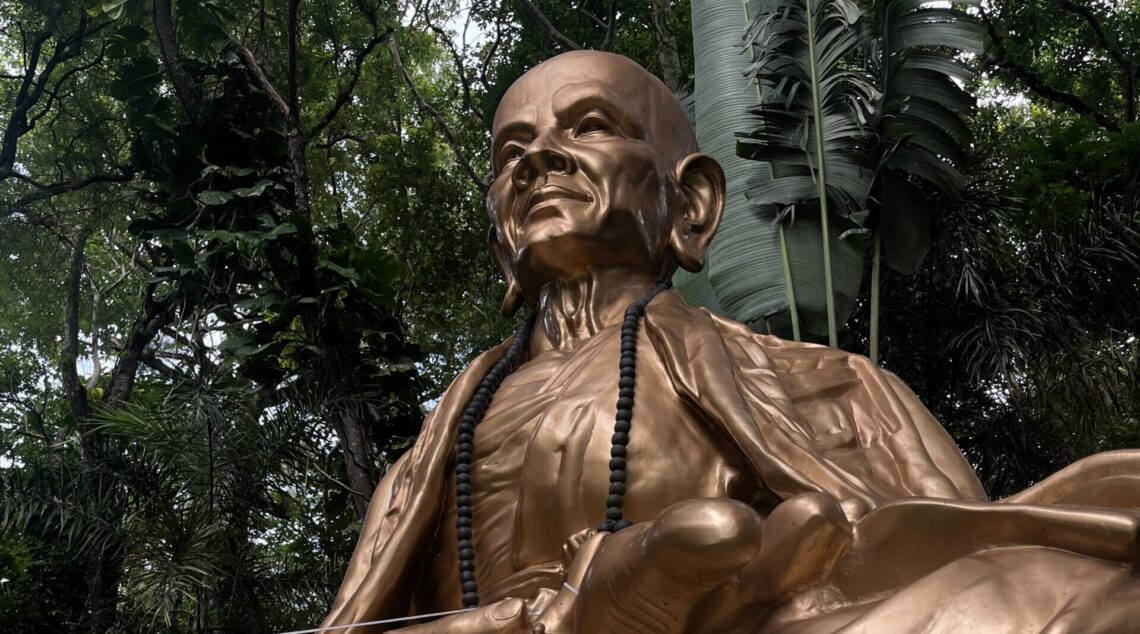Culture
-
Learning Thai
As you probably know, our family lives in Thailand. You also probably know that, in Thailand, they speak Thai, not English. While kids are taught English in schools here, and there are several translators living here, 98% of the population knows either no English or only enough to sell you their product. Understandably, us few foreigners here should learn their language instead of expecting them to speak our language. So, that is what we have been doing, even before moving here; Learning Thai.
For a few months before we moved to Thailand, we were learning how to read and write Thai while also trying to learn the vocabulary. Using an online course, we actually got pretty good with reading and writing. However, our vocabulary was not there. The only words I could remember, were the words that are actually English words said in a Thai accent like สลัด (Sa-lad) and ชีส (Cheee-s).
We moved to Thailand only knowing how to read pretty well (although not fluently) and only knowing “Hello,” “Thank you,” and “Goodbye” (which happens to be the same word as “Hello”). Obviously, we weren’t going to get around as well as we wanted only knowing one word. Therefore, we started studying Thai at Lanna Language School. Within a few weeks of 2-hour classes on Mondays, we were already learning a lot more than we ever could have with online courses. Our teacher at Lanna, Khruu (Teacher) Lukmii, was very surprised that we could read and write Thai, yet knew no words. Usually when learning a new language, teachers prefer to teach vocab before trying to teach grammar rules and how to write. However, she soon got used to spelling words in Thai for us and said we had the best pronunciation of any of her students.
Instead of online courses, we were now learning Thai from a native Thai speaker. Our Thai improved immensely and were soon able to order food and buy groceries confidently in Thai. As great as that was, we didn’t think we were learning Thai the best we could, and needed more help. Additionally, Lanna Language School was 45 minutes to over an hour away from our home (depending on traffic)! Lanna Language School is located in หางดง (Hang Dong) district. Our family, however, lives in ดอยสะเก็ด (Doi Saket) district. That made it about 45min-1hour trip just to get there, and then we would eat because our class was in the late afternoon, and then come back home when it started to get dark. That made some days nearly 5 hours for Thai class. It was such a time commitment and challenge living so far away, especially because we needed to move to a new house which was an additional 20 minutes farther from หางดง (Hang Dong). Plus, my parents, who attended separate Thai classes, wanted more classes per week and the thought of making the commute to Lanna Language School more than once a week was insanity.
Our good friends, Lori and Simpson Tsang, (other ZOE missionaries) recommended their teacher ครู เอ็ม (Khruu Em) to my parents. Lori and Simpson both speak great Thai and they lived in ฟลอร่าวิลล์ (Floraville) our old neighborhood. ครู เอ็ม (Khruu Em) taught from her house which was only 20 minutes from our house. So, my mom and dad started going to her classes in addition to Lanna. They loved it. They both got noticeably better and more confident in their Thai, and they enjoyed the much shorter commute. Us kids only met ครู เอ็ม (Khruu Em) once when she taught us how to make Grathongs (don’t know how to spell that in Thai), but our parents wanted to see if we would like her and consider changing classes. We had the chance to do that when Lori and Simpson went to America for a few weeks to raise support and visit friends and family. Since Lori didn’t want to stop paying ครู เอ็ม (Khruu Em) for a few months, she and ครู เอ็ม (Khruu Em) offered for Selah, Jeremiah, and I to take over the classes and see how we liked learning with ครู เอ็ม (Khruu Em). It was really nice and generous from both of them because Lori payed for all the classes and ครู เอ็ม (Khruu Em) kept it at the price of teaching one person instead of three.
In addition to going to Lanna every Monday, we started taking lessons with ครู เอ็ม (Khruu Em) on วันอังคาร (Tuesday) and วันพฤหัสบดี (Thursday), for around 6 weeks. We loved it. One thing about ครู เอ็ม (Khruu Em) that was (and is) very helpful, is the fact she is a Christian, as well as a born and raised Thai person. She knows and understands all the culture and religious practices of the Buddhists, even though she doesn’t practice or worship along side them. When we would learn with Khruu Lukmii, it was different. She was a devout buddhist. She even made sure we knew that the “ghosts” and “spirits” were real. I, as a Christian, do believe in spirits and demons and maybe even ghosts, but I am not going to buy a shrine and cover it in flowers and soda (they really do offer soda and candy to spirits) to ward them off. ครู เอ็ม (Khruu Em) explains the importance of different flowers on shrines and teaches us about Thai holidays such as Songkran and Loi Grathong (click to learn more about). She even told us about certain buddhist monks that practice black magic and sorcery, and how to stay away from them.
After a few weeks, we decided to quit Lanna Language School and go full time at ครู เอ็ม (Khruu Em’s). After a lot of trial and error we now have a weekly schedule. Mom and Dad go for 2-hour classes every Monday and Thrusday afternoons. Selah, Jeremiah, and I, have class every Tuesday afternoon. And then just Selah and I have class on Friday mornings. On Tuesday, we learn vocabulary. And on Friday, Selah and I, improve our reading and writing (which I am really good at). Even though we could read and write pretty well before Thai class, our Friday classes with ครู เอ็ม (Khruu Em) have improved our reading and writing skill exponentially. All the Thai I have scattered throughout this post, I can read in seconds. I am constantly complemented on my speed when reading and my pronunciations are better than most foreigners (including my parents), especially when they are only taught vocab before reading and writing.
Some little things to know about Thai:
Thai is a tonal language, meaning they have different tones which change the word. One good example is with ใกล้ (Glaai) and ไกล (Glaai). ใกล้ (Glaai) is pronounced with a falling tone where your voice starts a little high and the falls in to a lower tone and it means NEAR. ไกล (Glaai) is pronounced in a flat even tone (mid tone) which is how you would basically talk and it means FAR. Yes, ใกล้ (Glaai) and ใกล (Glaai) are complete opposites just because they have different tones. Learning a tonal language has also showed me that English, and every other language is a little tonal too. I mean, to show surprise we take a higher tone of voice. To ask a question, we usually rise the tone, or if answering a question with a question you make your voice fall a little bit. Tones in English can make the same word be either a command, a question, a statement, or an accusation.
Second thing to know about Thai. English has 24 consonants and 5 vowels (6 if you count Y but who does that?). Thai has 44 consonants and 16 vowel symbols which can mix and match to make at least 32 vowel sounds! Every consonant belongs in one of three classes, High Class, Middle Class, and Low Class. The class the letter belongs in will change the tone of tone of the word. Most letters belong in Low class, but there are two letters, อ(Or Aan) and ห(Hor Hiib), that will sometimes be silent and put in-front of words to change the tone of the word. ห (Hor Hiib) is a high class letter that either makes the “h” sound or is silent and changes the word or syllable to High Class which will change the tone of the word. อ (Or Aan) is a middle class letter that is a consonant that is silent and silent to change the word or syllable to middle class which, also, changes the tone of the word. อ can also be considered a vowel and makes a sound which is kinda like “or” but the “r” isn’t pronounced.
Third thing, the way to figure out the tone of a word is the most confusing thing on the planet! ครู เอ็ม (Khruu Em) even says so! Here is what a Thai tone chart looks like;

as you can see, when figuring out the tone of a single syllable you have to take into account, the class of the syllable, the length of the vowel (for most vowels have along version and a short version), whether the ending consonant is soft or hard, and then you have to figure out what it is with the tone mark on top. All of that to find out the tone of a single syllable! And you cannot just ignore the tone because it literally makes the difference between, “I like to ride on my bike,” and “I like to poop on my bike.” I am not kidding. “Poop” and “Ride” are the same word with different tones.
Some other things about Thai is, like how in English we say “please” to be polite, they add คา่ (Ka) if you’re female and ครับ (Krab) if you’re male, to nearly every sentence. I would say it is one of my worst problems when speaking Thai to forget to add ครับ (Krab).
Also, you should rarely trust the transliterations. For example, if you come to visit, you may see the spelling of “Hello” spelled like this

This is incorrect. The Thai word for “Hello” (and goodbye) is สวัสดี and then ครับ (Krab) or คา่ (Ka). สวัสดี should be transliterated like Sa-wat-dee not Sa-was-dee. Here’s why, the letter “ส” makes the “S” sound unless it is at the end of a syllable, then it makes a hard “T” or a “D” sound. However, when amateur translators and/or computers translate, they just see “ส” and go, “Hey, that makes the ‘S’ sound!” and translate it like so. There are several letters that make different sounds if they are the end of a syllable than when they are at the beginning or middle of the syllable. In fact, that is why were pronouncing Jeremiah’s Thai name wrong his whole life. When he was first adopted, his birth certificate showed his Thai name as ประการ, and they transliterated it, Prakarn. This is totally incorrect. First of all, “ป” (Bpor Bplaa) makes a sound that is in-between a “P” sound and a “B” sound. It is not one or the other. “ป” is not a sound in the English language and does not make the “P” sound. Secondly, in Thai they roll or trill their Rs. Not really a mistake in the translation but it was another way we were mispronouncing his name. Thirdly, the “ก” makes a sound in-between a “G” and a “K” sound. A little more like a G but not a K. Fourthly, “ร” is one of the many letters that make a different sound whether it is at the beginning or end of a syllable. In the beginning or middle of the syllable, it makes the trilled “R” sound. At the end of a syllable, it makes an “N” sound, don’t ask me why. But instead of translating it one way or the other, they just put both sounds it makes. Therefore, it shouldn’t be written or pronounced Prakarn (Pra-car-n) it should be written and pronounced something like BpraGkan (ปรa-กaan).
I could go on and on about other little things in Thai like how if you mix 2 “ร” (which make a trilled R sound), you get (Aan). No idea why. Or I could talk about how ใ and ไ are the exact same, making the “I” sound (as in ice). Or how some vowels go on top of the consonant like อั (ah) or below the consonant like อู (oooh) or to the left of the consonant like เอ (eh or ay) or on the right of the consonant like อา (ahh). I could talk about how the consonants, อ ว ร, can all become vowels. But, I won’t, because that would be too long.
P.S. Here are some very boring videos of us speaking Thai.
*Fun Fact* We made these videos with Khruu Em. She can send them to the government to prove she is teaching us Thai, and we can use them to get school credit for learning a foreign language. But, though Khruu Em is fluent in English, she is not confident in her spelling so we wrote the subtitles for her.*
Yes, I know, my voice is terrible.
-
Loi Grathong
Just as there are many holidays that are celebrated exclusively in America, there are holidays that Thailand goes all out for. Some of that is tradition, some of that is their culture, and some of it is to attract tourists. Whatever the reason, we get to enjoy a few more holidays throughout the year. Now, we are not worshiping the River Goddess like the Thai people, but we can still enjoy the fun and games surrounding these holidays.
There are mainly two holidays that foreigners take part in here in Chiang Mai. Songkran, which is the world’s largest water festival (when Chiang Mai becomes the Water Fight Capital of the World), and Loi Grathong (one of the world’s largest Lantern Festivals). It isn’t considered the biggest lantern festival in the world, mainly because China far surpasses the population in Thailand, and some of the countries like Japan and South Korea get a little more tourism than Northern Thailand, but this festival is huge.
Chiang Mai was the capital of the Loi Grathong holiday, but the advance of modern technology and airplanes slowly hindered them until the government had to limit the flying of lanterns to only a few places. Every year, the airports have to cancel literally hundreds of flights because of the danger of lanterns getting caught in plane engines. As far as I know, it hasn’t happened yet but it is a reasonable concern. So, the new “capital” of Loi Grathong is Doi Saket: the small town that our family has been calling home for the last year. It is super cool that we get to live in the capitals of two large and fun holidays. Where we come from in Nebraska, our town is the Haydays capital (which is a holiday we made up). The neighboring town of O’Neill is the St. Patrick’s capital and another neighboring town, Stuart, appointed itself in-charge of the 4th of July. These “local holidays” are cool and I always enjoyed them, but they are not nearly as big as the holidays here in Thailand!
I was fortunate this year to have my golden birthday on ลอยกระทง (Loi Grathong). For my birthday, we went downtown to my favorite breakfast place in Chiang Mai, Butter is Better, and had a nice big breakfast. Then we picked up an ice-cream cake from Dairy Queen (a birthday tradition we have started here in Thailand) and went back home to open presents. My gifts mostly comprised of sodas and candy (what I asked for). That evening there was a Chiang Mai Youth Campfire Cookout. The Cookout was a gathering of all the youth groups in Chiang Mai. We got together for hot-dogs and s’mores, a small worship service, and in- the-dark games. This year, the main game was Capture the Flag. It was fun, but I intentionally kept the fact it was my birthday a secret. As you can see below….
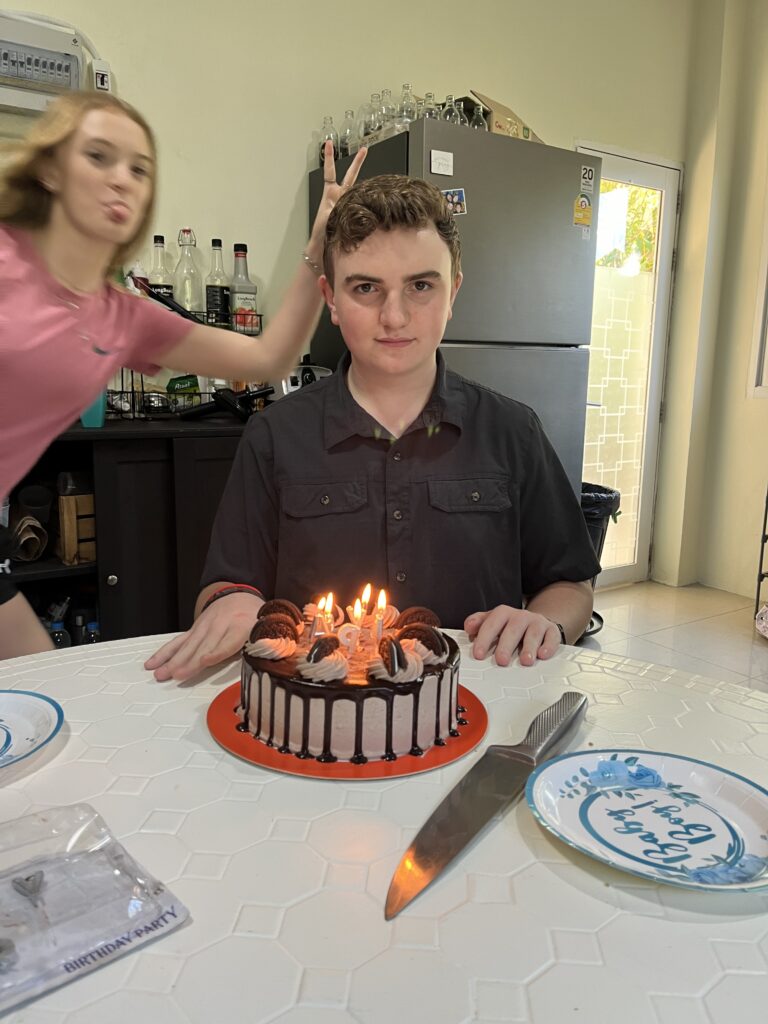
I love it when people sing happy birthday to me. There was no way I was going to have literally hundreds of kids singing Happy Birthday to me. No way. I specifically told Selah and Jeremiah that if they said anything about it being my birthday to anyone, I would be personally responsible for their sudden, unexpected death.
Anyway, after the cookout our parents picked us up and took us to that lake where they were setting off all the floating lanterns. They had bought some and we sent them off ourselves.
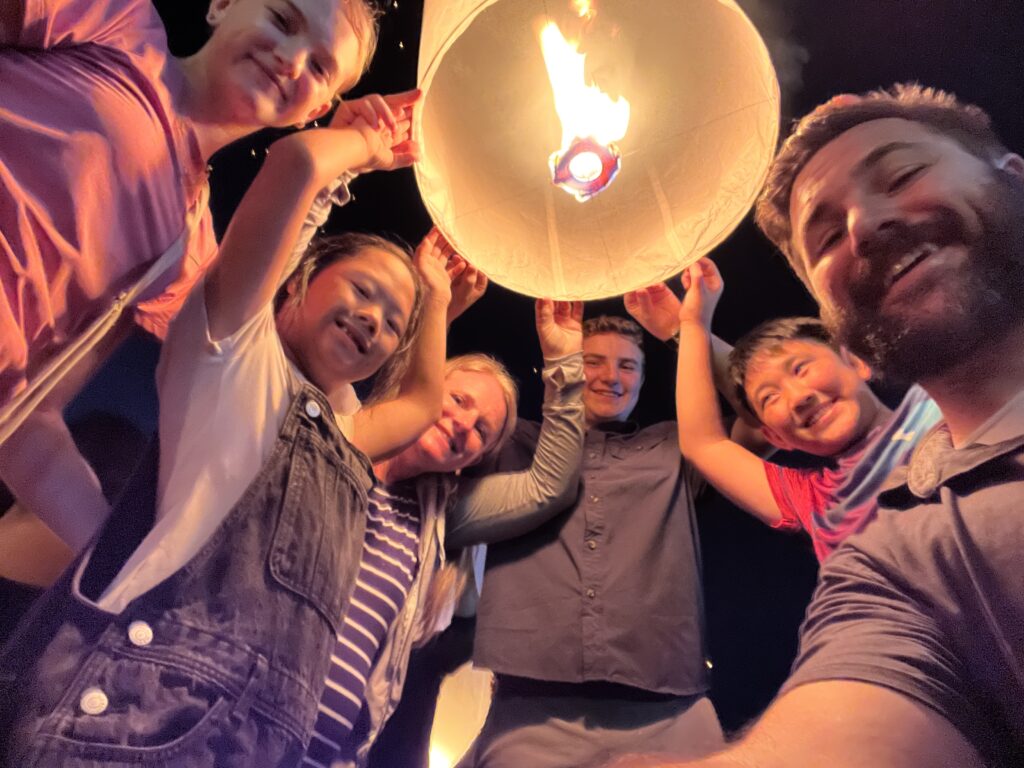
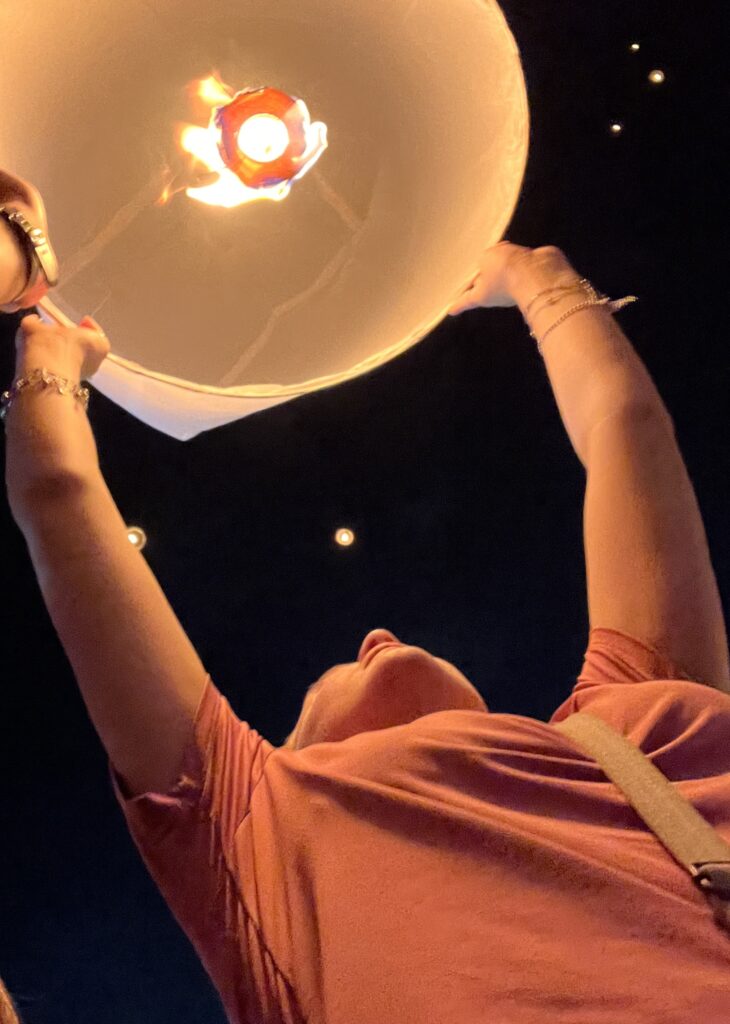
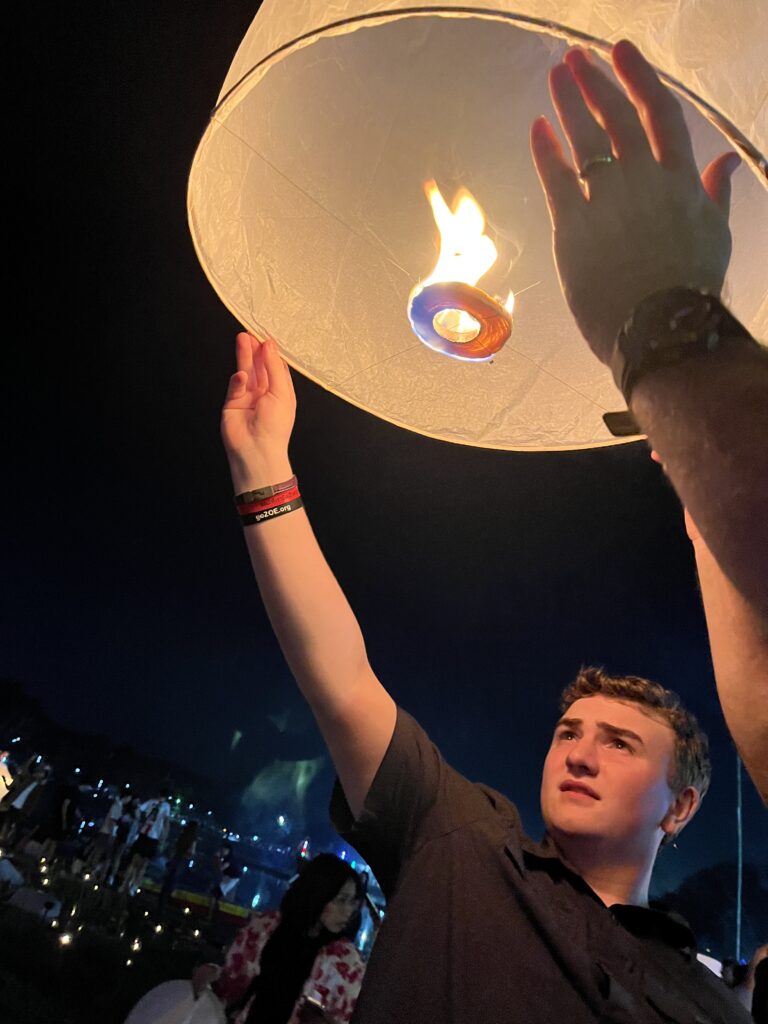
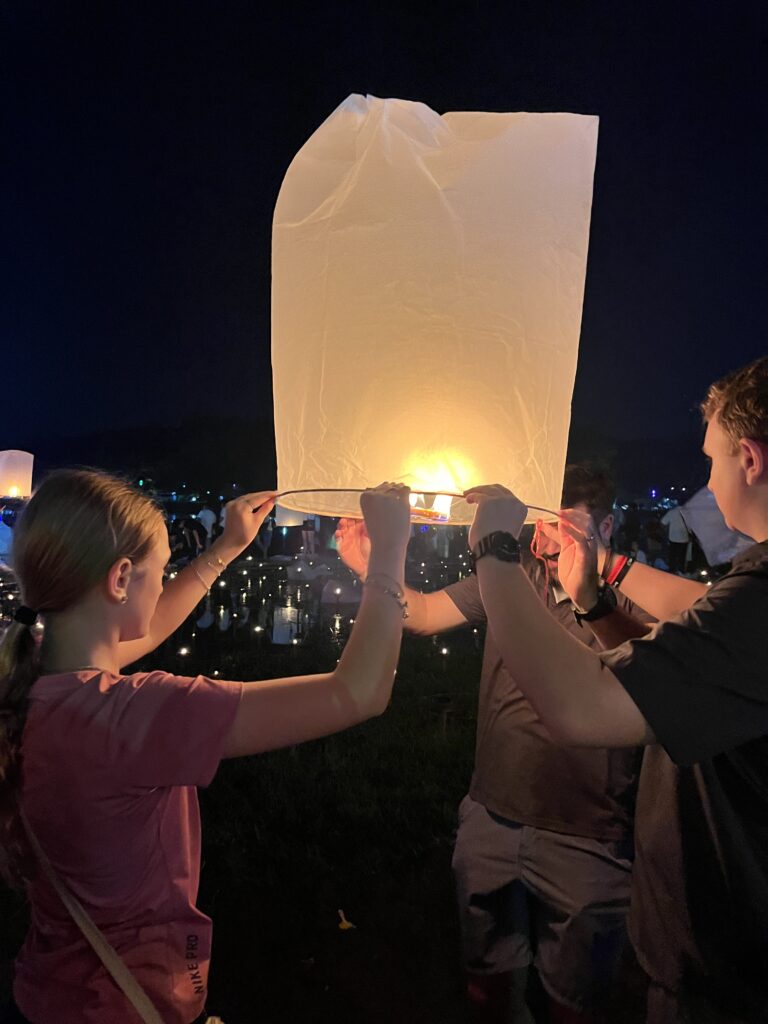
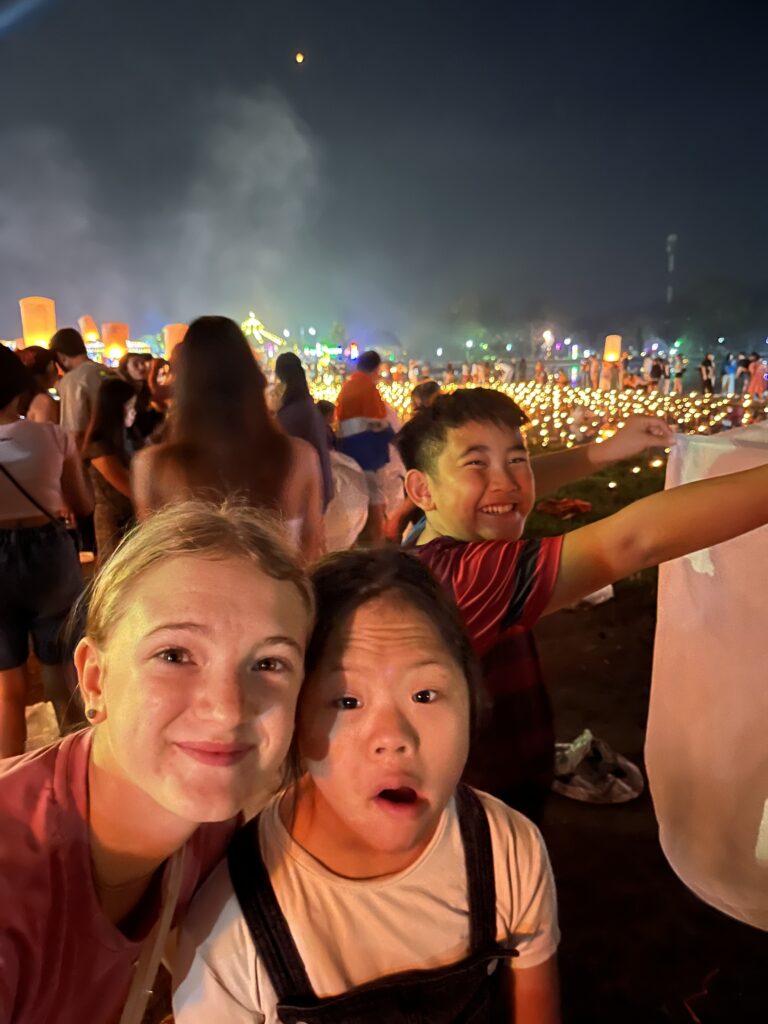
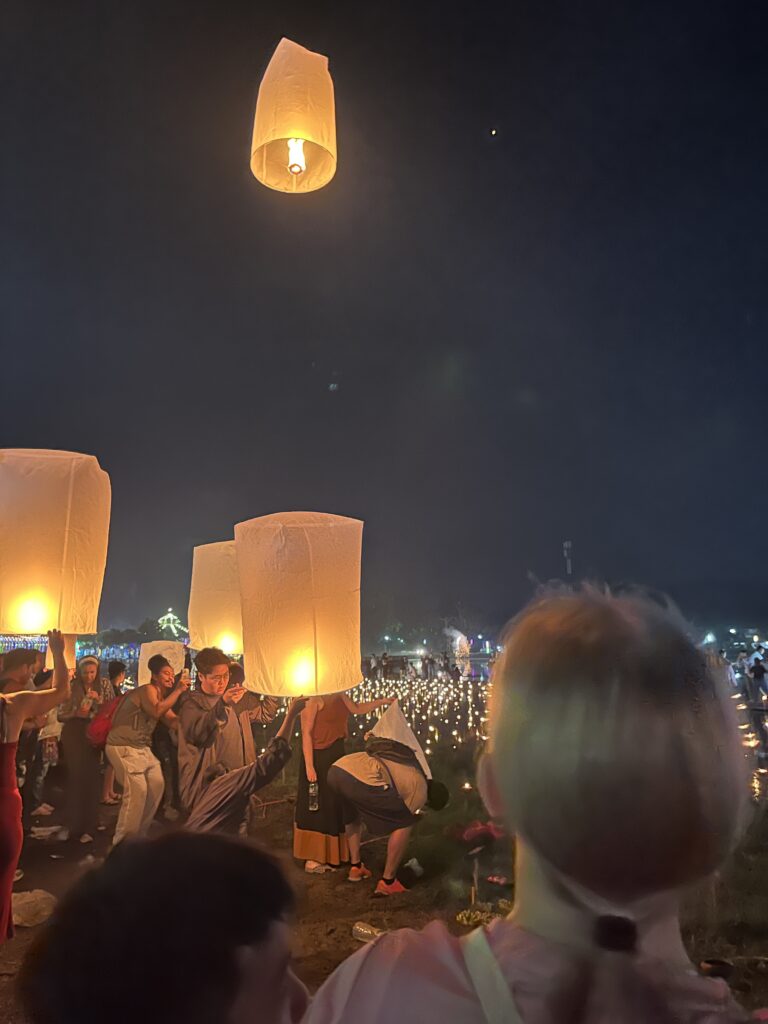
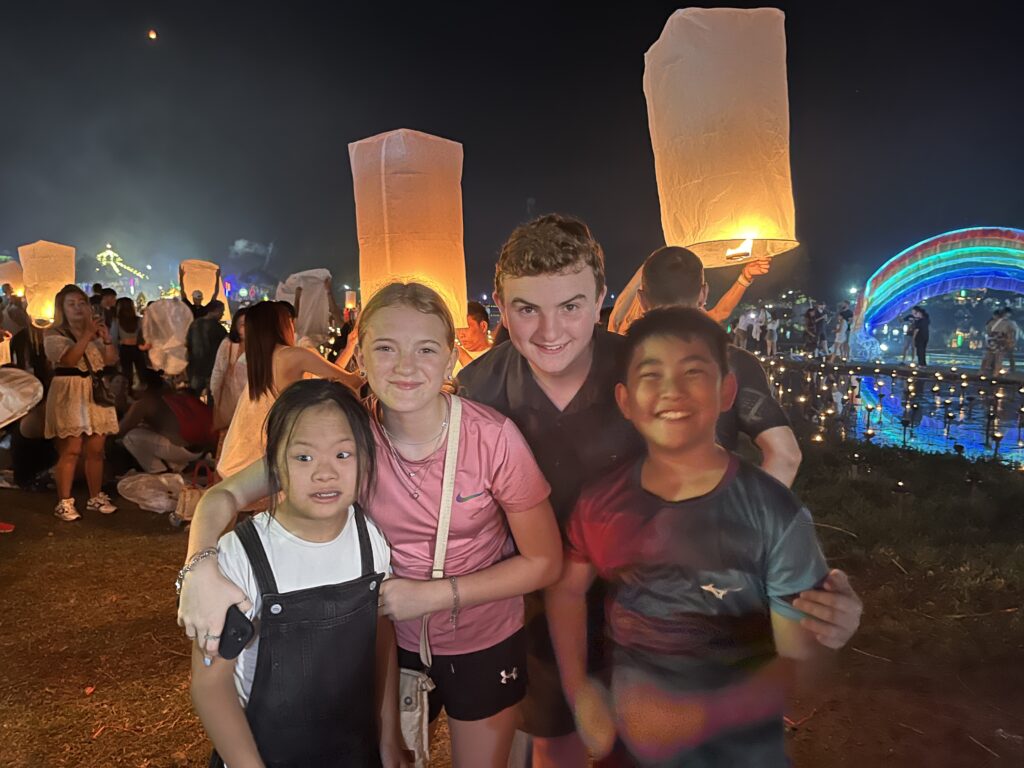
This was super cool! It felt like we were signaling for Rapunzel to come home. Apparently, Rapunzel and I share a birthday. There were lanterns everywhere. The one thing that almost ruined it was how crazy it was. Now, I am an introvert who likes peace and quiet. Some of the people at the lake, though, were crazy, insane, maybe drunk, pyromaniacs. People were constantly shooting off fireworks, and some wayward lanterns got very close to other people. There was even some guy meant to send fireworks blazing into the air from the shore of the lake next to us. He didn’t aim right however and shot a firework straight into the ground next to us! Fiery clumps of dirt flew everywhere including my hair, though it didn’t light my hair ablaze. There was even a friend of mine there who came up behind me, lit a small bomb in front of my face and threw it at the ground near my feet where it sparked and fizzed madly. I did not like it. Not one bit. I am not scared of fire, but more people die from fireworks than sharks, so there is reason to be aware.
Why do they send of flying lanterns? Well, traditionally, they use them to send prayers and wishes to the spirits. It is also supposed to bring good luck. Nowadays, it seems to me they are mostly used to pull in tourists.
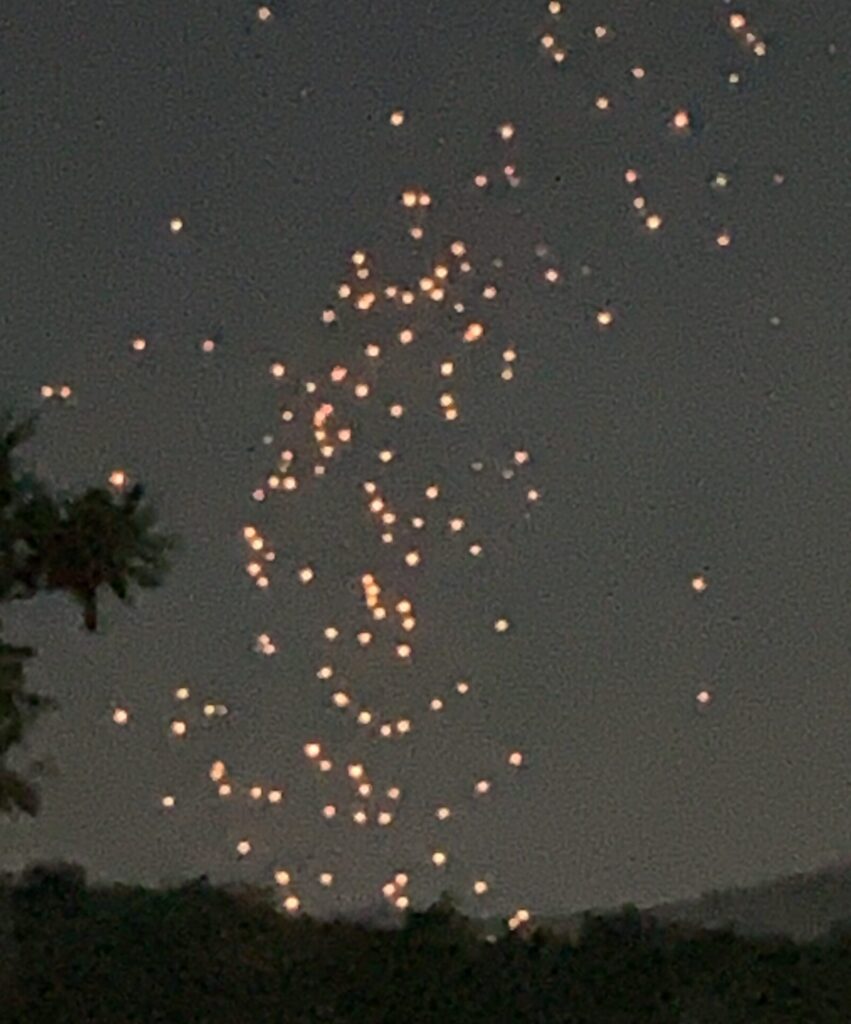
Flying lanterns aren’t the only lanterns set off here, though. There are floating lanterns that float in the air called Khom Loi or Khom Fai (Fai means Fire). Then, there are floating lanterns that float in water.

These things are cool. Our Thai teacher taught us how to make them last year. But, this year she is opening a new school near her brother’s Thai school so they held a Loi Grathong event together at the Pantip Plaza. Khruu Em (our teacher) has only been teaching out of her house until now so she doesn’t have as many students as her brother who has a school and multiple other teachers working with him. In fact, we might have been the only ones from Eden School.
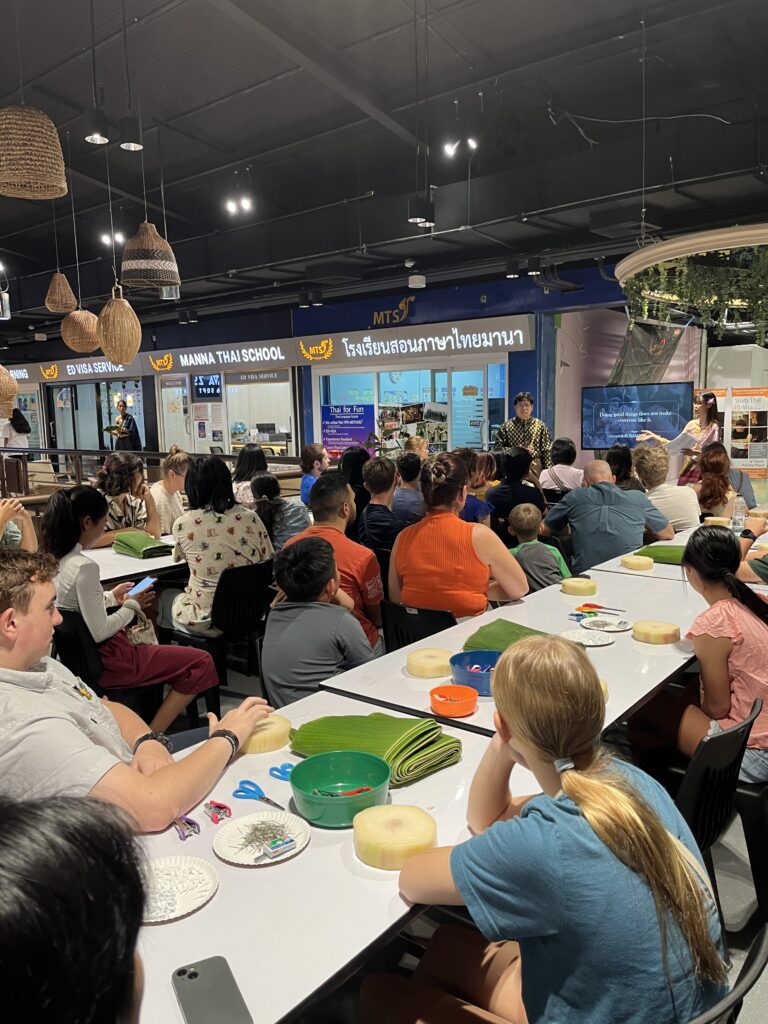
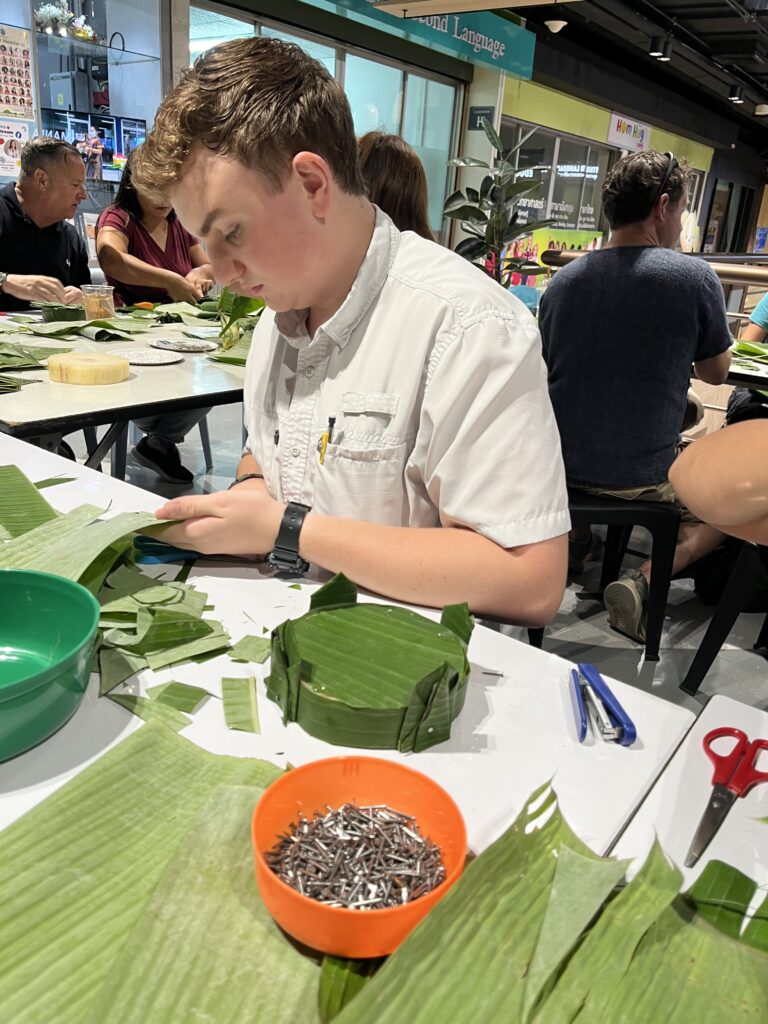
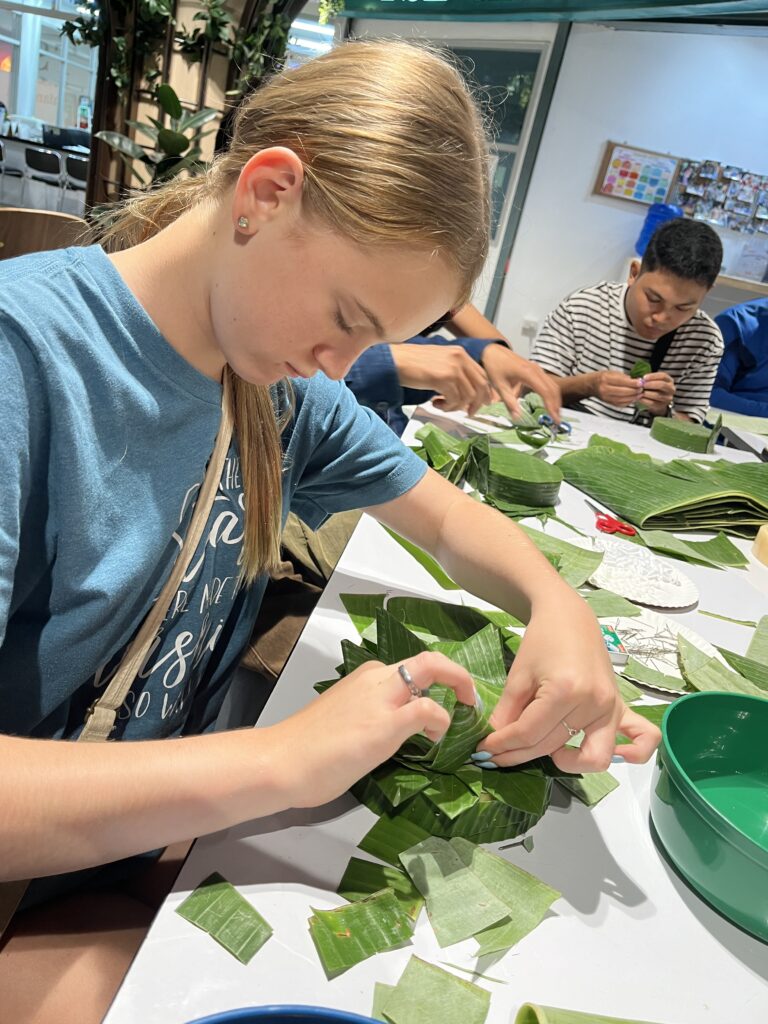
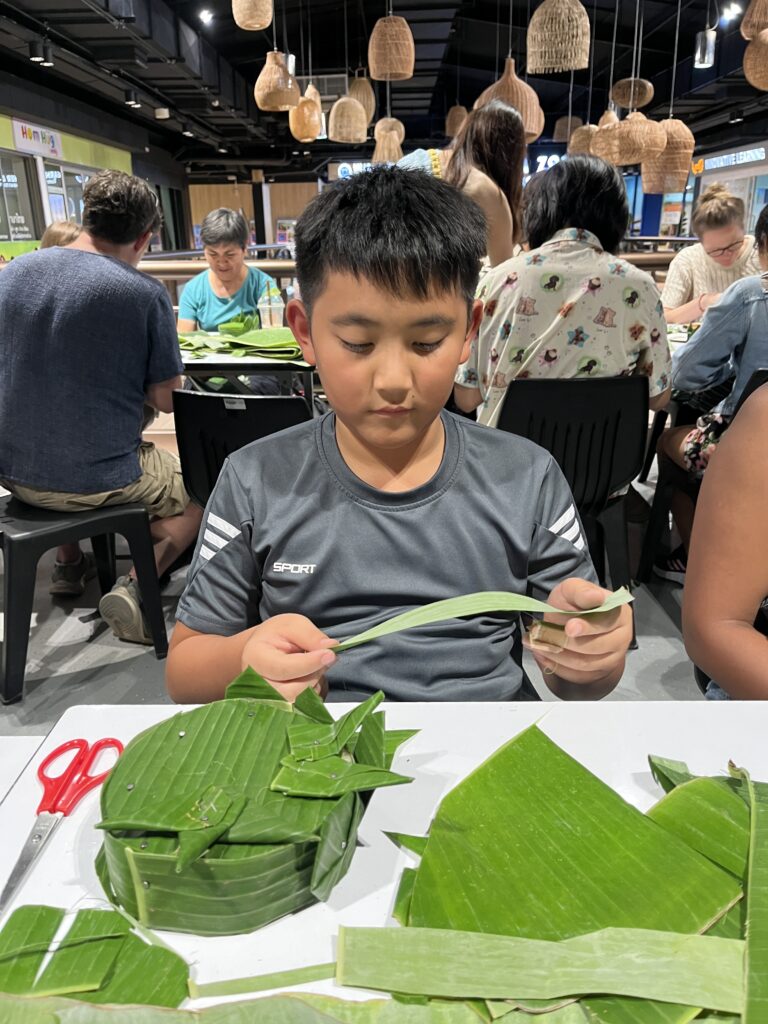
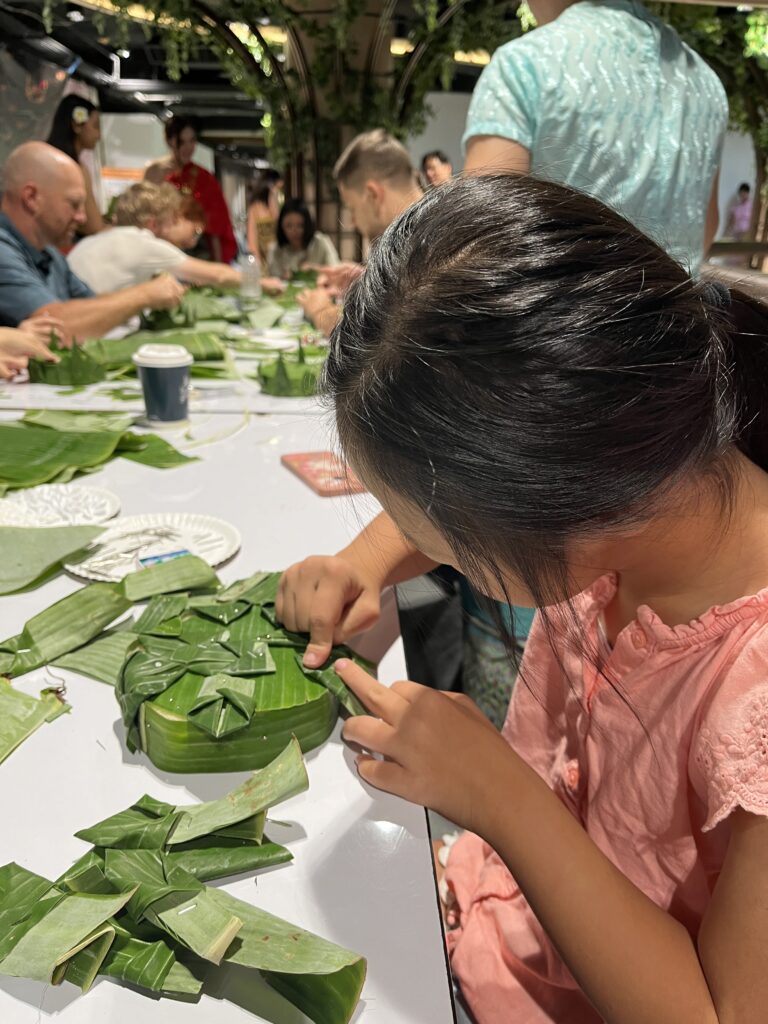
Anyway, we made our Grathongs. First, they cut the stalks of banana trees into thick circles which becomes our base. Secondly, we use small nails and staples to stick cut banana leaves onto our circles. Then, they taught us how to fold our banana leaves in cool triangular “petals.” There are many different ways to fold the leaves to make different shapes, but they really just focused on the simple ways because it was a whole bunch of Farangs (foreigners).
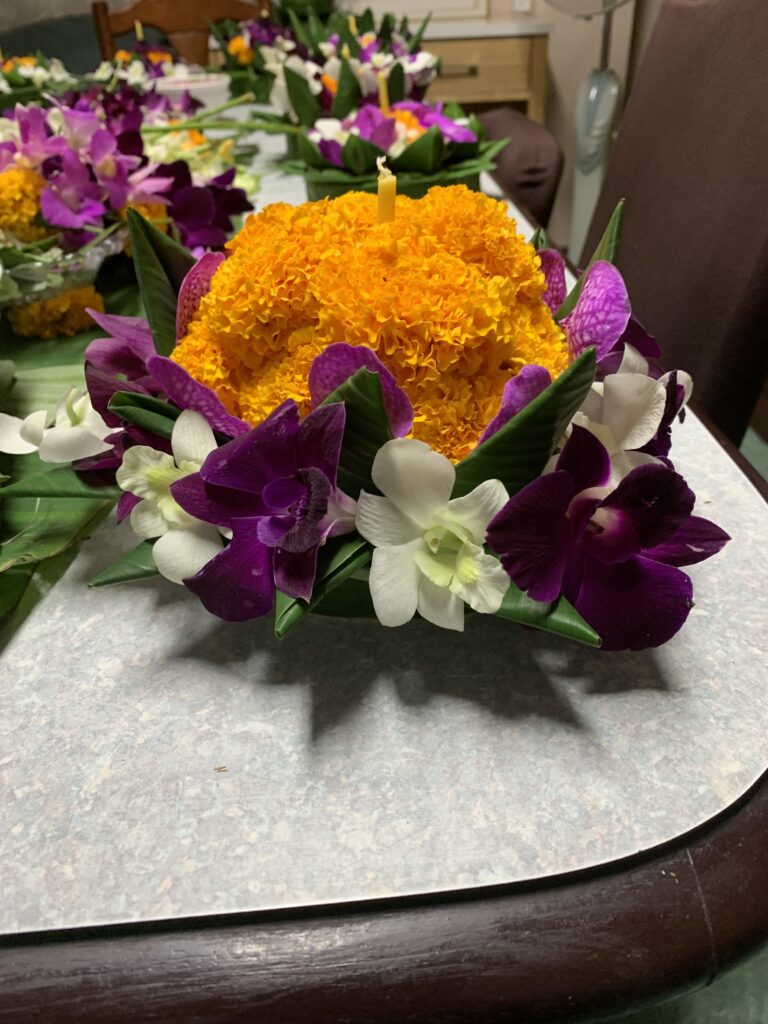
After we made them however we wanted, we would cover them with bright flowers such as marigolds and orchids. Then we had lunch. Khruu Rutchira made a whole bunch of amazing Thai dishes. She made พัดซีอิ๊ว (Pad See Ew), Pink Noodles (I don’t know what they are called or even how they are pink but it’s really good), ส้มตำ (Som Tam), she also ordered these amazing curry puffs with either peanut curry or chicken curry. She also had a whole bunch of sweet floral teas. For those who don’t know, (most of you), พัดซีอิ๊ว (Pad See Ew) is a Thai dish that is comprised of soy sauce, vegetables, your choice of meat (I think it was chicken), and these large flat rice noodles which look really weird and have an odd texture (but I like it). It is one of Tallulah’s favorite Thai dishes. If you don’t know what ส้มตำ (Som Tam) is, then I know you don’t read all my posts. If you want to know what it is, click here.
Before lunch and the making of Grathongs (floating lanterns), they gave us a little history lesson. The practice of Loi Grathong started in the 14th century. The main religion of Thailand is Buddhism. 90-95% of the population is Buddhist and the rest of population is muslim or smaller less known religions. Christians only make about 1% of the population. Though most of the Christians live in northern parts of Thailand like Chiang Mai, Christians only take up around 16% of the population in the city. The small villages like the one I went to in Doi Chang or Doi Inthanon make up most of the Christian population.
Anyway, while Thailand is a Buddhist country, the Buddhism in Thailand also shows heavy influences from Hindu and other religions like that. One thing the Thai people took from the Hindu religion is the worship of the River Goddess, KhongKha (คงคา), which is their name for the Hindu River Goddess, Ganga.
Now, the rivers in Northern Thailand such as the Ping River that flows through Chiang Mai are disgusting. They are muddy brown and smelly and filled with trash. Thailand’s “solution” to the problem is to make Grathongs. The floating lanterns are beautiful and fragrant, especially if you add the traditional joss stick or incense candles to them. The making of Grathongs is representing repentance and the asking of forgiveness for dirtying up the rivers. The Buddhists take this very seriously, though as Christians we can’t help to wonder why they think vessels full of nails and staples and candles would help clean the water. Whatever.
At first the lanterns were made very simply and carefully, but over time, professionals figured out how to make them real works of art. It is very similar to how Americans make jack-o-lanterns. Some people take them way too seriously and some just accidentally make the most beautiful things without any effort. I am not one of those people. I am terrible at making jack-o-lanterns and Grathongs. However bad I am at making them, they are both still fun to make, though they both make a big mess. Jack-o-lanterns make a mess with their guts and Grathongs make a mess with banana leave scraps.
During Loi Grathong, they also have large parades with huge elaborate floats covered in lights and decorations. Khruu Em showed us pictures and asked if we were going to go and we said probably not but asked if her daughter Marin got a lot of candy. That made her confused. Apparently, it is mainly an American tradition to throw candy off of floats in a Parade! I thought that was just a given of parades but she had never heard of it before. I thought that was interesting.
Loi Grathong was a super cool way to spend my golden birthday and it it was a once in a lifetime experience that we have gotten to experience TWICE. It just shows that doing what God calls us to do can be rewarding. The experiences we have had since coming here are pretty amazing and we are blessed to be able to enjoy these things about Thailand while living here!
-
After 12 Days of Christmas: Epiphany!
As a grown-up, I don’t think I’ve ever taken the Christmas decorations down before today, and that was true before I knew Epiphany was even a thing. At first, I’d say it was just me dragging my feet about allowing the “most wonderful time of the year” to end. As far as it depended on me–I declared by lingering decorations–we would have our full 12 Days of Christmas even if the rest of the world around us was ready to move on into New Year’s Resolutions involving less clutter and fewer cookies.
The New Year celebrations in Thailand overshadowed Christmas, almost swallowing it up: the numbers 2024 were displayed in red and green almost as if it were synonymous with “Merry Christmas.” There are plenty of Christmas decorations around Chiang Mai, in keeping with the city’s intercultural flair. The last time I was anywhere a Christmas tree had been erected, it was still up…and I like that. 2024 is the year of the dragon, a tradition Thailand shares with other Eastern cultures: the red and gold New Year décor blends right in with the glitzy glittery sort of Christmas décor that seems to be favored here. [Sidenote: I’ve probably seen more of the puffy sort of tinsel garland this year than in the past 20 years of Christmases in America combined. It reminds me of my Grandma’s Christmas tree in the late 80s/early 90s…you know, around the same time in history that we rolled our jeans at the ankles so they poofed out like MC Hammer pants.]
Yes, our Christmas tree is still up. Christmas was truly lovely in all the most important ways for us this year. We had a joyful celebrations with the ZOE family, and hosted a Christmas party for the ZOE Child Rescue Team.
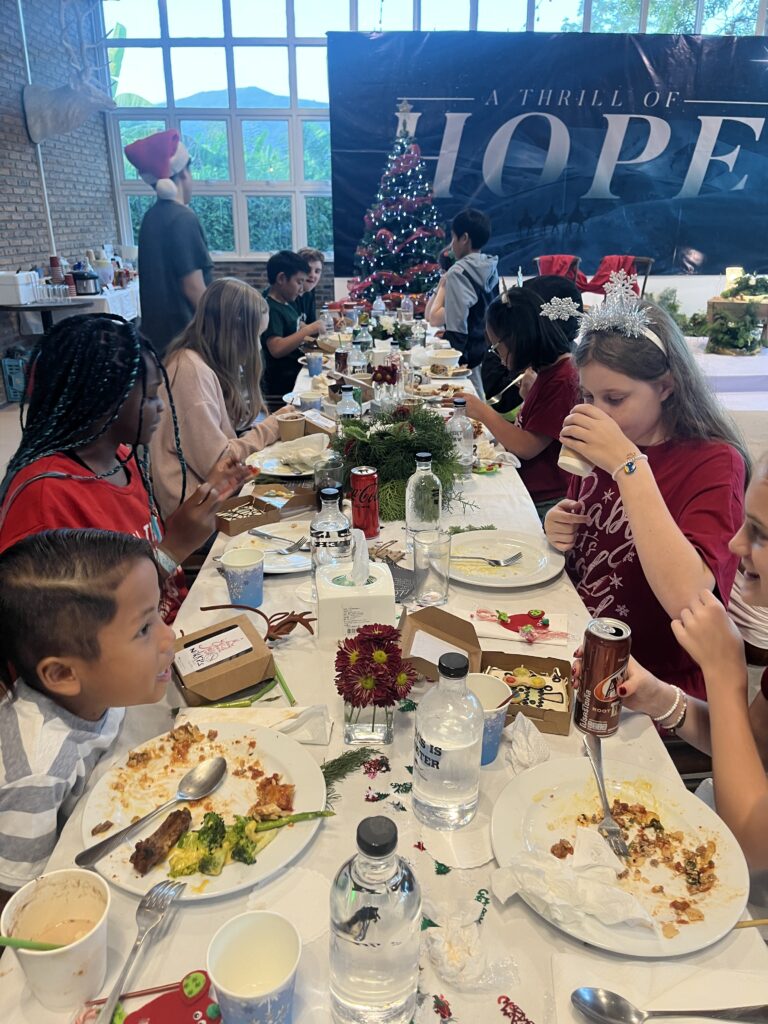
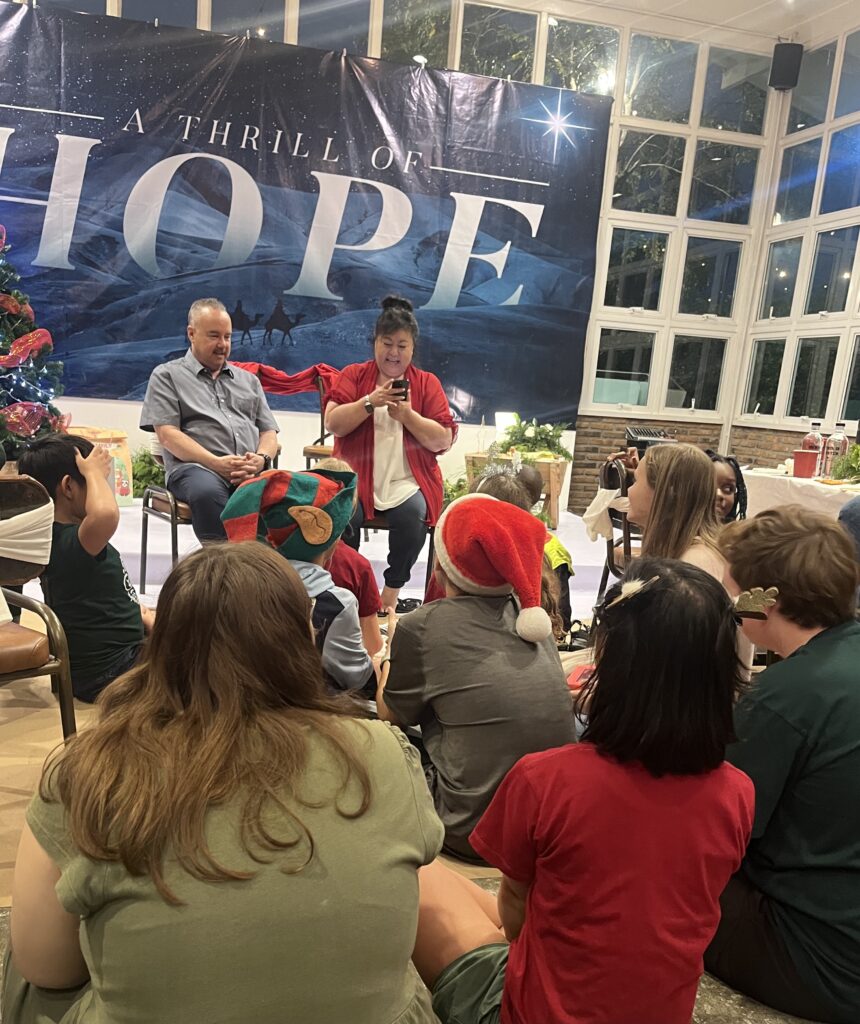
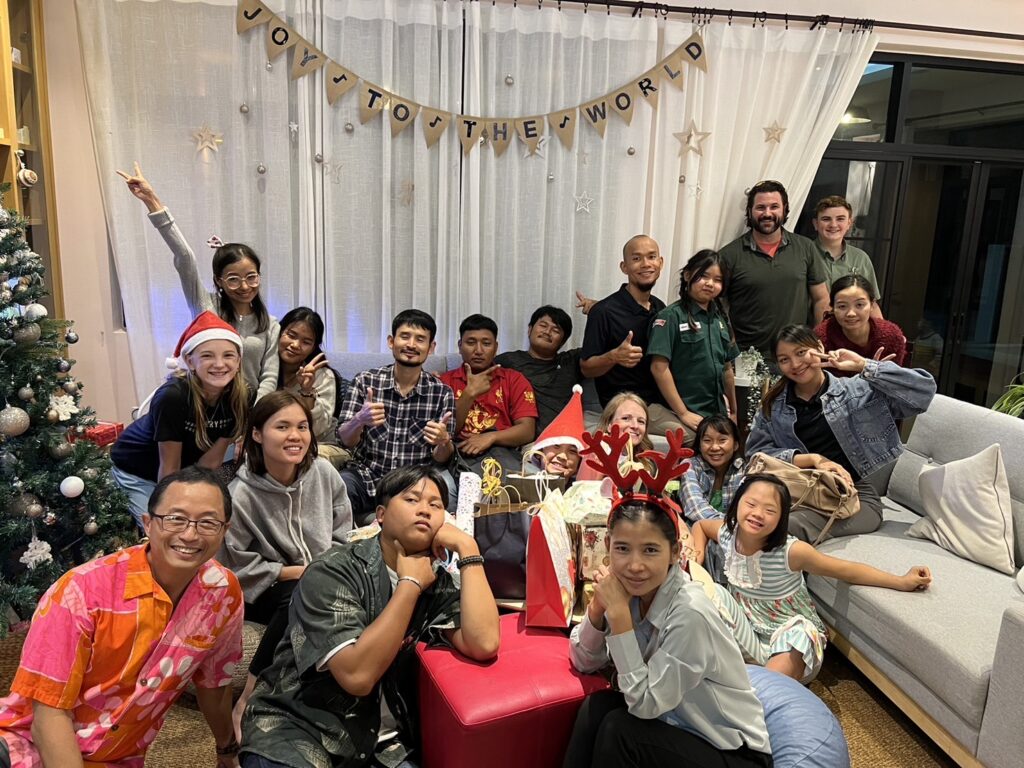
At our international church service, we heard scripture read in a multitude of languages I didn’t know existed and worshipped with believers from all over the world. We took our annual Christmas church service photo in front of palm trees instead of a Christmas tree, void of fancy dresses or sweater vests.
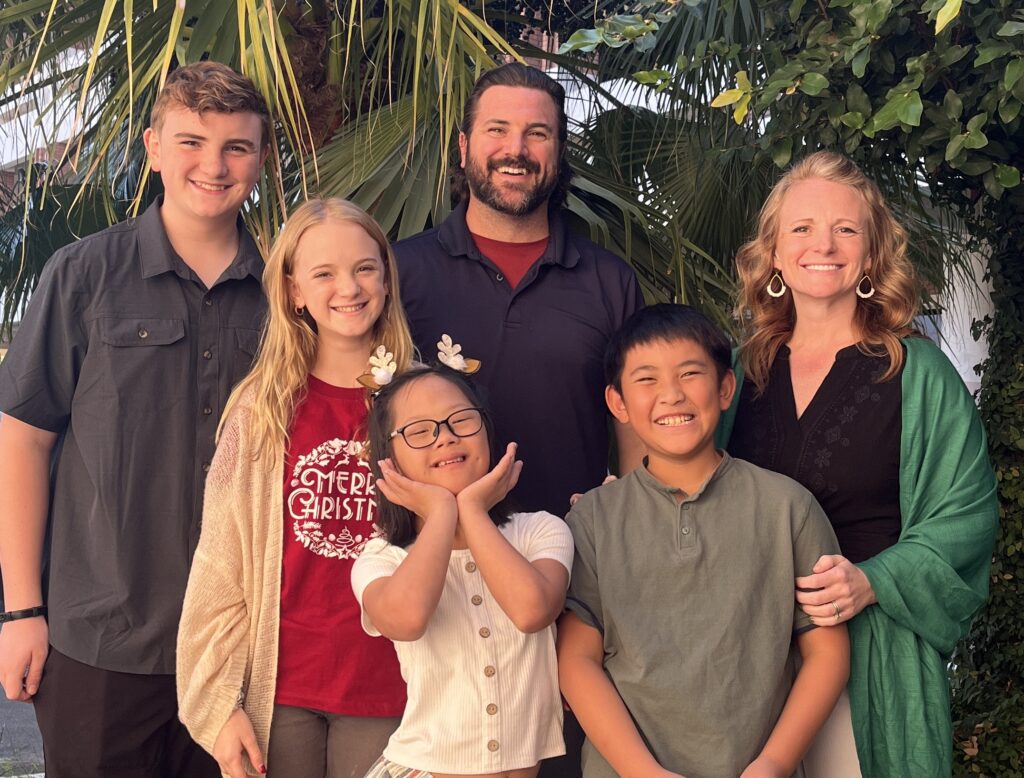
However, I admit the coziness of the days between Christmas Day and News Year’s Day left me wanting. I still snuggled under my “Joy to the World” blanket, drank my coffee hot (even though iced is more appropriate to the climate), and tried to bask in the glow of the Christmas tree in our living room for some heavy hours of reading and reflecting. But I missed my fireplace, the snow outside, the sound of the wind howling, and reddiwhip to put on my coffee.
I was today years old when I really realized just how culturally bound my “feeling of Christmas” has always been. Snow wasn’t a part of the first Christmas. There was no bedazzled Christmas tree beside the manger. Stockings weren’t hung by the chimney with care on the night Jesus was born in the stable. Of course I knew that … and yet those things have always been a part of how Christmas “feels” to me. Realizing that, Epiphany carries new weight for me this year and is more beautiful than ever before.
Traditionally, Epiphany is the day the church has set aside to remember the wise men coming to Bethlehem to find “he who has been born king of the Jews” (Matthew 2:2). The wise men came from the East. I am a Westerner, I think according to Western ideas and have been shaped by my Western culture. I now live in the East and am daily becoming accustomed to Eastern ideas and the deep-seated customs of Eastern culture. The men who came to find Jesus came from this side of the world. Buddha walked the earth hundreds of years before Jesus and so I wonder: were the wise men schooled in Buddhist thought like the kids here in Thailand are today?
The wise men were astrologers or magicians: wealthy men who accurately discerned a message written in the stars. They came to worship, but they were not Jews waiting for their Messiah: they were Gentiles from a foreign culture, with totally different ideas, practices, traditions, and culture. A lifetime of astrological study, a very long cross-country journey, and their diligent search for one bright star culminated as they “rejoiced exceedingly with great joy” over finding young Jesus (Matthew 2:10). They bowed in worship to a tiny king and lavished gifts upon him (Matthew 2:11). This wasn’t at the manger, but I am glad the wise men are a part of our nativity scene anyway…we need them in this story.
After the gifts were given and received, the wise men’s part in the greatest story ever told just ended: in a quiet, anti-climactic finale we are told they chose to “return home by another way” (Matthew 2:12). The wise men’s experience of Christmas brought exceedingly great joy and—also—complex feelings of a darker nature (fear? Anxiety?) that caused them to act in caution and secrecy. When they chose to “return home by another way” they were choosing to disobey the local government official’s direct orders (see Matthew 2:8). This, in part, led to the “Massacre of the Innocents:” the tragic deaths of so many innocent children at the hands of a power-hungry government. And so Matthew’s account of the Christmas story ends with weeping and lamentation that could be heard miles away (Matthew 2:18).
I scanned the Christmas accounts for emotive sort of words that give us clues to how that first Christmas may have “felt.” Here are a few of them, in no particular order: shame, resolve, contemplation, fear, rejoicing, great joy, warning, lamentation, weeping, refusal to be comforted, greatly troubled, fear, power, holy, wonderful, blessed, rejoicing, exaltation, mercy, great fear, great joy, haste, wondering, pondering, glorifying, praising, peace, marveled, give thanks, “and a sword will pierce through your own soul.”
Christmas is beautiful, as we celebrate our God who took on flesh in the most extraordinary way through the most ordinary of miracles. Christmas is complicated, for all the same reasons and more.
The celebration ends, after 12 days of Christmas, with Epiphany. Epiphany recognizes that Jesus is a gift not only to a specific people, but a gift unto all the world. The celebration of the coming of our LORD is one that transcends culture, and it has done so from the very beginning. Upon entering the world, Jesus radiated love so bright and so bold that the whole world could see. Those wise men from the East traveled far in search of the glory of God with lavish gifts and hearts of worship. Jesus came for the children of Israel AND for those in the East. He came for you. He came for me.
-
Lantern Festival
My blog post is about Loy Krathong. Loy Krathong is a lantern festival in Thailand.
We made our own krathongs that float on water. Khru Em taught us how to fold the banana leaves.
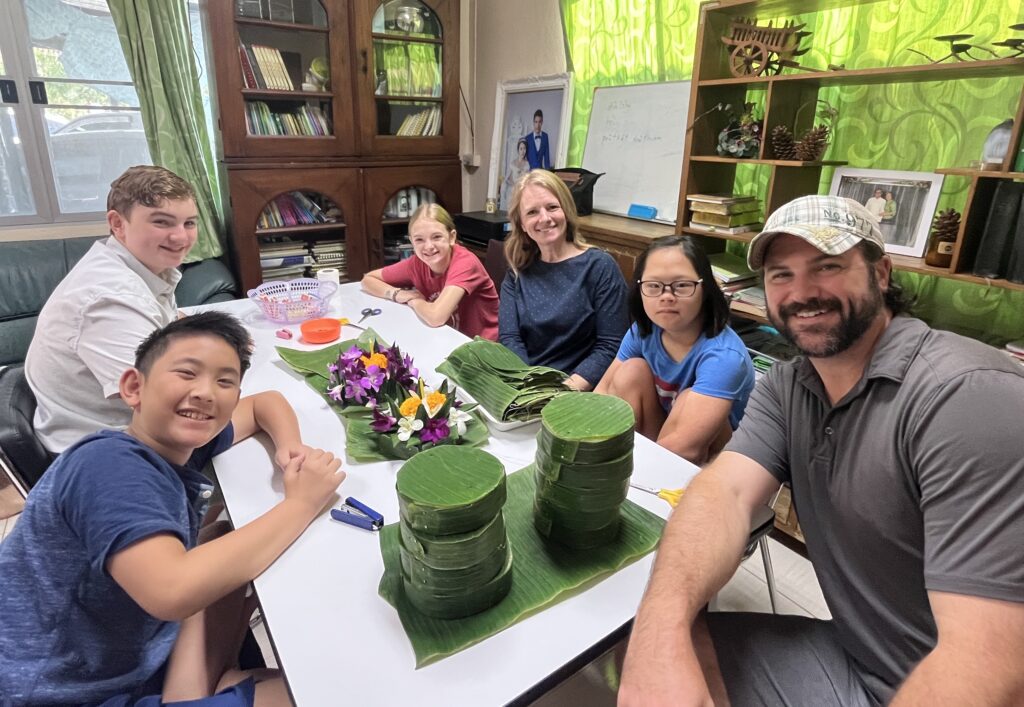
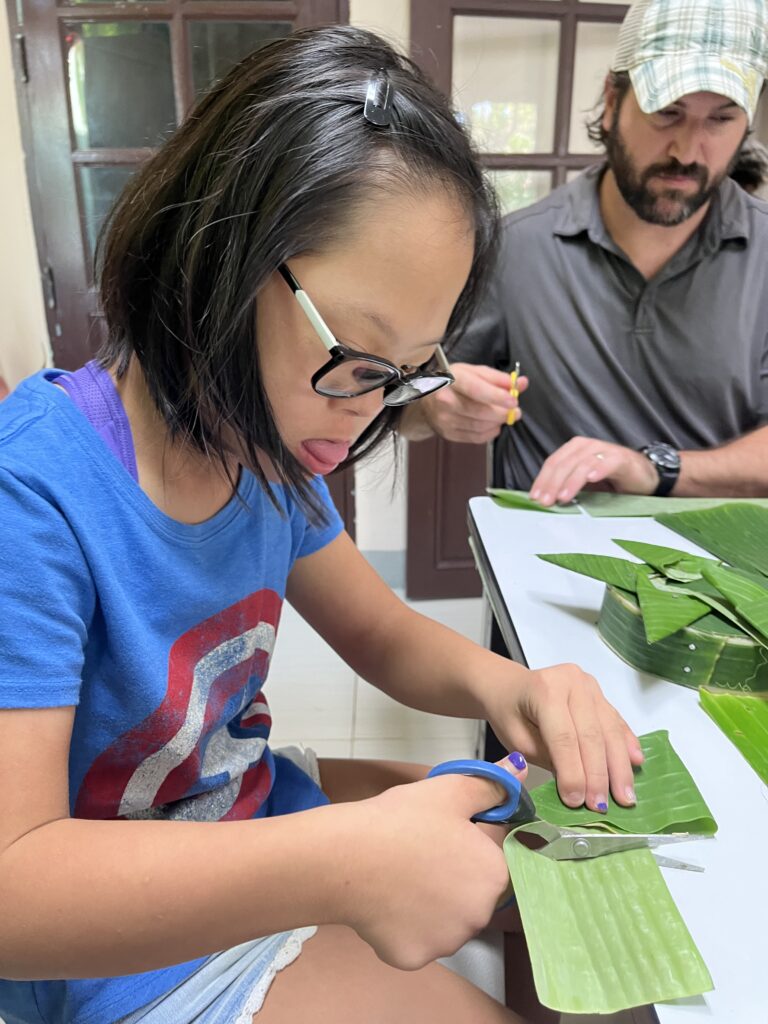
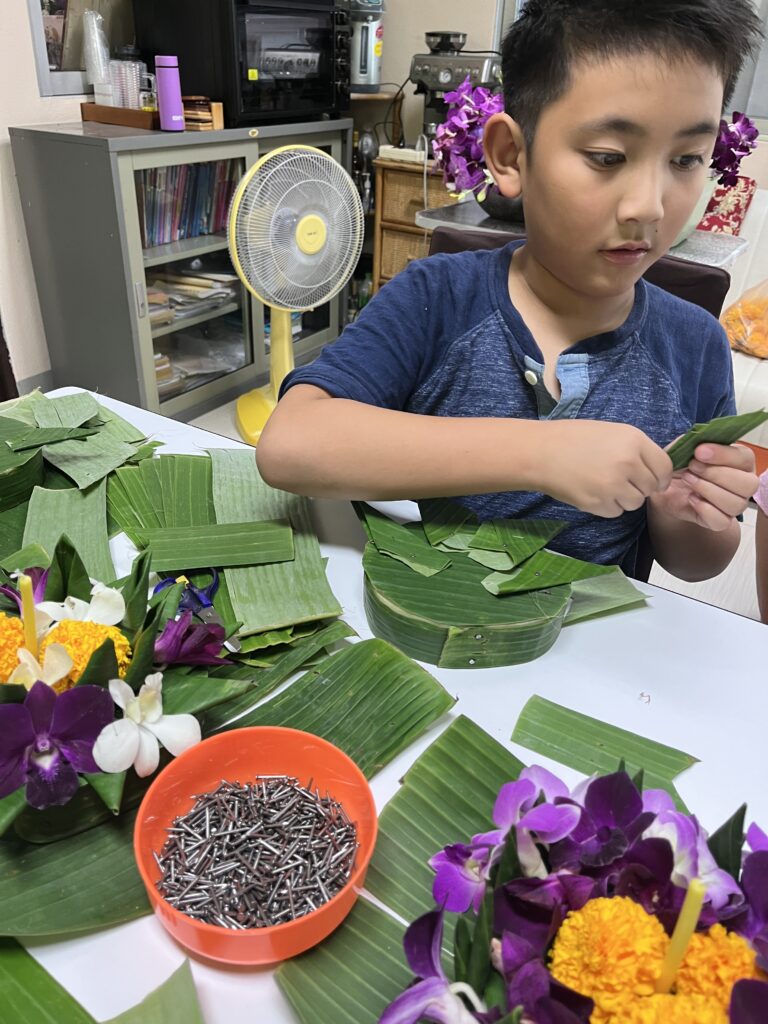
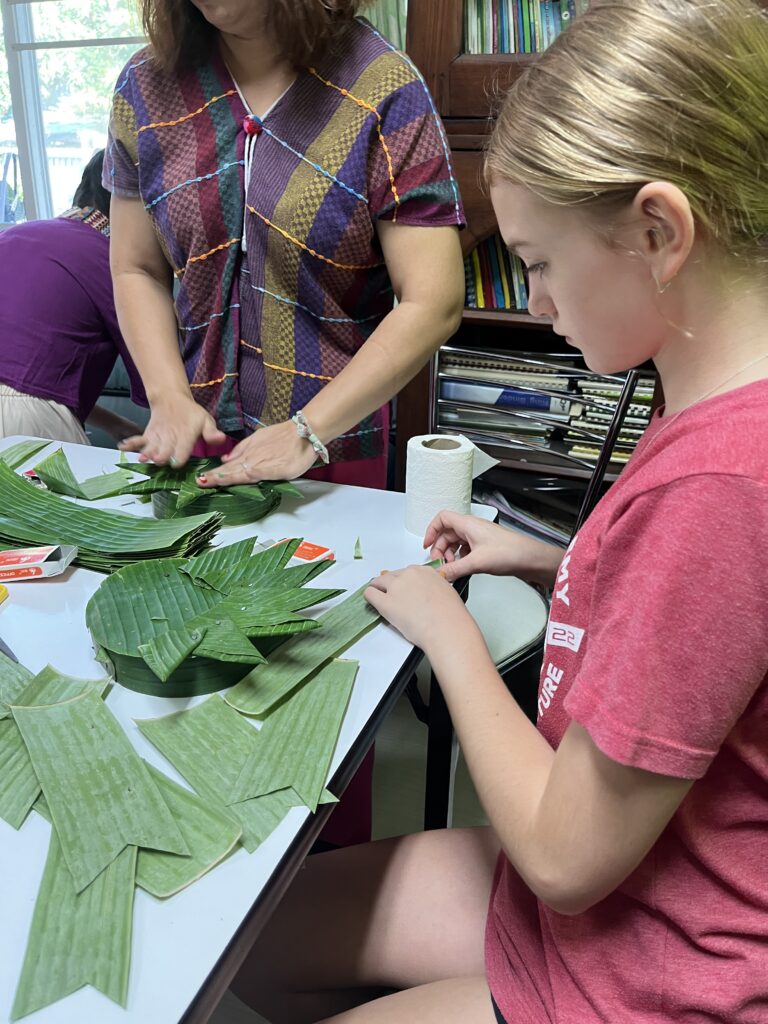
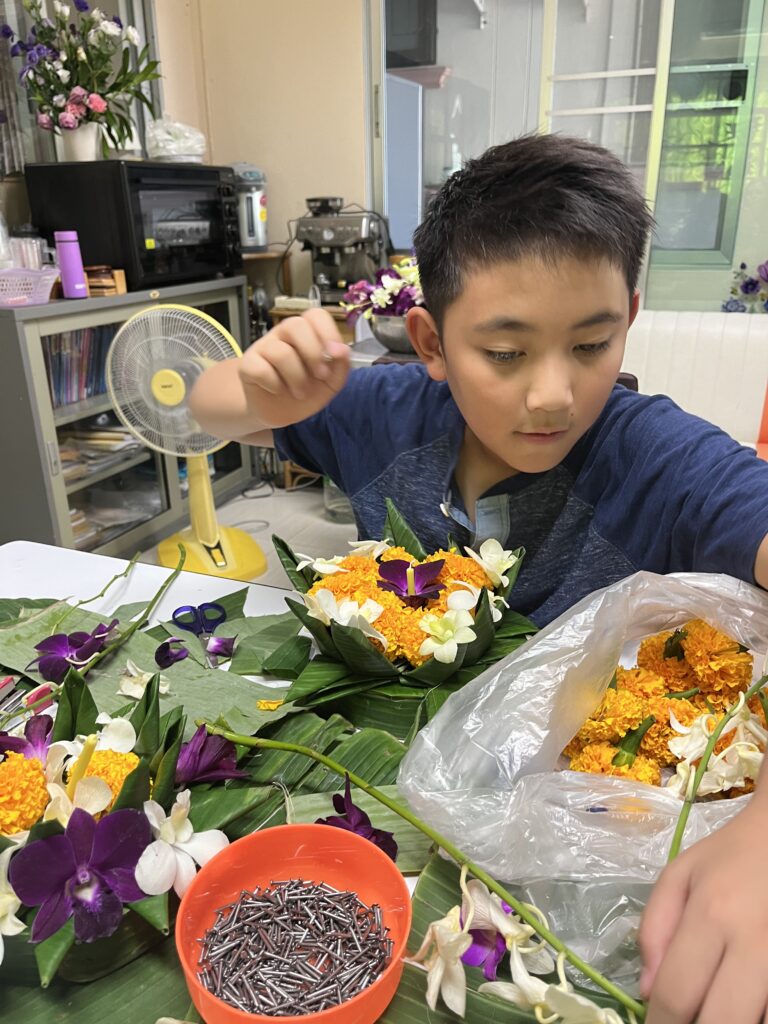
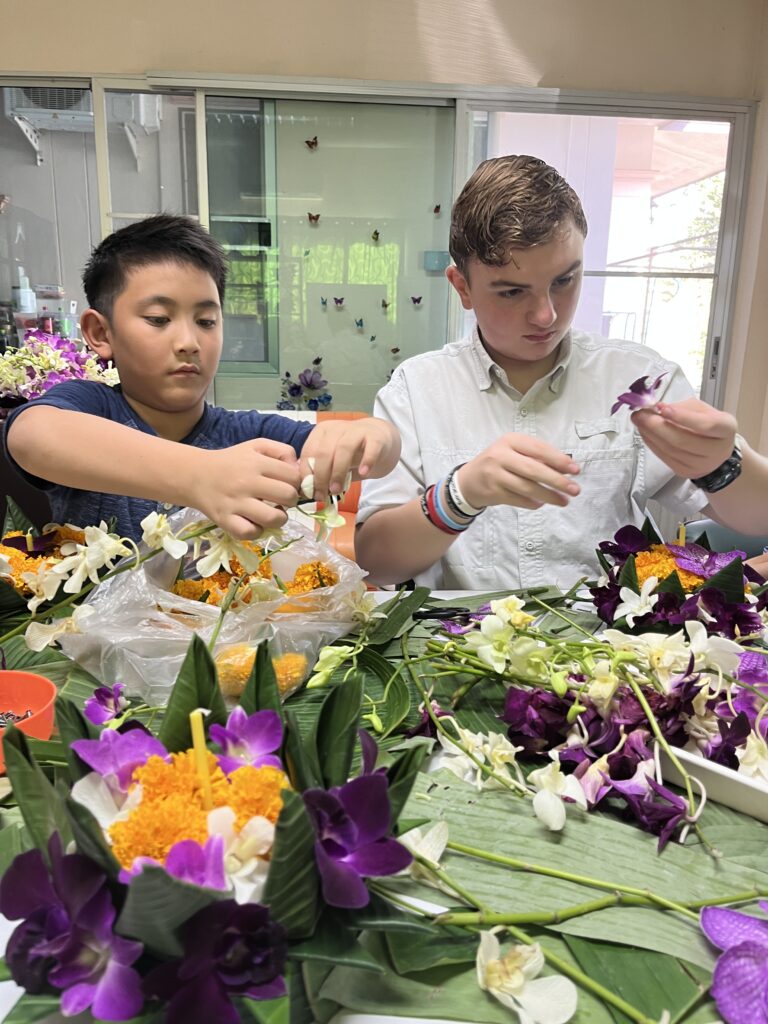
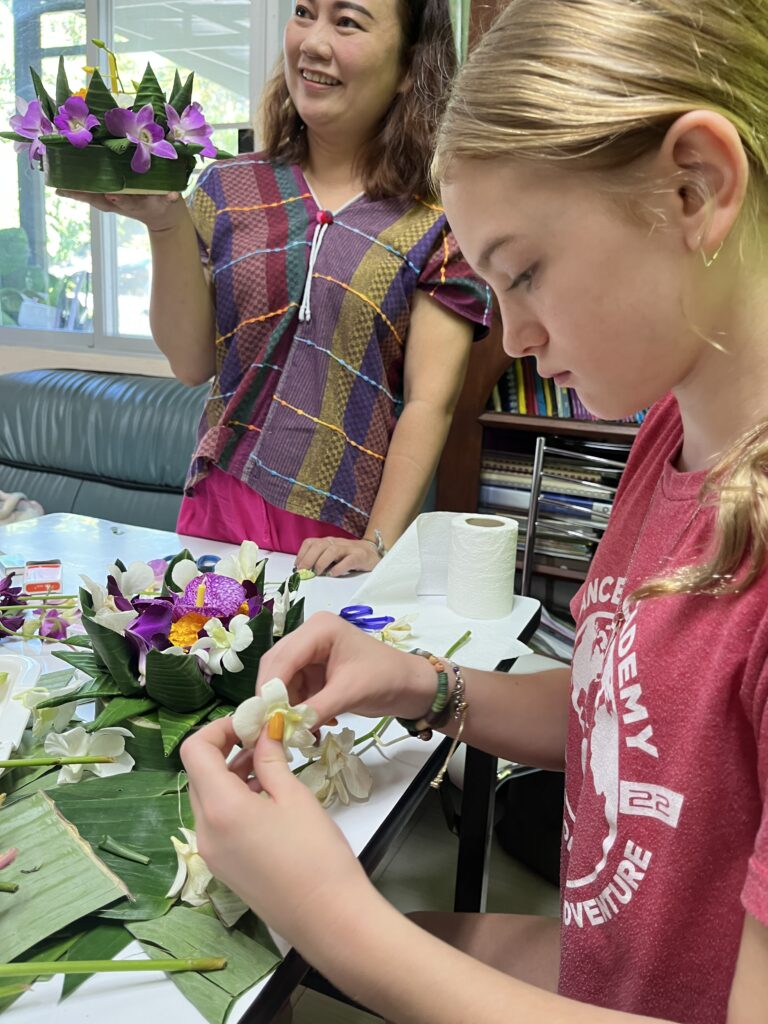
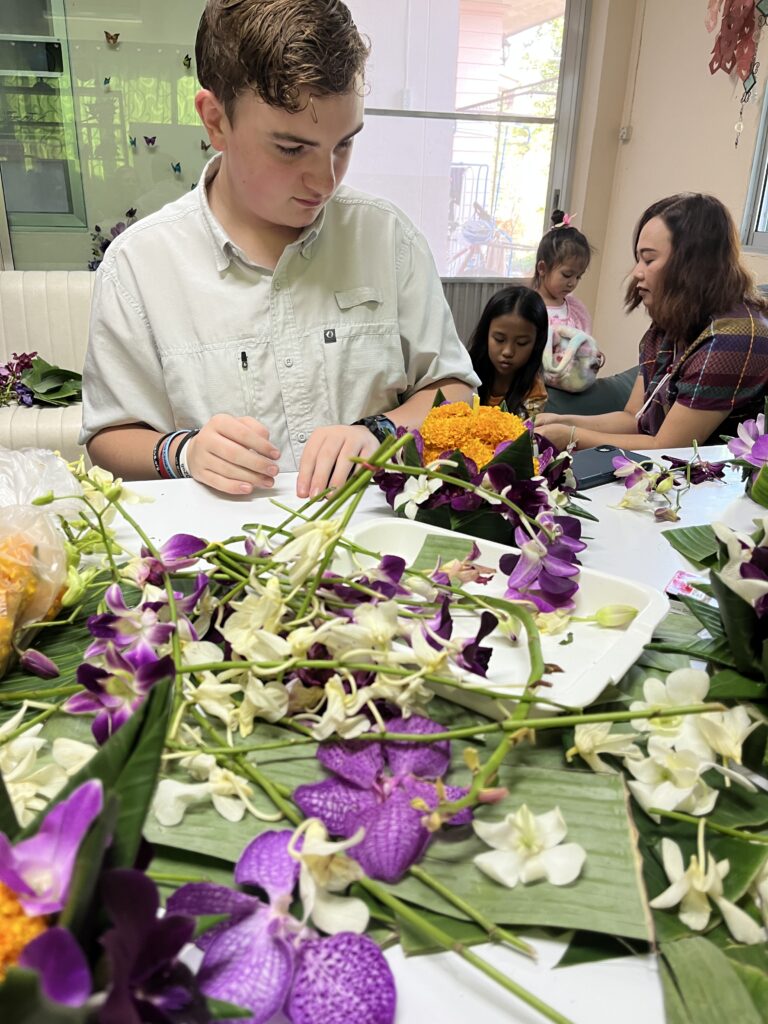
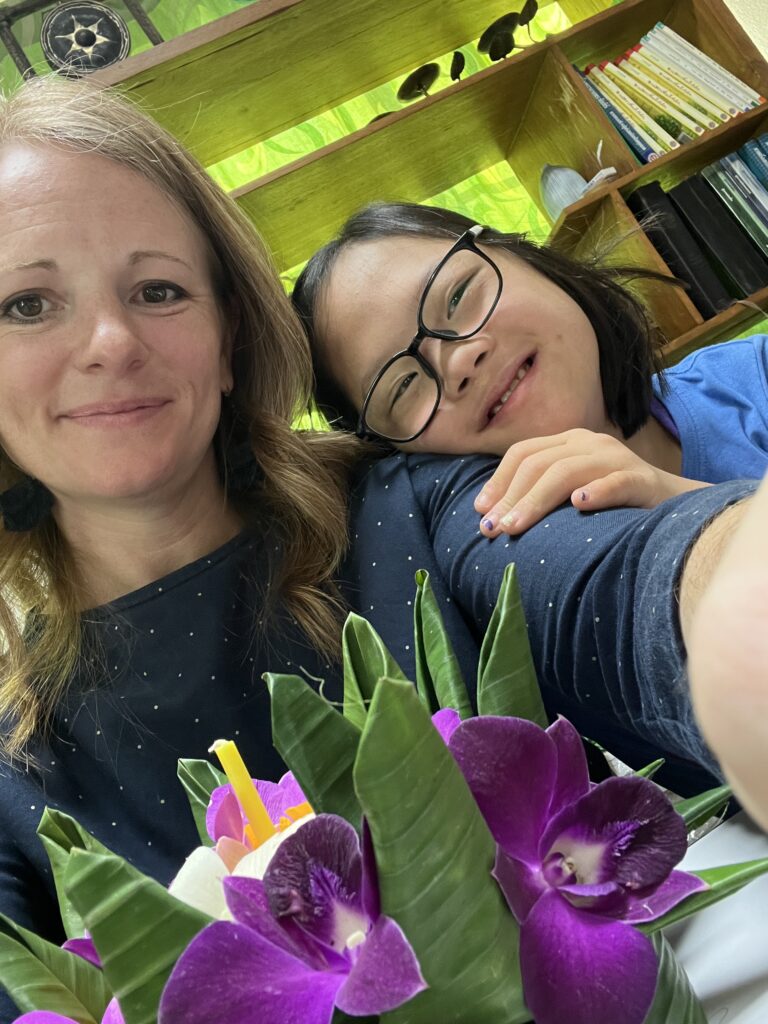
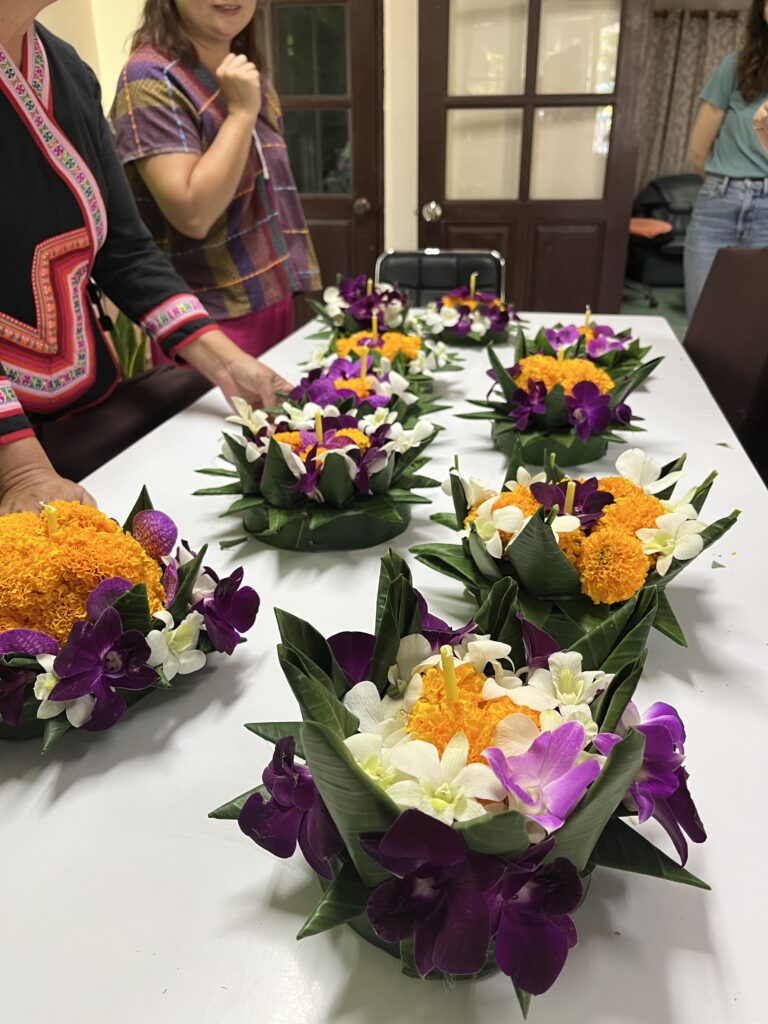
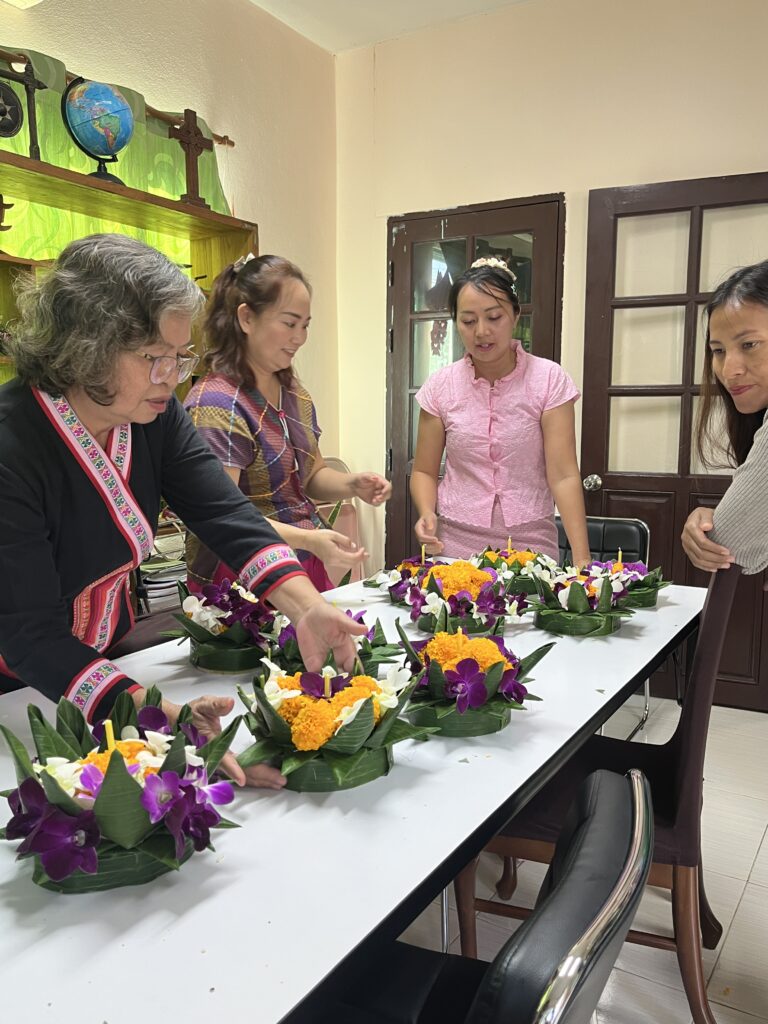
Afterwards, they made us traditional Thai food called “pink noodles.” They are called pink noodles because they are pink.
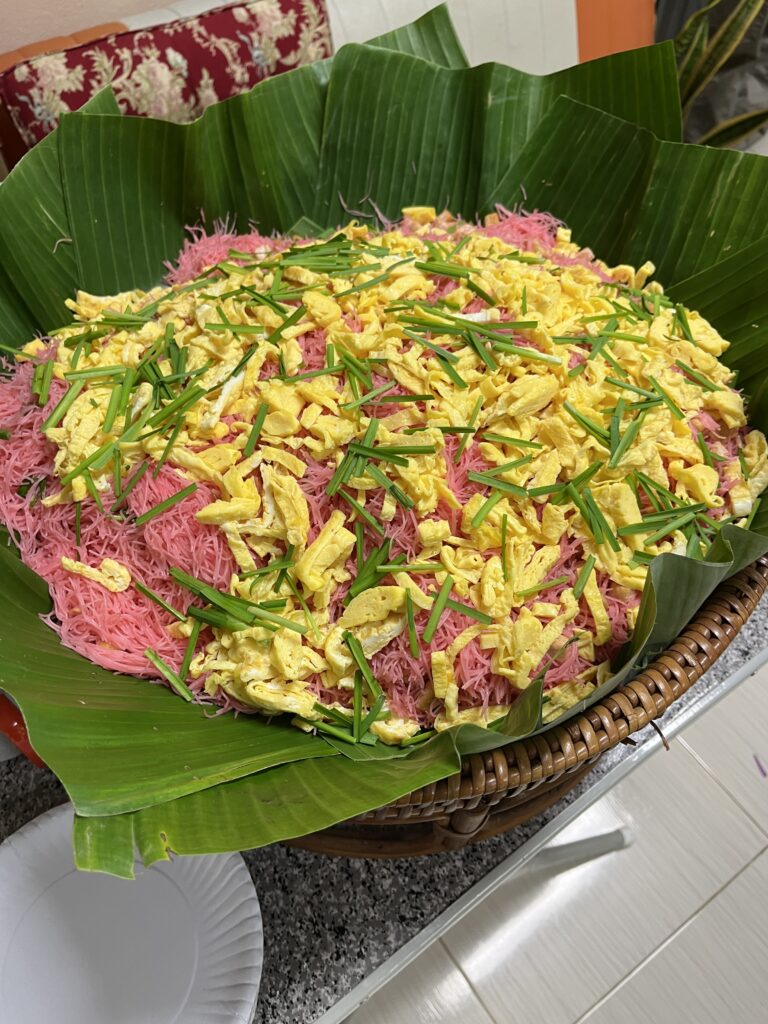
After we ate, they taught us a dance.
We put our krathongs on the canal behind our house. We didn’t put incense in it, because we are not buddhists.
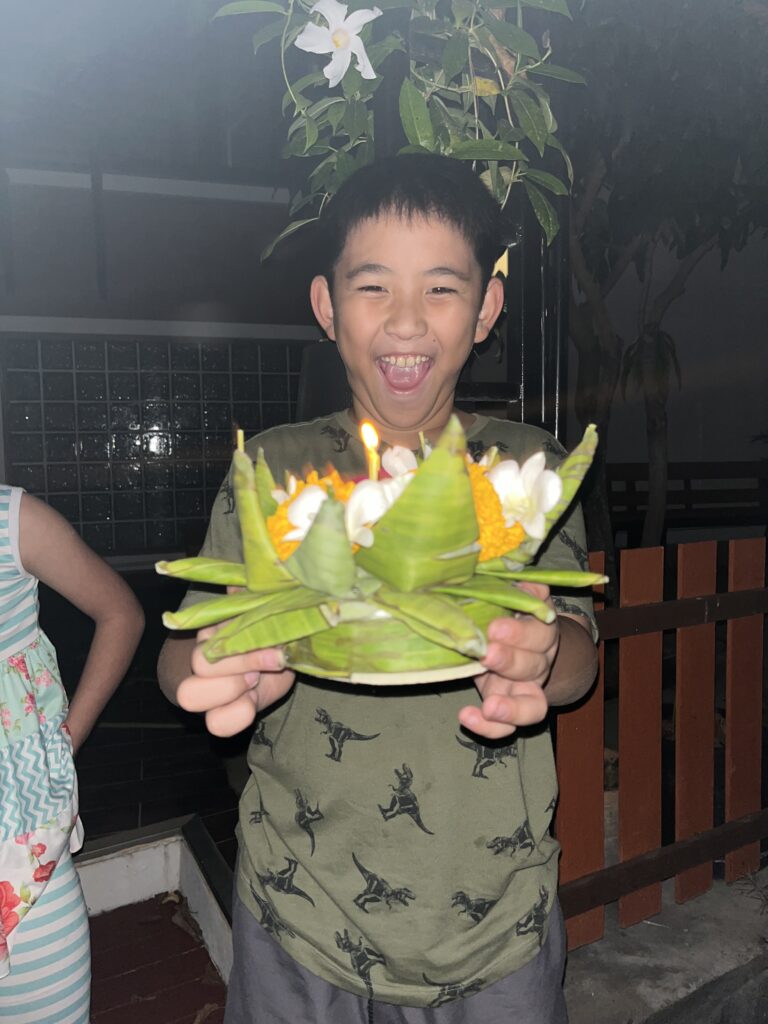
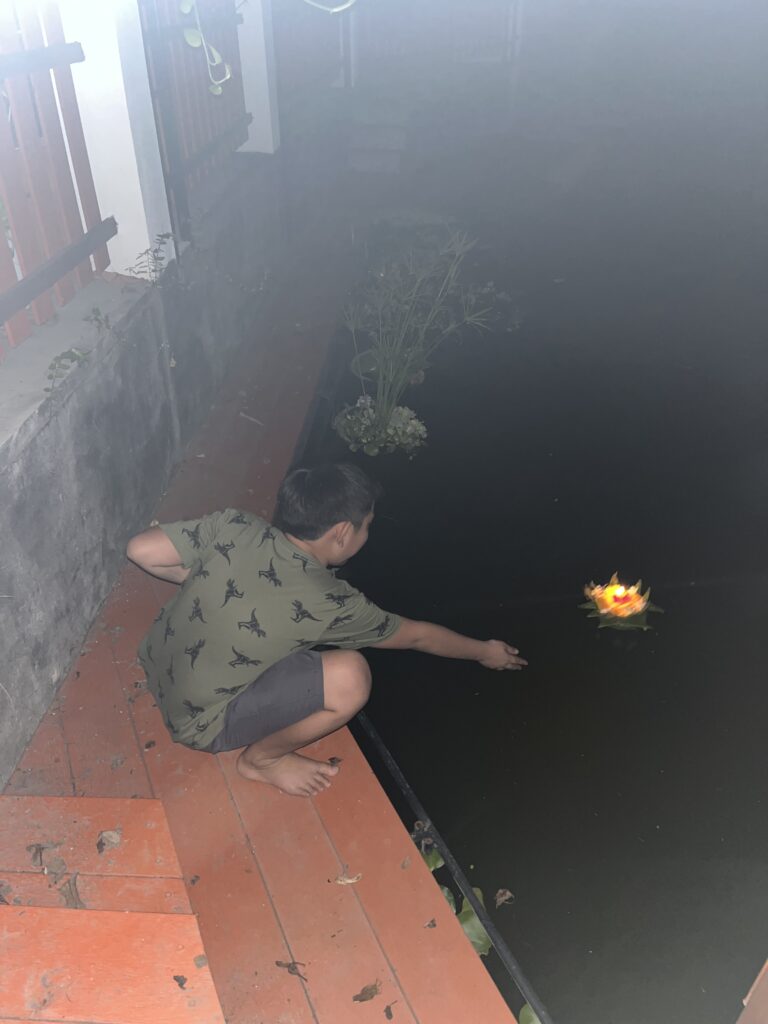
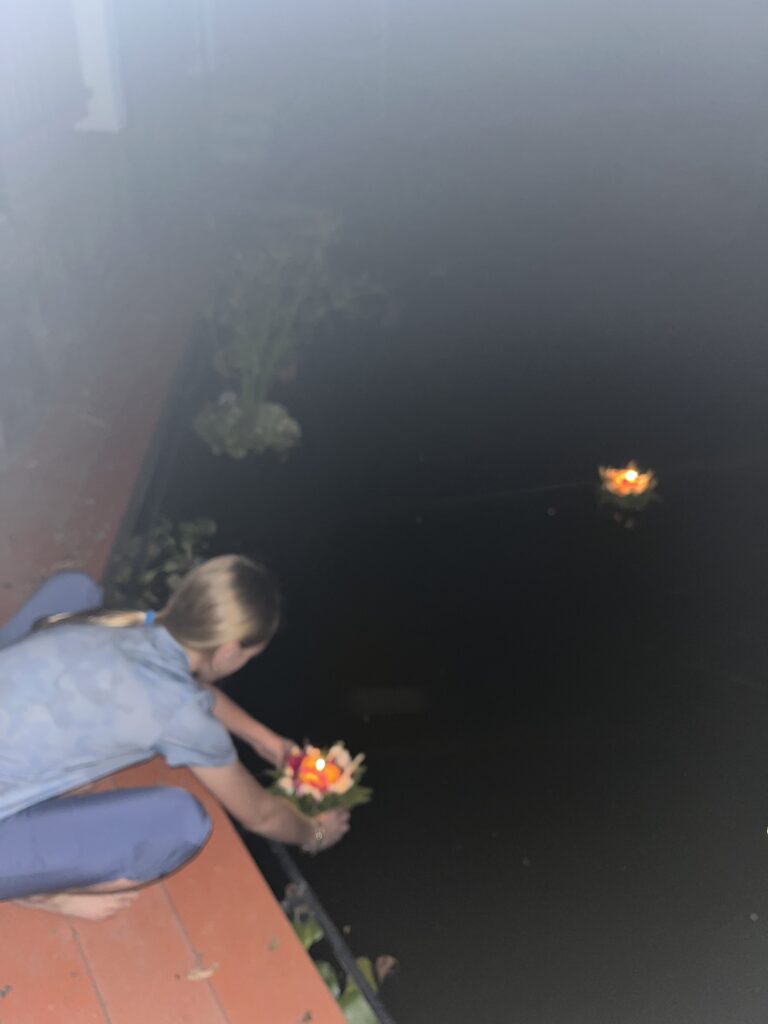
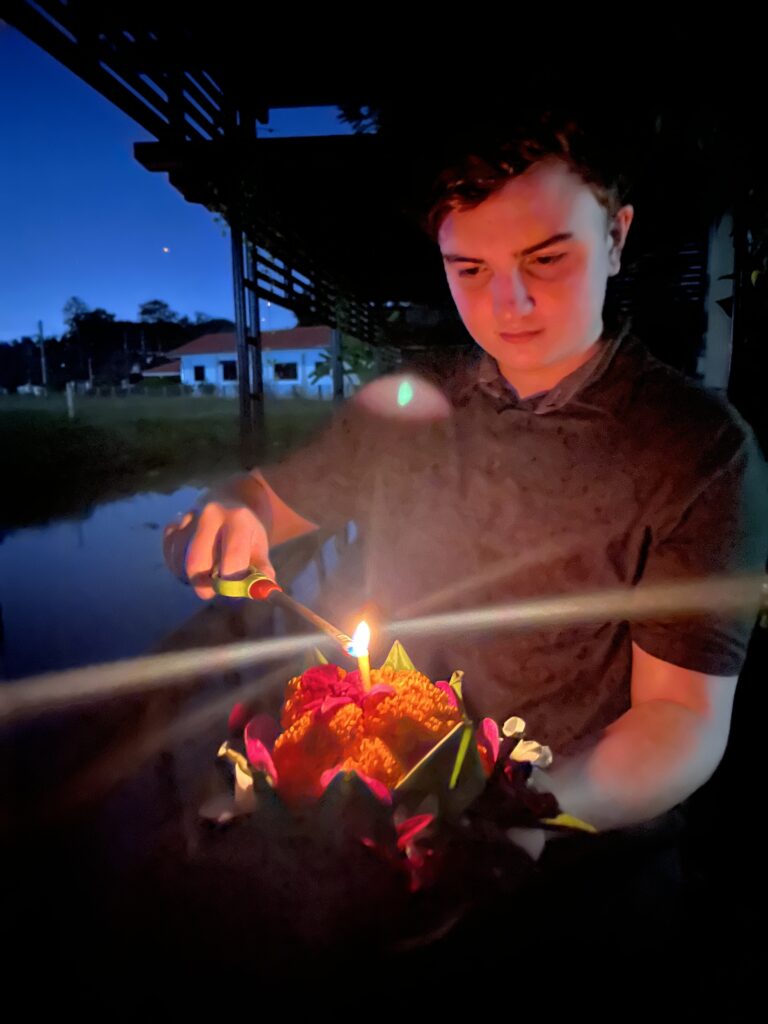
Also, we saw floating lanterns in the sky.
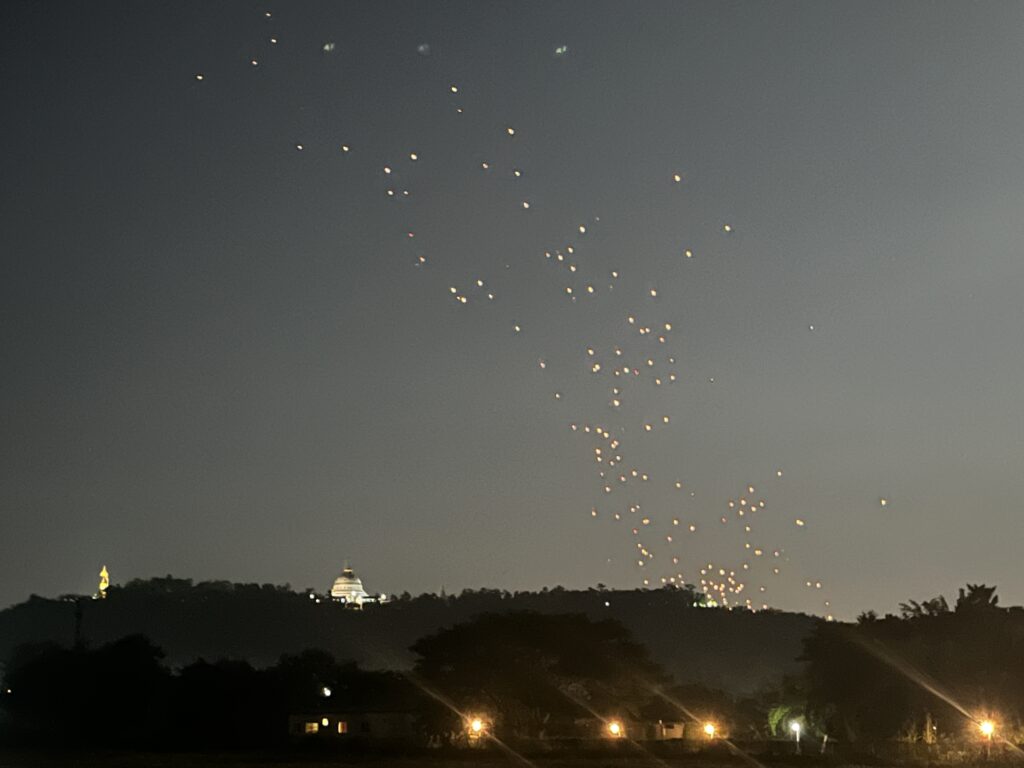
We didn’t float a lantern up, but we did find one that came down. When a buddhist person sends a lantern up, they are floating their sins away. I don’t believe that we can float our sins away, I think the only way you can be saved from your sins is by believing in Jesus Christ. So I didn’t mind that someone else’s “sin lantern” fell near me and I was not afraid to touch it.
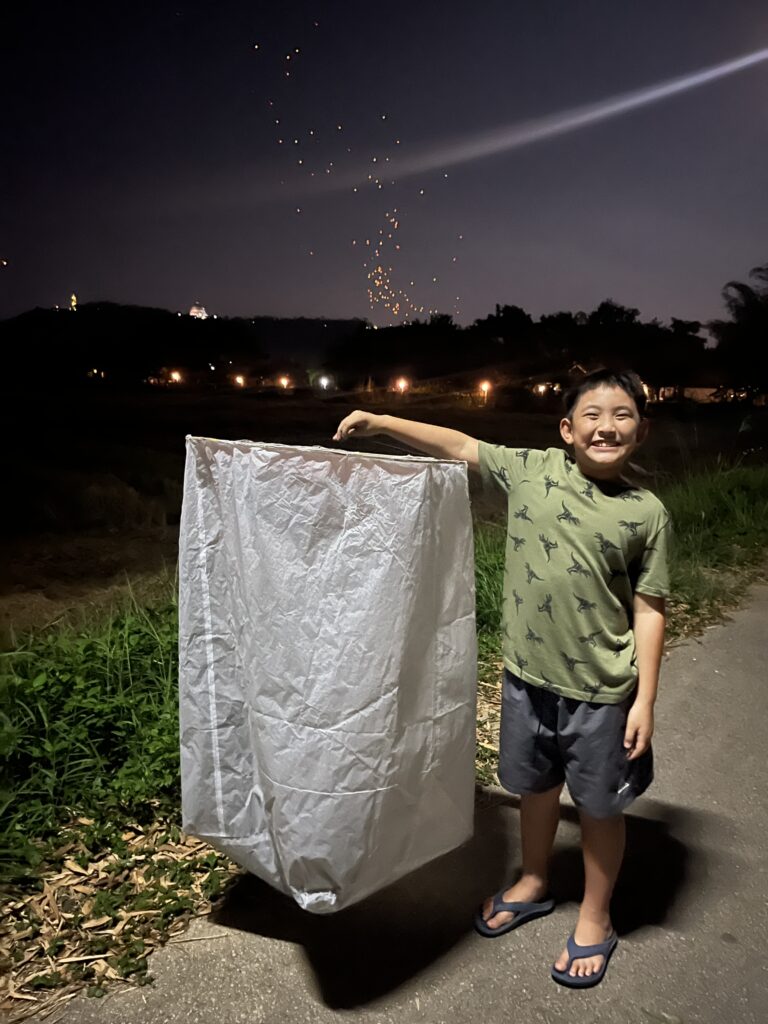
-
Temple Run
We wanted to learn more about Buddhism so we went to a temple. The temple we went to was called Wat Phra That Doi Suthep. This is what we saw. First, we had to go up a mountain. Then, when we got to the temple there was a market with Buddha souvenirs.
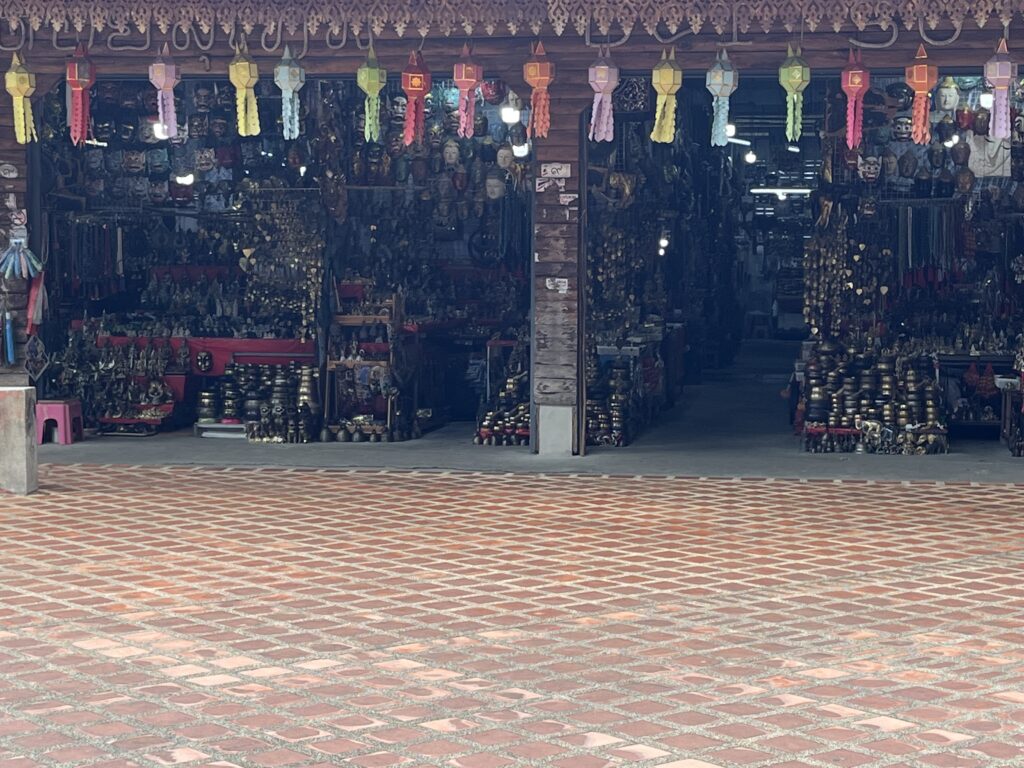
We had to walk up lots and lots of stairs and we saw butterflies and stuff. Also there where dragons made of tile.
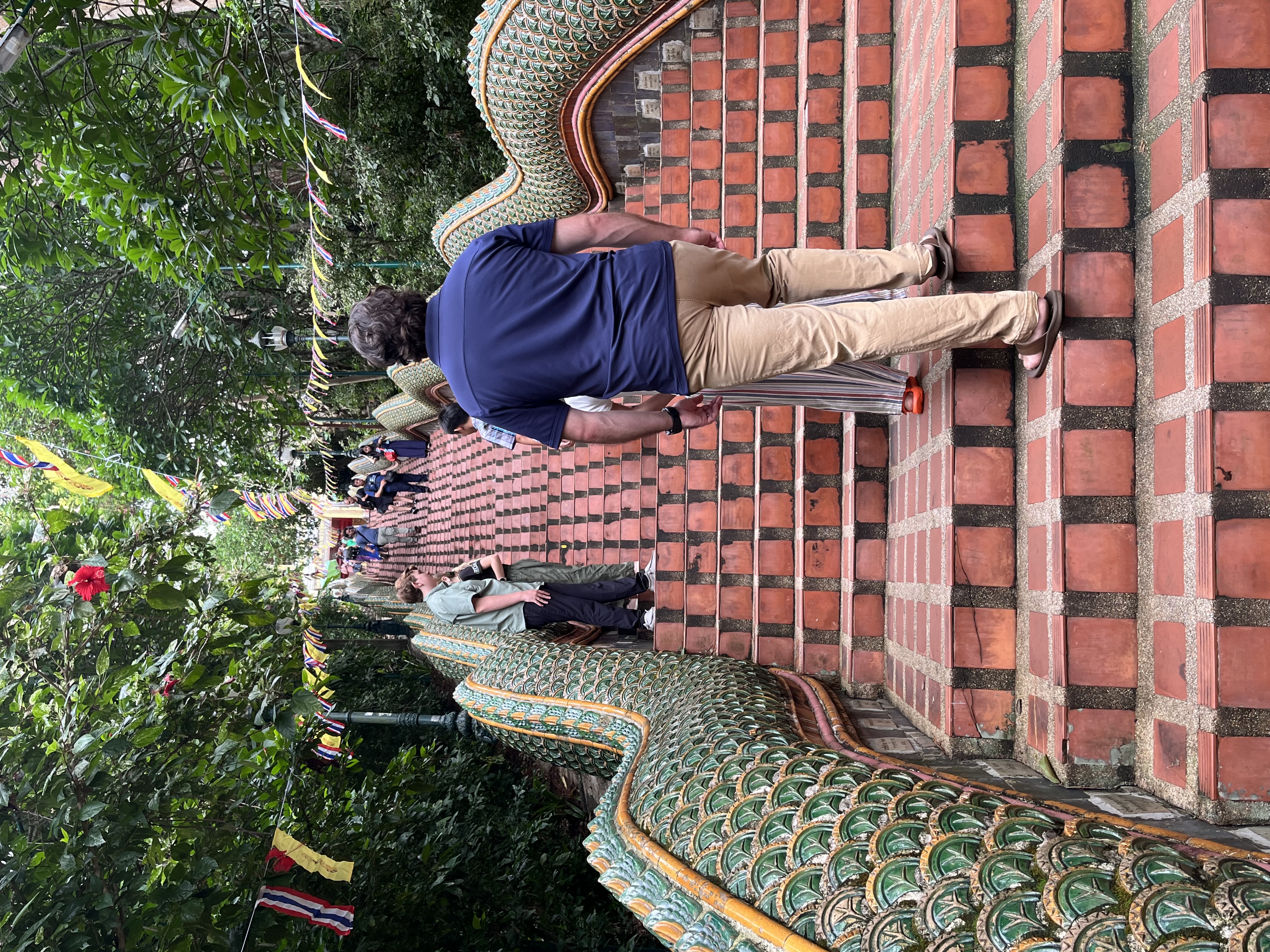
Inside the temple, there were lots of statues, spirit houses, and things made of gold.
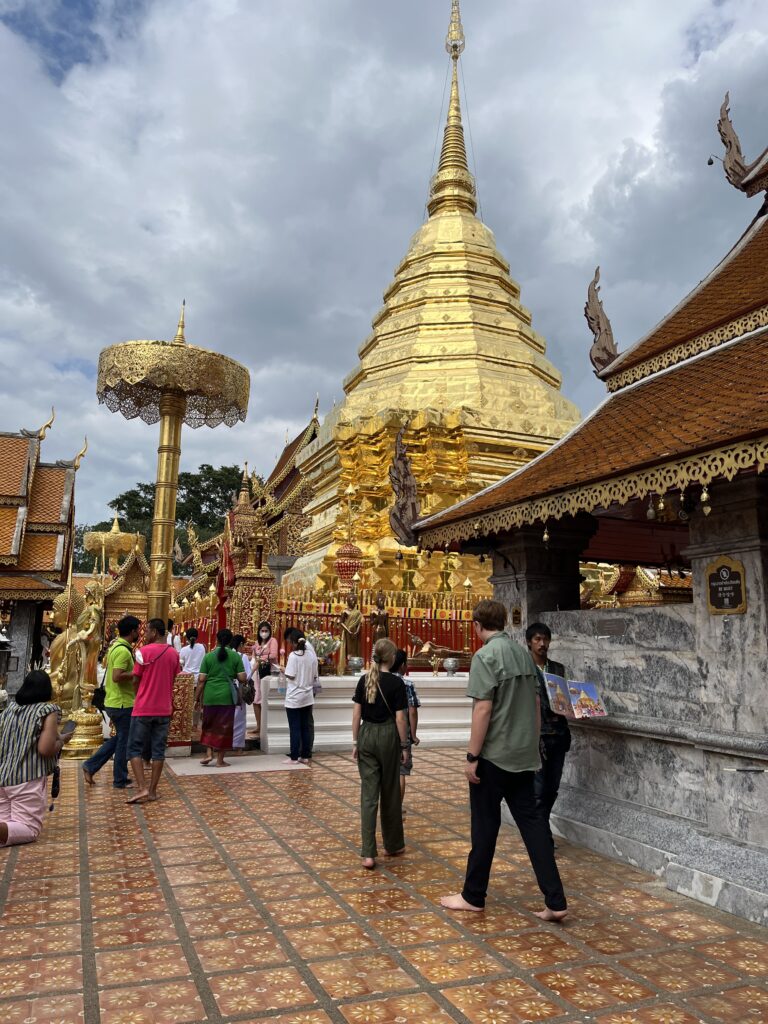
People were bowing down and burning incense. There were monks who were bald and wore orange robes. We have seen monks quite a lot at markets or walking on the side of the road. The monks at the temple seemed older than the ones that we have seen before and their robes seemed to be more of a bright orange color.
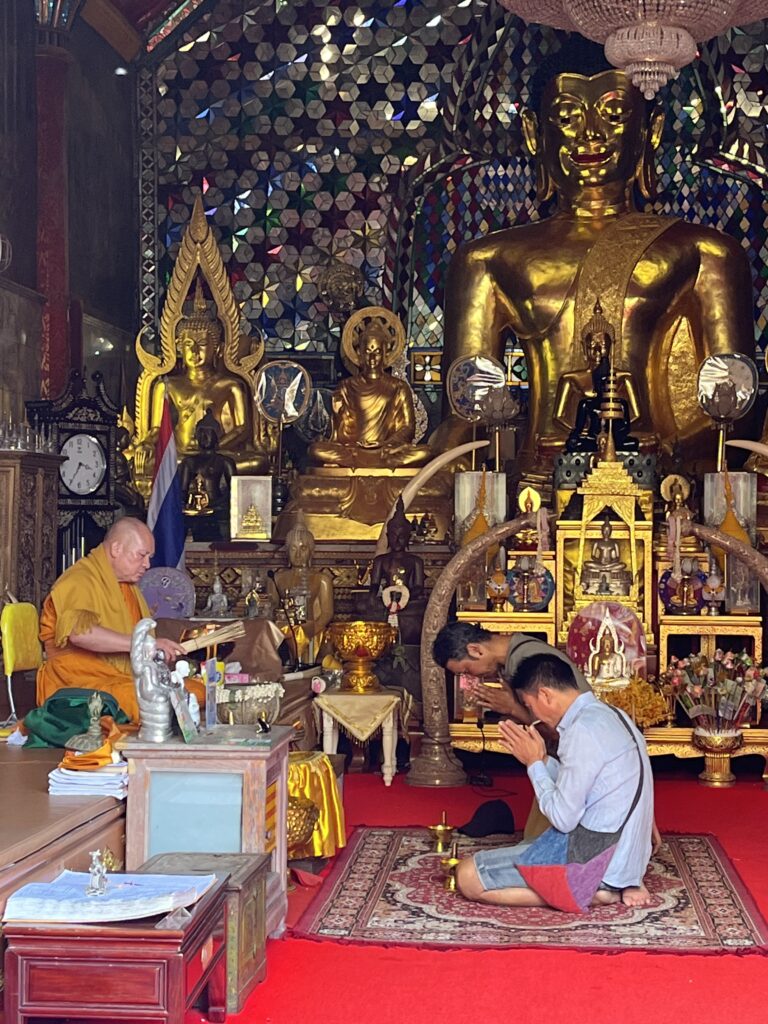
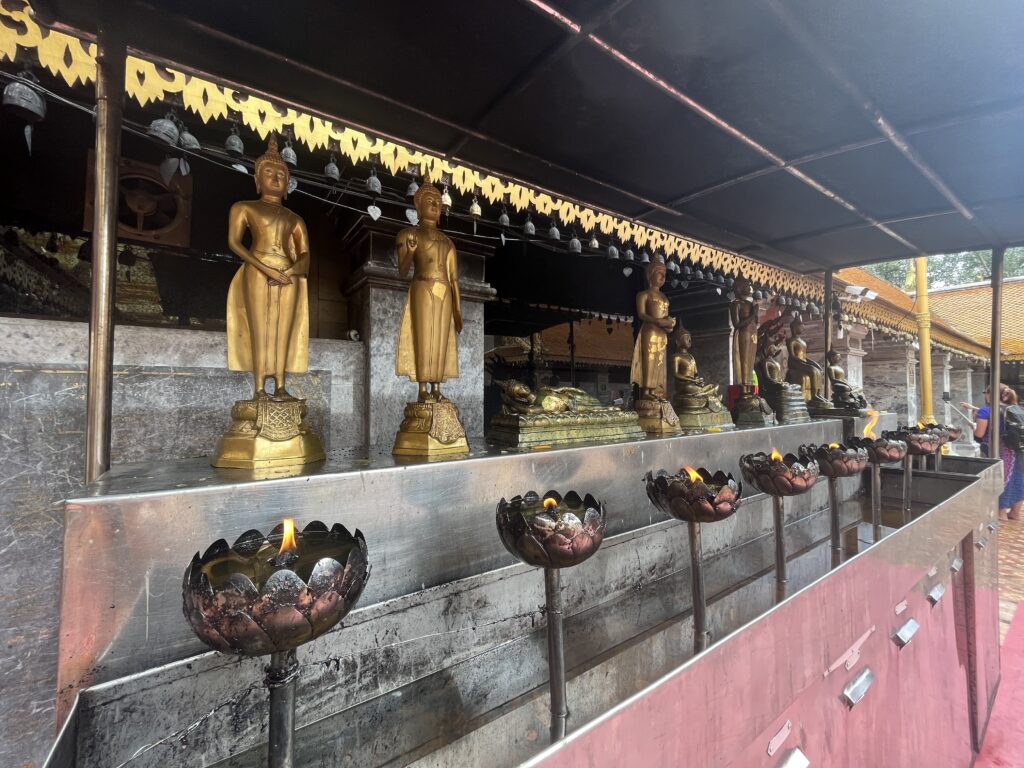
The Bible tells us we should not worship idols. I have never seen anyone worship an idol before, but now I have. I am glad I do not worship Buddha or a Buddha statue, partly because I would not like to go up those stairs every time, but mostly because God made Buddha. Buddha is a mere man who died.
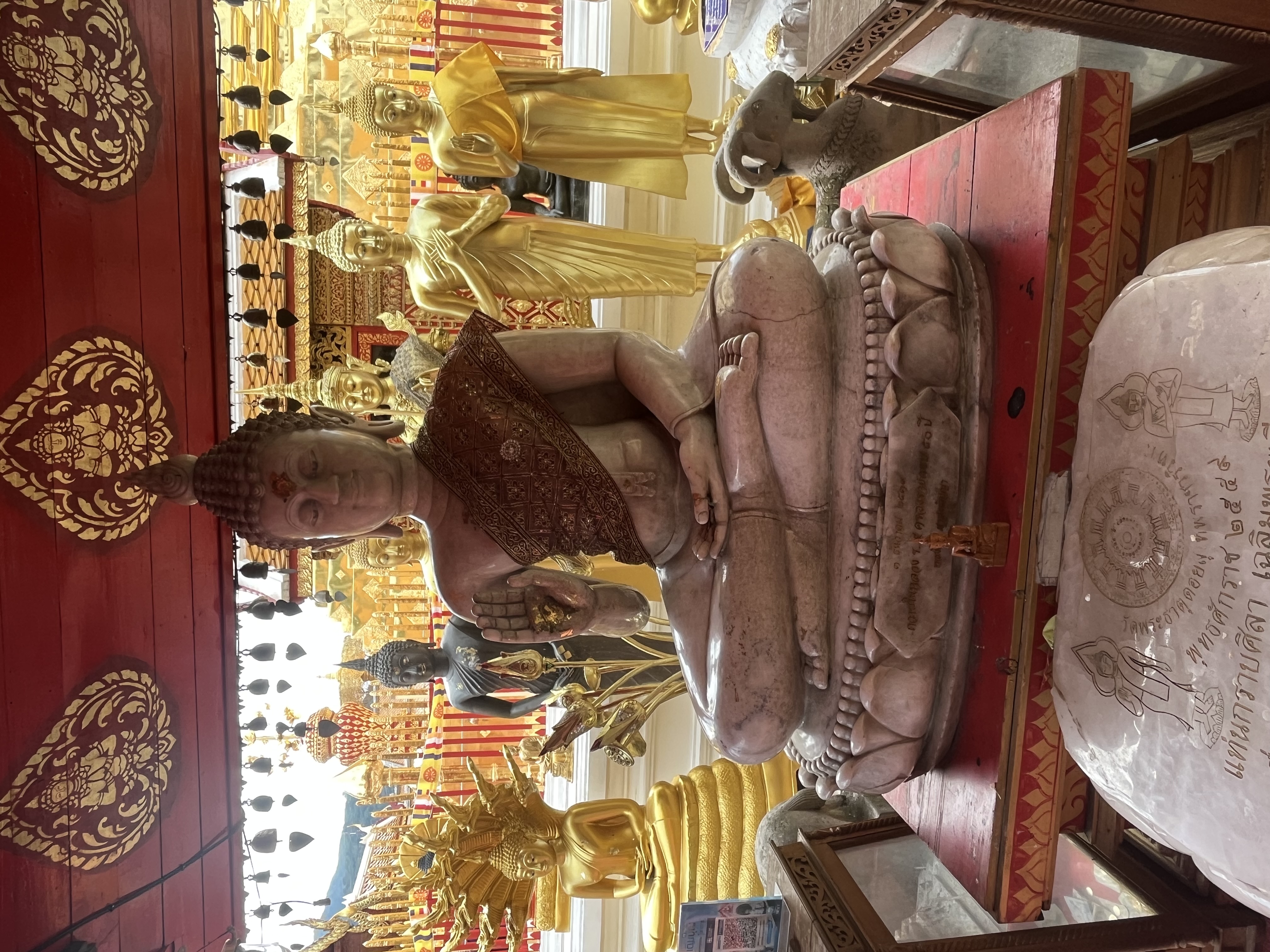
My favorite color is green, so I thought the buddha statue made out of jade was pretty cool.
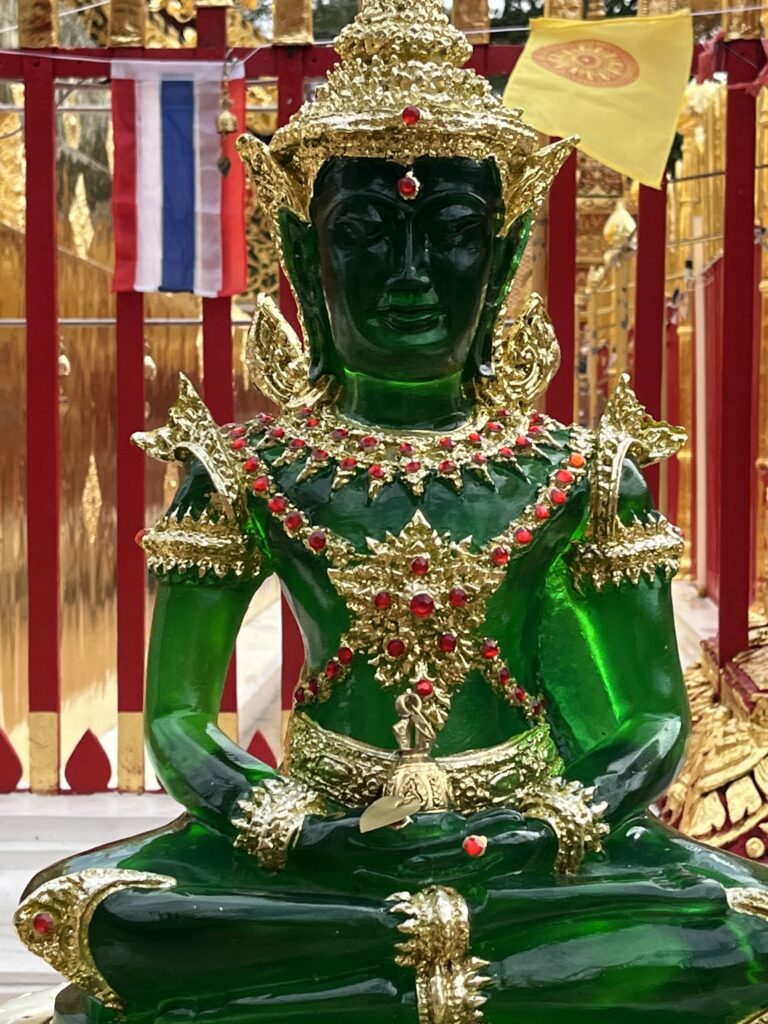
I remember hearing the church bells ring at my home in America. They did not have church bells, but they did have a really big gong at the temple.
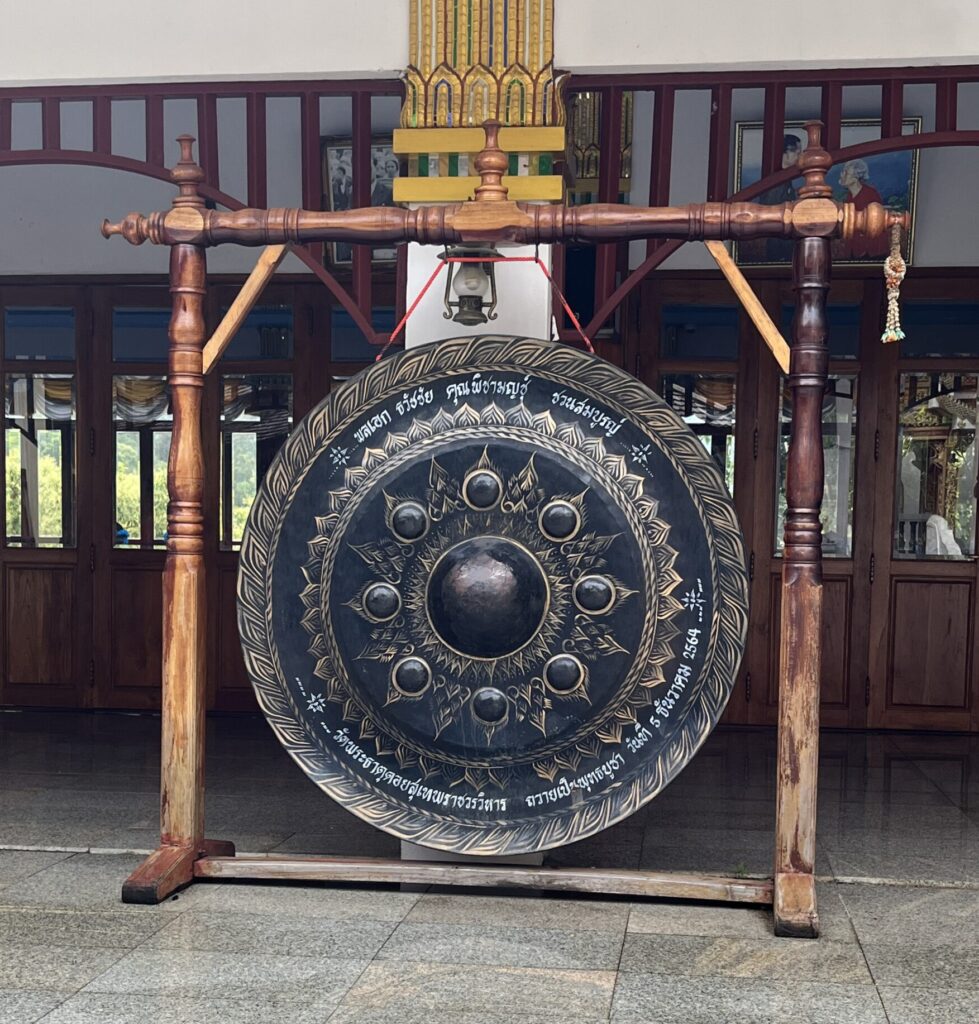
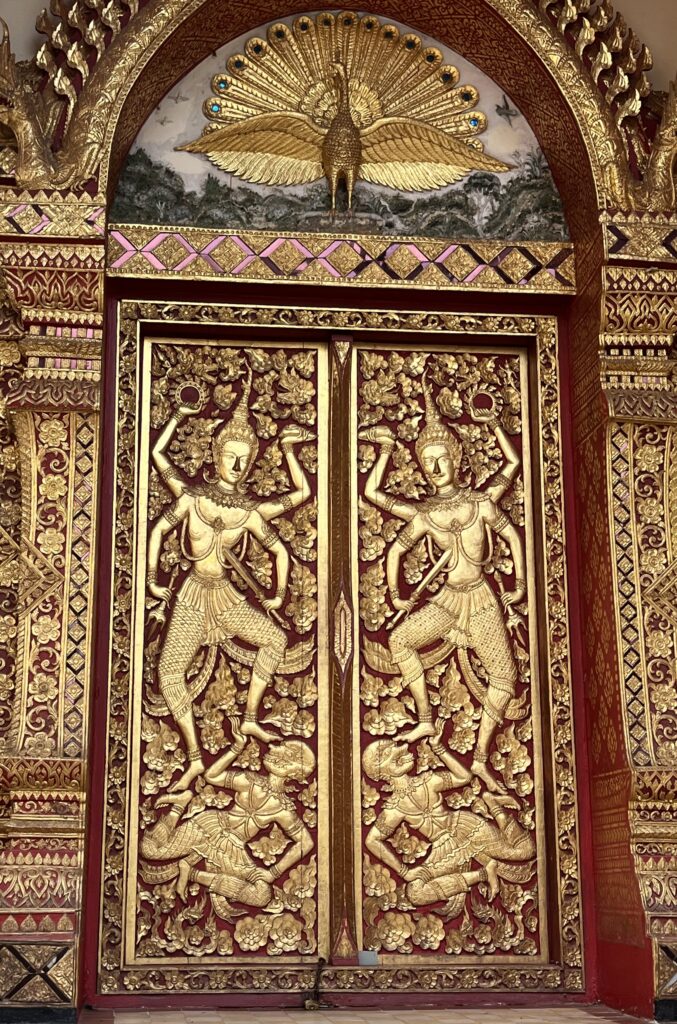
There was a platform that gave a really good view of Chiang Mai and we saw a rainbow because it was raining. We liked to watch airplanes fly by since we could see the airport.
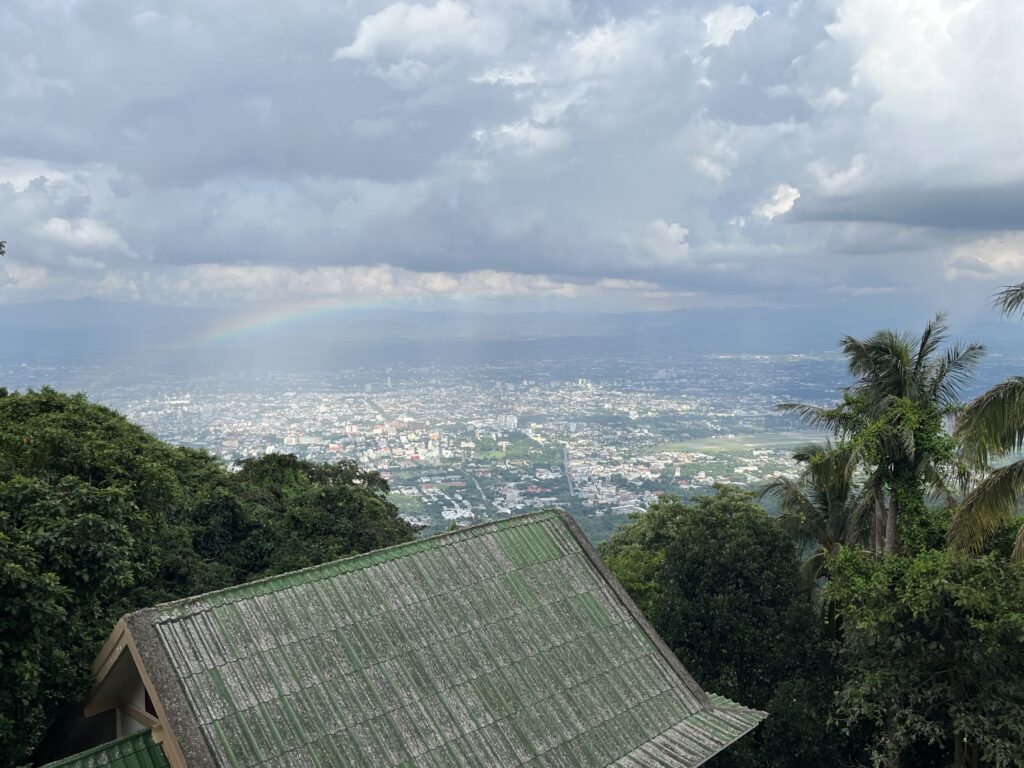
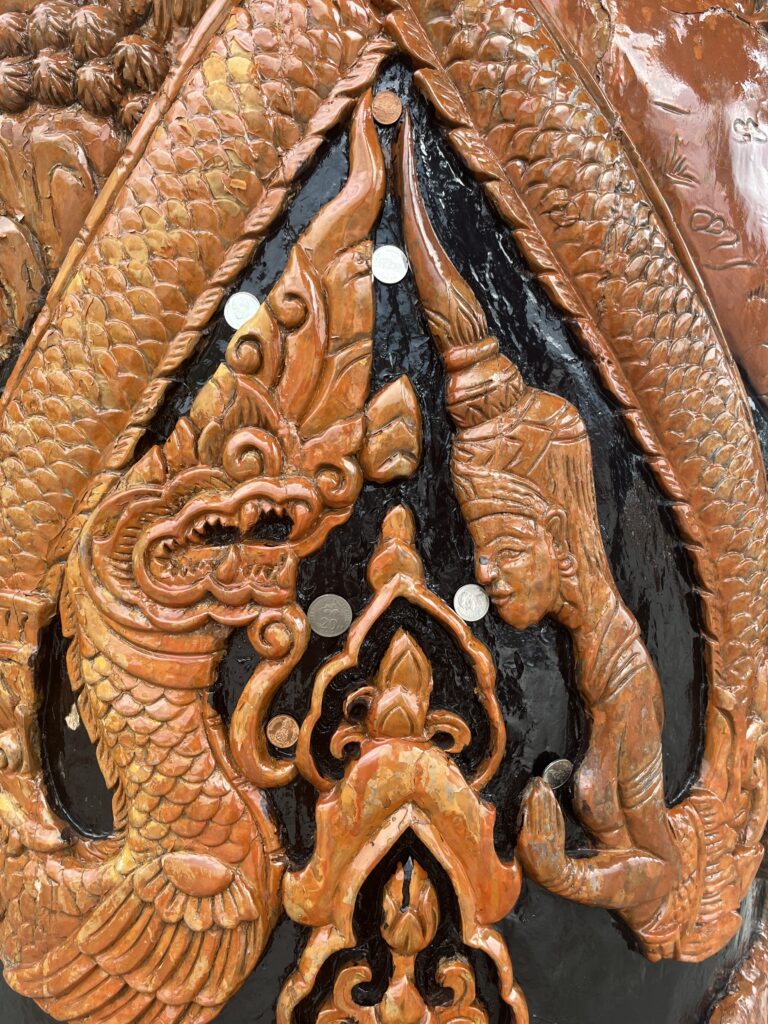
When we were done, we went back down all the stairs and drove on to our next adventure.
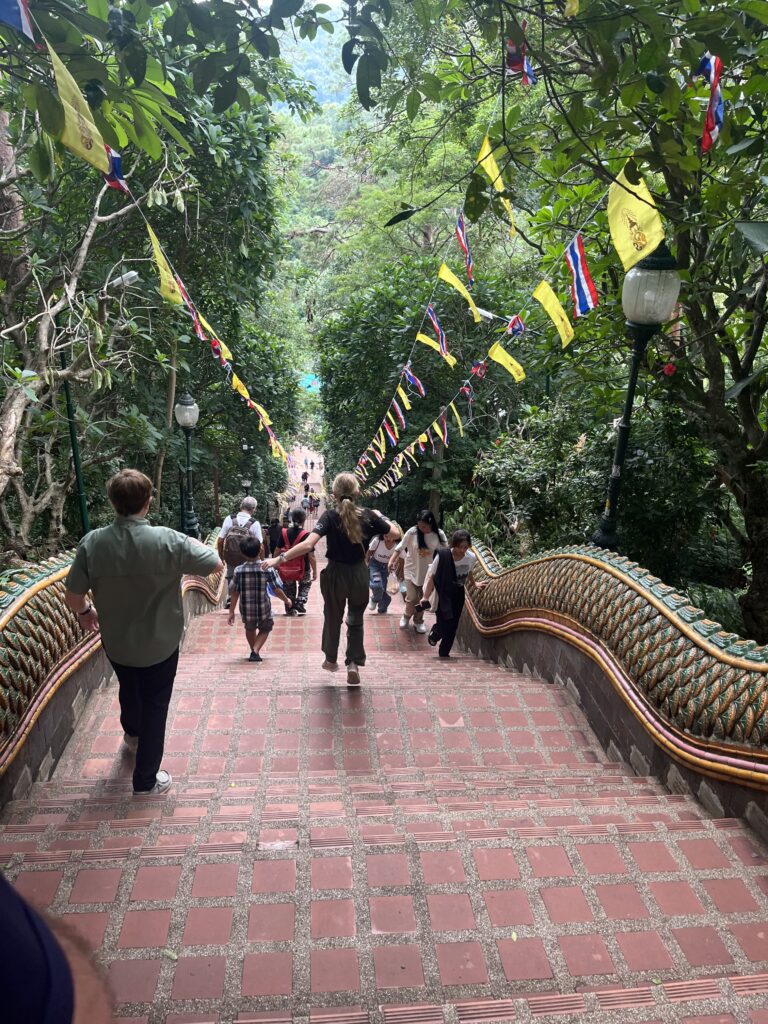
I might not agree with all the things that the monks at the temple believed in, but I still really liked to see it. I think you should know about it, too, because then you can get some idea of what Thai culture is.
-
Songkran
It is a tradition for Thai people to go around sprinkling a little bit of water on one another to bless them for the new year. But it isn’t always just a little sprinkle, some people get a little crazy and dump a whole bunch of water on everybody. We went to the moat in Chiang Mai for the Songkran celebration and it was the biggest water fight I have ever seen. Songkran was so fun!
